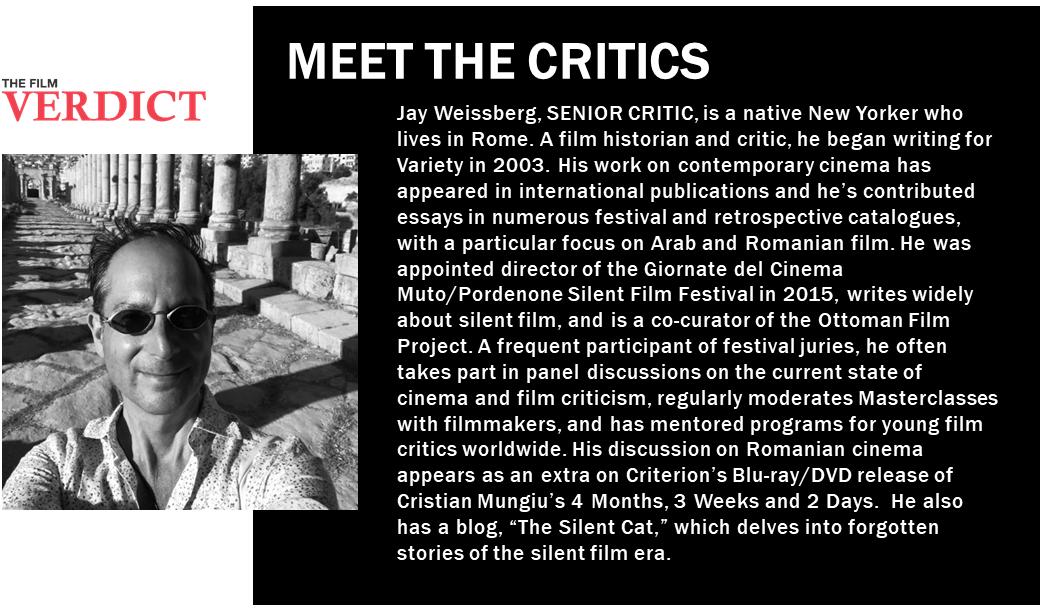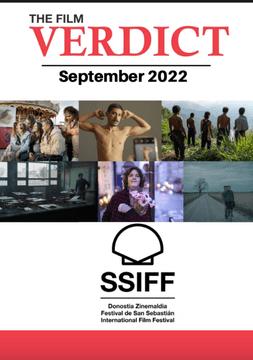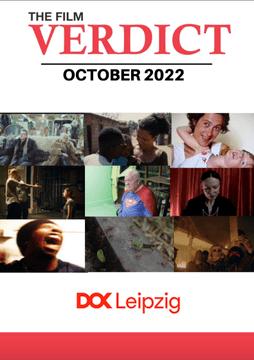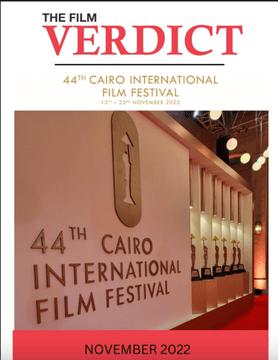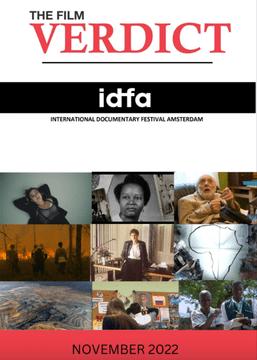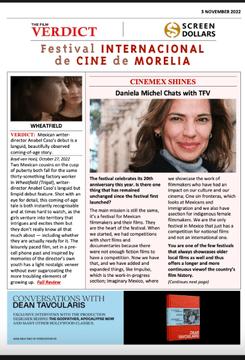TFV DELIVERS ITS OSCAR VERDICT






















As a quick perusal of The Film Verdict’s Oscar coverage shows, the Academy Awards are no longer an exclusively or even a mostly American thing. With our reviews, interviews and profiles, we have tried to capture the world-wide excitement of filmmakers and producers competing for Best International Feature Film, with entries coming from the 92 countries that submitted a hopeful in the category. That’s just short of last year’s record of 93 submissions (Russia boycotted the Awards this year due to wartime tensions with the U.S.)
But beyond the revamped International Feature category, we can easily predict there will be a flurry of influence from beyond the U.S. infiltrating the Academy’s main categories. It’s hard to imagine The Banshees of Inisherin, the unforgettable allegory about civil war by acclaimed British-Irish playwright Martin McDonagh, not getting nominations in multiple categories, or Australian director Baz Luhrmann’s Elvis being overlooked. And international acting talent like Michelle Yeoh (Everything Everywhere All at Once), Nina Hoss (Tár) and possibly Vicky Krieps (Corsage) look strongly positioned. And how about putting Living, the British film based on Akira Kurosawa’s Japanese screenplay, in the Best Adapted Screenplay competition?

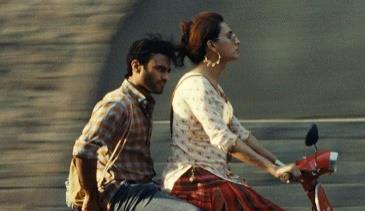
As far as critical consensus goes (always difficult to determine, because critics see different films), TFV reviewers converge on five films that have left a deep mark: Close, The Quiet Girl, Joyland, Saint Omer and Argentina, 1985.

Directed by Lukas Dhont

Directed by Colm Bairéad Joyland (Pakistan)
Directed by Saim Sadiq
Directed by Alice Diop
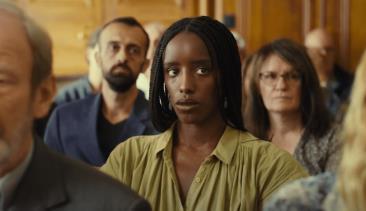
Directed by Santiago Mitre
The Film Verdict now boasts 13 reviewers from around the world, whose critical talents and pungent writing have set the standards: Deborah Young (Rome), Stephen Dalton (London), Jay Weissberg (Rome), Boyd Van Hoeij (Luxembourg), Jordan Mintzer (Paris), Oris Aigbokhaevbolo (Lagos), Clarence Tsui (Hong Kong), Ben Nicholson (London), Carmen Gray (Berlin), Kevin Jagernauth (Montreal) and our Cine Verdict team Patricia Boero (Punta del Este), Lucy Virgen (Guadalajara) and Leonardo Garcia Tsao (Mexico City). And feature writer Max Borg!


VERDICT: He Shuming's feature debut 'Ajoomma', Singapore's Oscar hopeful, is an amusing look at life's second act with a warm, winning performance by Hong Huifang.


Kevin Jagernaugh, November 30, 2022


It has taken seven short films and over a decade for director He Shuming to finally make his debut feature, but if this is the taste of things to come, more of his unhurried, amusing, and lived-in slice-of-life portraits will definitely be welcome. Selected as Singapore’s official Oscar entry, Ajoomma arrives wrapped in a package of wacky dramedy, but blooms into something unexpectedly affecting, with a warmth that goes down like a bowl of spicy tteokbokki on a cold winter day.
Full Review
The Film Verdict (TVC) was created to ensure an equitable and balanced environment for a world-wide film industry hungry for quality review coverage of the latest in international cinema. This year TFV has given visibility to more than 750 international films on the stage of its innovative website, www.thefilmverdict.com and through its Critics’ Choice Newsletters and its dedicated Festival Review issues Now TFV continues its commitment by launching an all new and innovative week-long newsletter series focused solely on the INTERNATIONAL CONTENDERS.
INTERNATIONAL CONTENDERS will offer a daily selection of TFV’s signature reviews of films nominated to represent their country in the selection process leading up to the Oscars’ international short list. (Continues page 13)
 IL BOEMO
IL BOEMO

THE FILM VERDICT: Bonjour, Maryam! You came to filmmaking through acting and screenwriting. How has it influenced your style as a director?
MARYAM TOUZANI: I acted in only one film, Razzia, before I started making my own films, and that wasn’t planned. I had cowritten the screenplay with my partner in life, Nabil Ayouch, and everything happened very naturally. I actually started out as a journalist and became very interested in documentary filmmaking as a way for persons to give voice to their lives. I imagined I would make only documentaries. But a turning point came when I lost my father and I felt there was something I needed to express: grieving, the search for a way to move on. So I wrote a short film to say goodbye, When They Slept, about a girl who loses her
grandfather and ignores tradition to say goodbye in her own way.
TFV: In your two feature films, Adam and The Blue Caftan, a major theme is women who challenge society.
MT: In my first films, all the main characters were little girls and women. In Adam there is a trio: two women and a girl. I started writing it when I was pregnant
with my son, who is five years old today. It had been four years since I made my second short, Aya Goes to the Beach, because I didn’t want to make films because it was expected of me, but because there was a real urge to tell a story. It isn’t a rational process and there is always an emotional response when I start writing.
(Continues page 12)
VERDICT: After her award-winning ‘Adam’, writer-director Maryam Touzani affirms her strong storytelling skills in a hugely touching love story set in an old Moroccan medina, where Lubna Azabal battles illness to be with her homosexual husband Saleh Bakri.
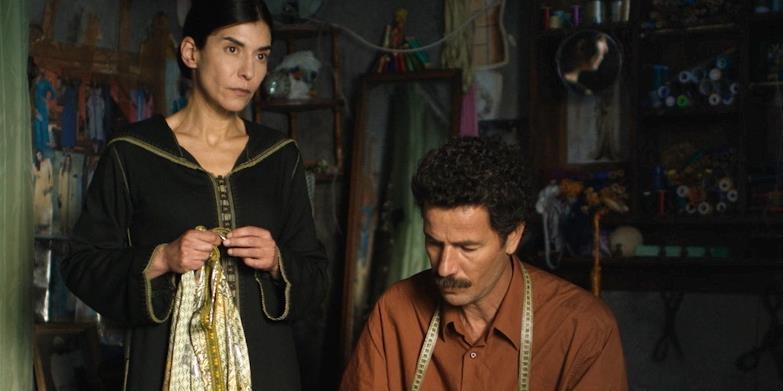
Deborah Young, May 27, 2022
To make a movie truly moving, there has to be a genuine quality to a story that is unforced and preferably understated. Maryam Touzani’s second feature, The Blue Caftan (Le bleu du caftan), takes its time establishing its place – a very old, conservative and selfcontained medina in a Moroccan city – and its characters, master tailor Halim (Saleh Bakri) and his wife Mina (Lubna Azabal), who have a shop where Halim painstakingly sews exquisite handembroidered caftans for discerning customers. With the same patience and respect for detail, Touzani gradually acquaints the viewer with the couple’s very special relationship, Full Review
VERDICT: Raw, authentic emotion and inventive lyricism combine in Juraj Lerotic’s sensitive, devastating reckoning with an acute mental health crisis in the family.

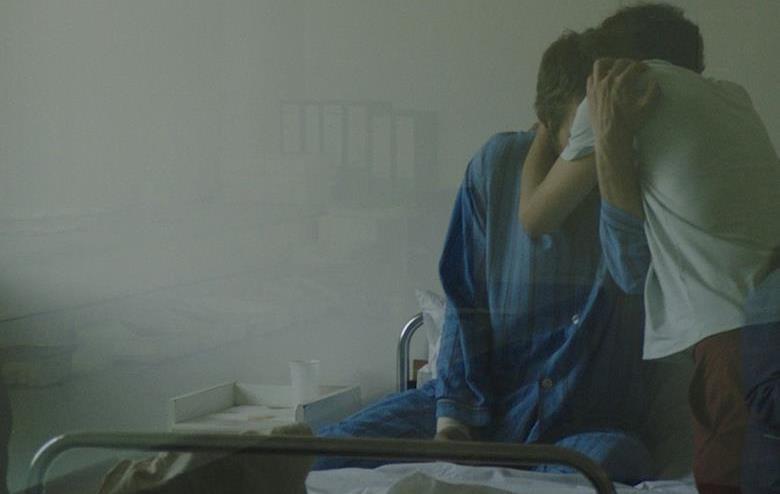
Carmen Gray, August 15, 2022
A young man navigating the shocking, confounding experience of his brother’s acute mental health crisis and suicide is the premise of Croatian director Juraj Lerotic’s sensitive, beautifully rendered and emotionally devastating debut feature Safe Place The film’s ample merits were recognised upon its world premiere in Locarno, where it was awarded Best First Feature, with Lerotic named Best Emerging Director and Goran Markovic picking up a Best Actor gong, before screening shortly after at Sarajevo Film Festival. While its elegantly lensed, arthouse sensibilities and real-world psychological heft assure it wide festival play ahead, its close basis in Lerotic’s own personal experience, a genesis that is revealed early on with a daring, inventive divergence into lyrical, meta territory, mean it has the potential to contribute significantly to ongoing conversations about the shortcomings of mental health services in handling patients with critical needs.
Safe Place opens with Bruno (played by Lerotic himself) breaking down the door of the Zagreb apartment of his brother Damir (Markovic), who has just undertaken a very serious suicide attempt, and is losing a lot of blood. As ambulances arrive on the scene, we are immersed in the panicked confusion and desperate need to somehow avert catastrophe that grips Bruno for the duration of the film a hellish predicament shared by the men’s mother (Snježana Sinovcic Šiškov) as soon as she is informed of the emergency. Full Review
VERDICT: Cruel and delicate, this Icelandic drama shows troubled kids as the product of the actions and inactions of adults.


Oris Aigbokhaevbolo, July 9, 2022
The first scenes of Beautiful Beings are incredibly uncomfortable to watch. Balli (a bullied kid played by Askell Einar Palmason) gets beaten up by his mates outside school. Not long after he finds his jacket immersed in a toilet bowl. With eyes on the floor, as if avoiding daylight, he drags his wet jacket home just before a gang of boys get to him, demanding he wear it.
Feeling humiliated by his ordeal, he smacks one of them with the wet jacket. In retaliation, his assailant picks up what appears to be a fallen tree branch and hits him right on the face. He’s wounded so badly that a TV report shows him wearing a mask in the hospital. But his travails are not quite over.
After leaving the hospital, another group of kids finds him as he takes a razor to his wrist. They force him to drink what appears to be liquid medicine. But they are touched enough to take the “filthy inbred” to the home he shares with his absent and absent-minded mother. When the same kids return to Balli’s home, writer-director Guðmundur Arnar Guðmundsson gives us a break from showing the cruelty of children. His story is lensed almost tenderly by Sturla Brandth Grøvlen. Full Review

VERDICT: A young Pakistani director sets records with his first feature film. Deborah Young, December 1, 2022 When a first feature film debuts at Cannes and wins the Jury Prize in Un Certain Regard, as well as the Queer Palm (beating out other national Oscar entries like Close and The Blue Caftan), there’s clearly a director to watch behind it. Saim Sadiq can add to these awards another distinction: Joyland is the first Pakistani film to have been selected for a Cannes screening. The engaging story of a married man who falls in love with a trans woman erotic dancer, and the chain of dramatic consequences that derives, has enchanted festival audiences wherever it is shown. Boldly selected as Pakistan’s entry for the Academy’s Best International Feature Film Awards, it was scheduled for domestic release until the news two weeks ago that the government had withdrawn its censorship certificate. But the ban was quickly overturned and the film is now in limited release in Pakistan.
A native of Lahore, Sadiq got a degree in Anthropology from Lahore University and an MFA from Columbia’s School of the Arts. His short film Nice Talking to You (2019) played at SXSW and Palm Springs before being shortlisted at BAFTA as best student film. Next, Sadiq trained his camera on the world of trans dancers in Darling, which won the Venice Orizzonti award for best short film. After an impressive festival run, it was acquired by Focus Features. The short is clearly the progenitor of Joyland’s transgressive and fascinating setting in a hugely popular erotic dance theater, where the hero finds employment.

Joyland has been much trumpeted as the first Pakistani feature to bow at the Cannes Film Festival, and the film has garnered a lot of attention for featuring a transgender woman in what is, both in name and in fact, an Islamic Republic. To reduce the film to such cultural shorthand, however, would do first-time feature filmmaker Saim Sadiq a major disservice, as he offers a rich and delicate family drama steeped in local colours, but boasting of sentiments which could easily resonate elsewhere. While driven by a married man’s romance with a flamboyant trans dancer, Joyland doesn’t go down that very well-travelled lane of straight men struggling with their closeted desires, or tragic trans individuals meeting a sorry fate in a hostile environment. (It’s worth noting that transgender rights are enshrined in law in Pakistan, including the availability of third-gender ID cards.) Full Review
VERDICT: Winner of the Jury Prize in Un Certain Regard, Saim Sadiq's delicate first feature explores the destructive force of patriarchy in a Pakistani family and the fallout from a long-unemployed man's work at an erotic dance theatre.

Clarence Tsui, May 27, 2022
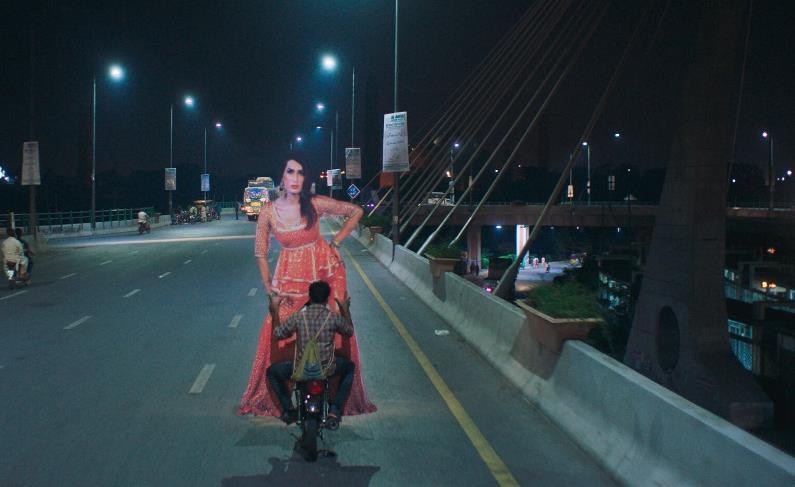
Ganadora del premio al mejor guión en la sección Orizzonti del Festival de Venecia, y representando a Chile para el premio Oscar internacional 2023, la película Blanquita, de Fernando Guzzoni, sigue el desenlace de un sonado juicio por abusos sexuales que conmocionó a Chile en 2003 y en el que se vieron implicados poderosos empresarios y políticos.
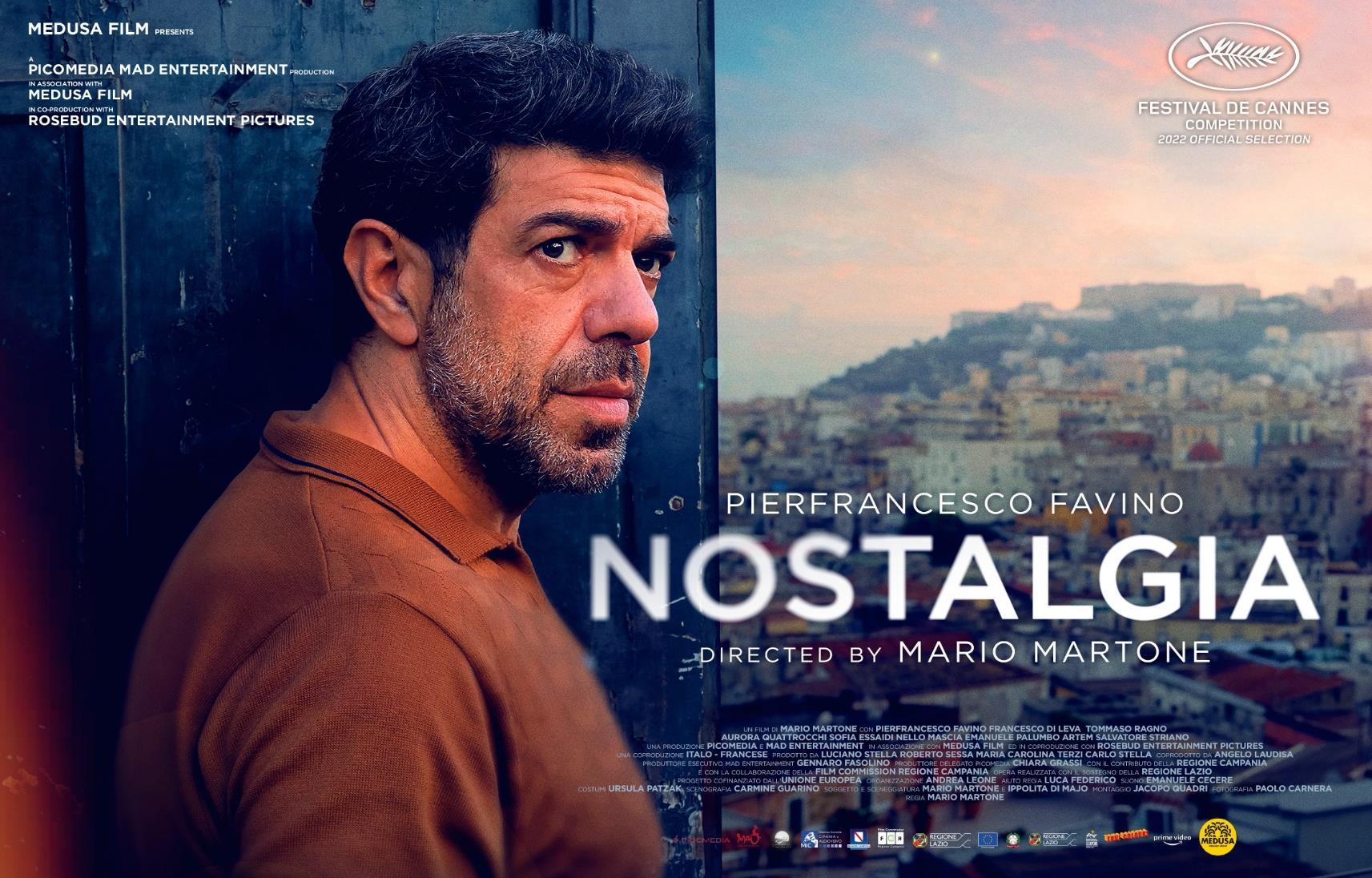
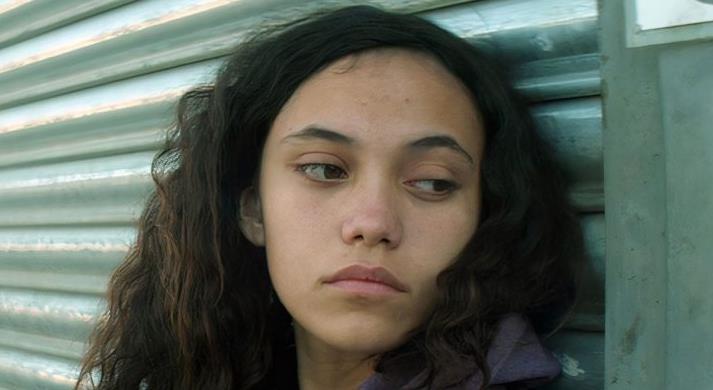
Los anteriores trabajos de Guzzoni, que escribió y dirigió, Carne de perro (2012) y Jesús (2016), le valieron un reconocimiento entre las destacadas películas chilenas que denuncian el abuso y la discriminación, como El club (2015) de Pablo Larraín y Una mujer fantástica de Sebastián Lelios (Premio de la Academia a la Mejor Película Internacional
: Un complejo thriller basado en un escándalo verdadero de abusos sexuales que involucra a políticos chilenos, sacerdotes, empresarios y niños desamparados, donde nadie es totalmente inocente o culpable.

Patricia Boero, December 2, 2022 2018). Reportajes y documentales han sacado a la luz otros abusos,como los ocurridos en un
enclave nazi alemán conocido como Colonia Dignidad. Revision Completa
“In partnership with the Media C-Suite, the digital native platform for news & insight tailored to executives, entrepreneurs and investors in the Media & Entertainment industry, The Film Verdict is pleased to present a series entitled, Oscar Capital, exploring the financial impact of the Academy Awards on film, film-makers and the box office.” - The Film Verdict (TFV)
creator-culture pervasive internationally across film, television, music and now original content at the heart of the ongoing “streaming wars”.
 By Thomas Kingston
By Thomas Kingston
The Academy has been in the business of promoting Hollywood for nearly a century. Since 1929, it’s Academy Awards for outstanding contribution to the quality of the motion picture has been the benchmark for Hollywood.

Technically a US Non-Profit Organization, the Academy and its affiliate group drives a hugely profitable international business model based on the consumption of an increasing amount of human leisure time that results in a global Media & Entertainment industry (“M&E) with over US$2.4 trillion in annual revenues (2021).

To put that into context, M&E generates more than 4 times the revenues annually than the top 100 military arms manufacturers combined (US$531 billion; 2020).
If Media & Entertainment were a nation unto itself, it would rank as the 8th largest economy in the world.
Much of M&E’s success lies in the Academy’s century of promotional effort to increase demand for entertainment content and the public’s consumption of a now pervasive celebrity culture.
Since the 1950s, the glamour of the ceremony presiding over the year’s best in box office offerings has been largely capitalised by television audiences. Those core efforts to reinforce public appetite for the US box office has evolved into a global celebrity
The Academy’s membership is today a cross-section of the M&E industry, including all modes of media and content, from film to TV series, music, technology, marketing, and management. After 96 years of effort, the Academy’s roughly 10,000 present members preside over a promotional organization spending roughly US$50 million a year to support US$2.4 trillion in industry revenues.
By any measure, that is a great investment.
In the process, the Academy itself has amassed considerable value in its own right.
But just how much is the Academy worth?
According to PwC’s audit of the Academy of Motion Picture Arts & Sciences’ consolidated financial statements for 2021, the Academy has accumulated total assets valued at over US$1.4 billion.
In the lead up to the 95th annual Academy Awards, let’s take a look at three key numbers behind the Oscars. (Continues page 14)

“…And the Award for Best Performing Investment goes to… The Academy!”
VERDICT: Noomi Rapace is among the moving female cast of Goran Stolevski’s Macedonian folk tale about blood-sucking, shape-shifting witches who offer body horror at its scariest, yet it's also full of poetry, with a lot to say about women and life on Earth.

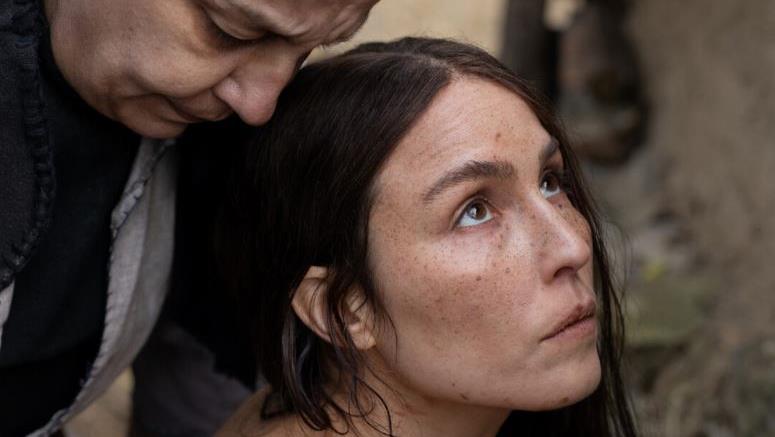
Deborah Young, July 3, 2022
What does it mean to be human? Folk tales have been trying to answer this question long before the movies, but when the two come together with as much felicity as in You Won’t Be Alone (Nebudes sama), it is a potent brew. Bringing a sophisticated, modern eye to a gruesome Balkan folk tale in the vein of the Brothers Grimm, young Australian-Macedonian filmmaker Goran Stolevski makes his feature debut with a big splash of blood and a handful of gore, in a horror film that is getting noticed at major festivals. Readable on multiple levels – horror story, Freudian psychodrama, feminist allegory, coming of ager – it is a woman-centered tale whose darkness is uplifted by its underlying poetry, brought out in luscious cinematography and free-wheeling camerawork, and in the intense performances of an excellent female cast that includes Noomi Rapace, Full Review
Screenwriter Ghalya Lacroix’s work with Abdellatif Kechiche is very much in evidence in Erige Sehiri’s nicely contained choral debut Under the Fig Trees, and while it’s difficult to quantify how a significantly improvised script credited to three writers has been crafted to reflect a demonstrably female-centric viewpoint, the vibe and gaze are unmistakable. Set in a rural area of Tunisia with the action taking place in a single day and largely in one locale, the film weaves together ten characters working in a fig orchard whose stories work both separately and as a group, with an overall hard-to-achieve balance that gives respect and sympathy to all. Modest in scope yet crafted with care, Under the Fig Trees is an appealing first feature for the documentary-trained Sehiri that will benefit from festival attention, after its bow in Directors’ Fortnight at Cannes. Full Review
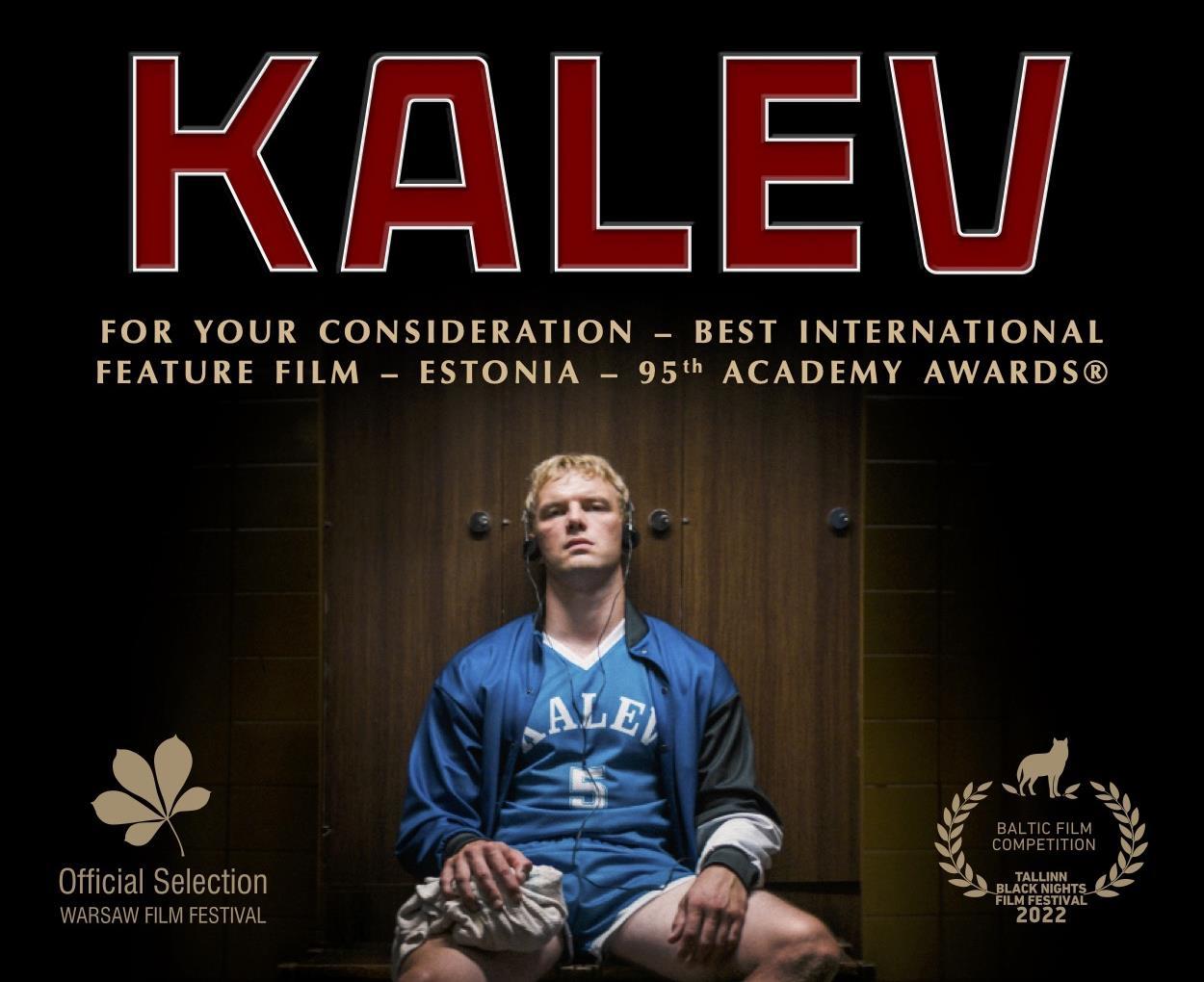
VERDICT: A gently appealing choral work from Tunisia with a strong understanding of rhythm and balance that marks a strong first feature for documentary-trained Erige Sehiri.
Jay Weissberg, May 24, 2022
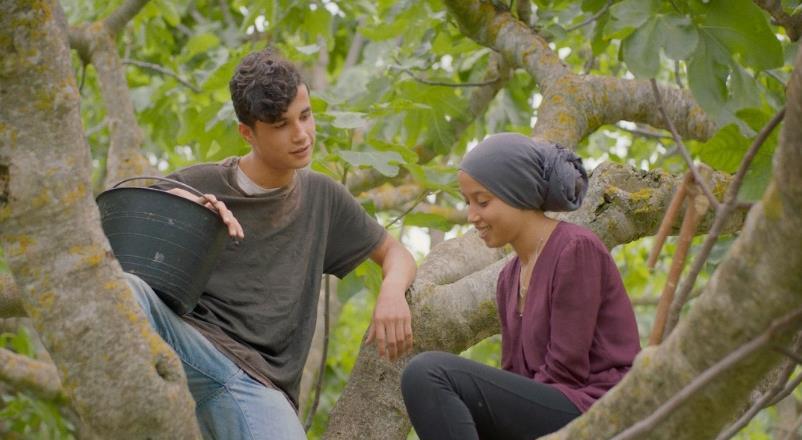
the main characters and its frank, convincing depiction of two girls who fall deeply in love. A third girl who fears she’s frigid searches instead for pleasure with a series of boys.
VERDICT: Three high school girls in Finland pursue love and orgasm in Alli Haapasalo’s frank and often warmly emotional tale aimed at teen audiences.

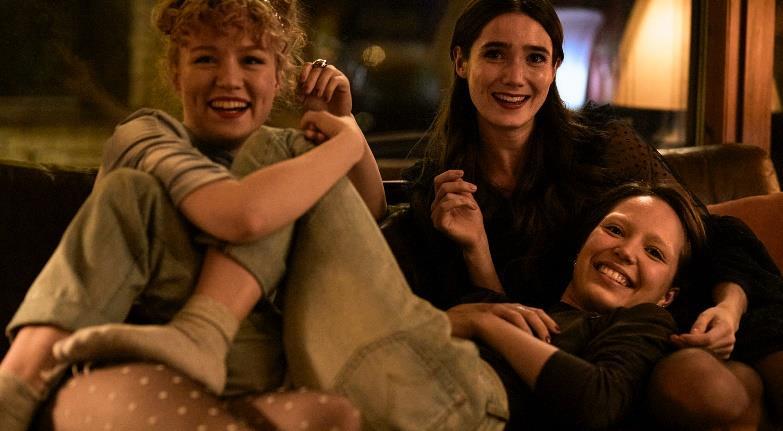
Boyd van Hoeij, October 29, 2022 Painting a bold picture of contemporary romance for girls of high school age, Finnish director Alli Haapasalo and her cast bring buckets of energy to Girl Picture (Tytöt tytöt tytöt), a film that distinguishes itself chiefly in its fine delineation of

It’s hard to fault the breezy, liberated feminist perspective of this romantic drama, scripted by Ilona Ahti and Daniela Hakulinen, though one could wish for fewer genre cliches and more technical innovation. Making its bow in Sundance’s World Cinema Dramatic Competition, where it looked a bit too youthful, Girl Picture is next headed to Berlin’s Generation 14plus to face more age-appropriate audiences in their mid to late teens.
Bouncy Rönkkö (Eleonoora Kauhanen) with her curly blond hair is best friends with the more complex and aggressive Mimmi (Aamu Milonoff), and they touchingly protect each other through thick and thin. Both are searching for something: Rönkkö for the sexual pleasure she has never experienced with boys, Mimmi for the love she felt was snatched away from her when her mother remarried and had another child. Full Review
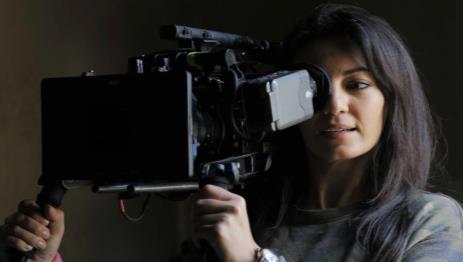
 (Continued)
(Continued)
But when I got pregnant, it took me back to this woman who came knocking on our door one day. She was eight months pregnant and my parents took her in, like the Lubna Azabal character does in Adam. It was against the law to have a child out of wedlock and she couldn’t keep the baby. I went with her to give him away. I didn’t realize how deeply this experience marked me until 17 years later when I got pregnant. And I started thinking of her all the time, and the violence she had experienced giving her child up. I started writing. It was my maternal instinct and all I felt as a woman, that triggered my writing. But what touches me above all is l’humaine (the human). I really don’t believe stories have to be gendered, as long as they’re coming from somewhere authentic
TFV: In The Blue Caftan, the characters also go against society through their intimate lives. What was the origin of the story?

MT: With this story there was also a trigger, which happened while I was scouting in the medina for Adam. I met this man who owned a hairdressing salon, and I was very touched by what I felt he wasn’t saying about his life. I could feel the pressure he had to face every day – he was a married man and he was living behind a
façade like Halim, to be socially accepted. But inside it was turmoil. We didn’t talk about this, but there are things that don’t need to be verbalized. It took me back to memories of my youth growing up in Tangiers, where I heard so many stories about couples where the husband was gay and led a parallel life. Everybody knew, but nobody said anything. It’s something that has always intrigued and touched me.
TFV: I very much like the way D.P. Virginie Surdej lights your films. Can you talk about your approach to images in your filmmaking?
MT: When I’m writing, my writing isn’t anything rational. I don’t know where my story is taking me. I knew Halim [played by Saleh Bakri] would be a character, but I didn’t know why. Then there is always something that marks us and needs to come through. I let myself be carried by my characters, my emotions, by what I’m feeling. And my scenes are always very visual as I’m writing. The colors and textures are there, the lighting is there all this is very detailed in the screenplay. I love painting. Maybe that’s why it’s so important to me to find
exactly the right set, the apartment I want to shoot in, Halim’s store, because I want to shoot in natural environments.
I had worked with Virginie Surdej on Adam. She has great sensibility, a beautiful eye; she understands where I want to go and what I want to look for. She knows the certain way I want to illuminate my characters. We prepare each shot in advance and it’s important to know what it’s going to say in advance. Every cut is important for me.
Nabil Ayouch?
MT: We only cowrote together once, on Razzia; on all the other films he contributed to the writing process, like I contributed to his films, meaning we talk over the characters and the story. He’ll read and give me feedback, I’ll read and give him feedback – it’s really a collaboration. It’s beautiful to have the regard (look) of someone who has a sensitivity you’re aligned with, and who can be objective when you’re too emotionally involved in your story.
(Continued)
Alongside our critics’ opinions will be interviews with directors, profiles of key filmmakers, a selection of CineVerdict reviews in Spanish and a special business series entitled “Oscar Capital” – all during this very crucial week for contenders and Academy voters.
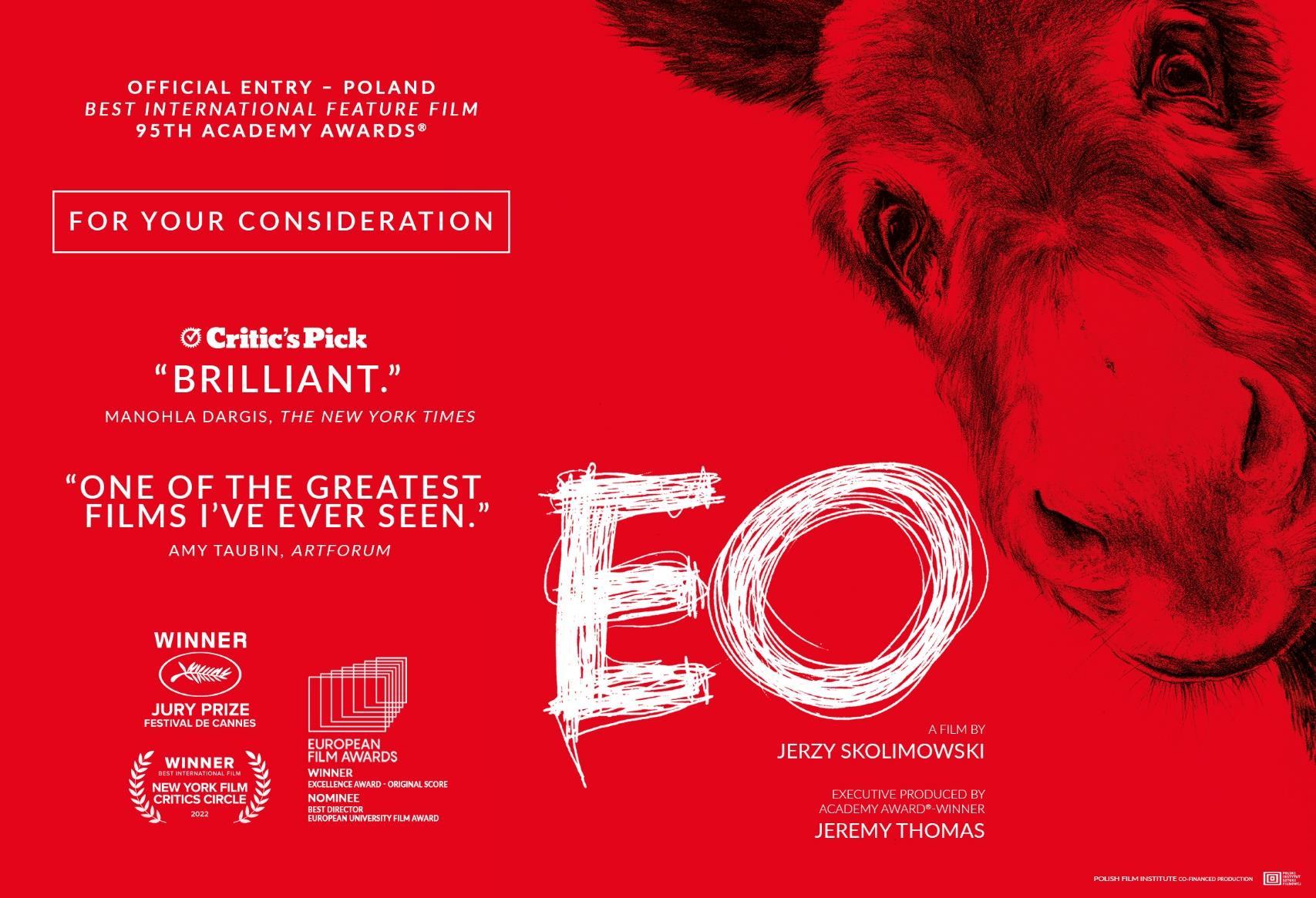
The week-long review of Oscar nominations offers maximum exposure for films vying to get to the next round and provides an easy memorandum for the Academy’s voting members and for our readers, as they decide who deserves to take a step closer to the coveted golden icon.
We hope you enjoy INTERNATIONAL
series this week.
Thanks from everyone at TFV for your support and readership! And a very special nod to Deborah Young and TFV’s award winning film critics, whose incredible passion and dedication is demonstrated through this week’s selection of film reviews.
 Eric Mika President & Publisher
Eric Mika President & Publisher

The Academy’s annual awards revenues reached US$117.7 million in 2021 up significantly from ten years ago (US$84.2 million, 2011), but down from the year before (US$131.9 million, 2020). The cost? US$42.9 million, including salaries and benefits, with a net profit of US$74.8 million for the 95th Academy Awards.
With ratings at a fraction of what they were just ten years ago (37.2 million viewers in 2011, according to Nielsen), a multi-year domestic television licensing deal with ABC, plus international licensing of the event to Buena Vista (to 2024), provides significant protection against declining viewership through to at least 2028.
US$893.8 million
The value of the Academy’s total net assets rose by US$104.6 million above 2020’s US$789.2 million.
That’s due in large part to investing nearly all of its annual revenues with no distributions and no tax. The value of its investment portfolio has more than tripled in the last decade. Holding a diversified investment portfolio, the Academy’s investments into equities and alternatives, including managed funds, reached US$709,2 million, up from US$635.3 million in 2020 and significantly higher than the US$163.2 million in 2011.
Nearly a decade in the works, the Academy Museum of Motion Pictures, near Beverly Hills, recently opened with construction costs nearing US$535.5.
Designed by Renzo Piano, the Pritzker Prize winning architect, this 300,000 sq.ft. glass highlighted landmark is intended to be a global destination for the film aficionado and for the next generation of film-makers.
The purpose of the Academy itself, to promote outstanding contributions to the quality of the motion picture, as not changed in nearly a century.
Live viewership over linear television and convergence between theatrical and streaming distribution may force changes in the presentation of the Academy Awards over the coming years. But the Academy’s financial resources, and its growing international reach, provide more than enough capability and capacity to continue its mission to support the Media & Entertainment industry, if not exclusively through the box office.
So long as story-tellers merge art and science into motion pictures to entertain ever growing audiences, on whatever screen they choose, it’s a safe bet that Oscar will be there to reward them.
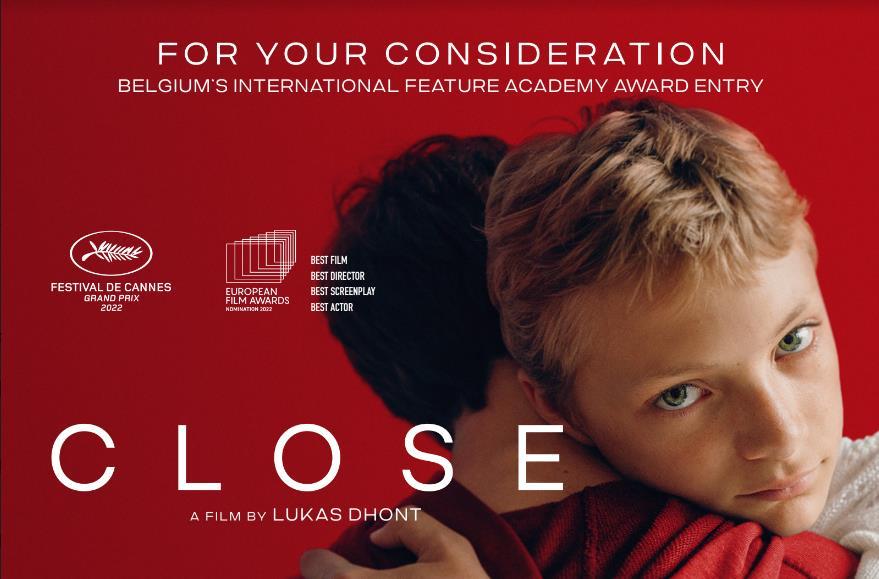

VERDICT: Competing forms of victimhood expose a rotten racist society in director Michal Blaško's prize-winning Oscars submission.


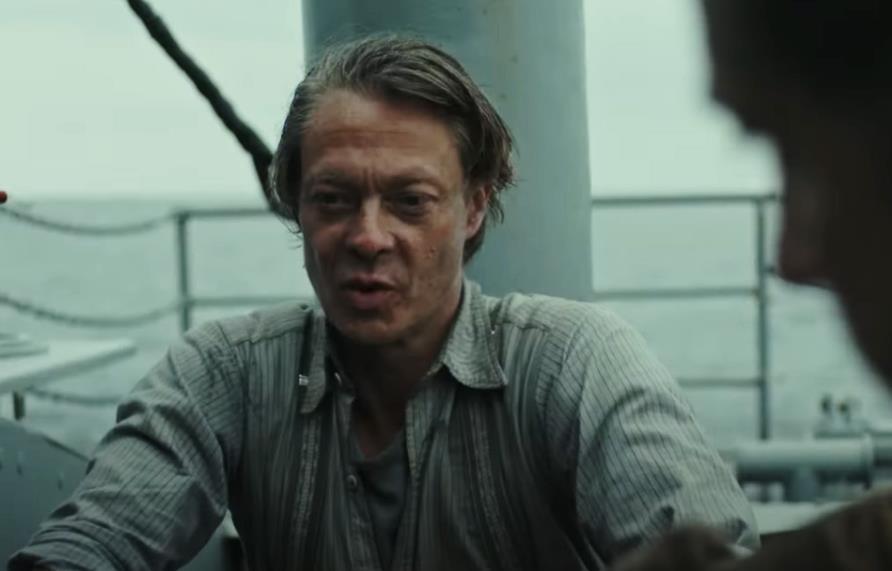
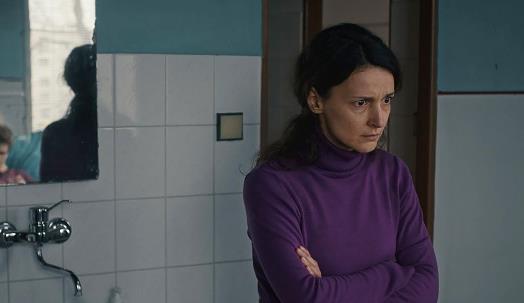
Stephen Dalton, November 25, 2022 The politically useful victim status of one marginalised outsider group is cynically weaponised against another in Slovak director Michal Blaško’s assured debut feature, a prickly morality play that squeezes some big questions and timely themes into its modestly scaled social-realist format. After picking up acclaim in Venice, Toronto and elsewhere, Victim was recently named as Slovakia’s official contender in the Academy Awards race for Best International Film. Though the topic feels familiar and the dramatic treatment is fairly straight, that Oscars connection and positive critical buzz should solidify healthy art-house prospects. Full Review
: Lorenzo Vigas continúa con su visión crítica de las figuras paternas y las implicaciones más amplias de la ausencia paterna en esta sutil historia de madurez anclada en la excepcional presencia de su joven protagonista.

Jay Weissberg, December 4, 2022
(Continúa en la página 9)



VERDICT: Lorenzo Vigas continues his critical take on father figures and the broader implications of paternal absence in this subtle coming-of-age story anchored by the exceptional presence of its young lead.
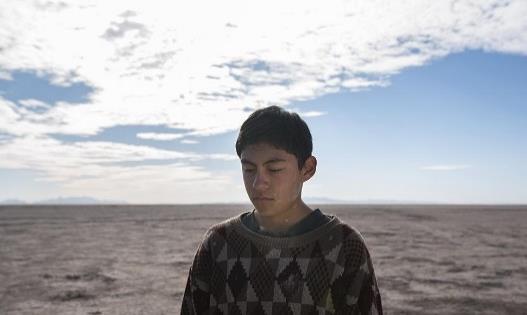
Jay Weissberg, December 4, 2022
The titular box that young Mexican teen Hatzin (newcomer Hatzin Navarrete) picks up containing his father’s remains may look like a simple mini-casket, but the emotional baggage that goes with it is far weightier than what’s inside. In the third and final installment of his trilogy ruminating on the concept of the father-figure, Lorenzo Vigas goes beyond the psychosexual longing of his Golden Lion winner From Afar to take a broader view of paternity, focused on Hatzin but designed to resonate throughout Central and South America where a crisis of absenteeism and fatherdictators provoke multiple reckonings. Gratifyingly nuanced and anchored by Navarrete’s remarkable presence, The Box will find welcoming couriers to take it beyond its double berths in Venice and Toronto.
Given the intimate nature of the storyline those broader issues aren’t directly apparent, but Vigas keeps expanding beyond the protagonists’ immediate environs with majestic longshots Full Review
VERDICT: Venice Golden Lion winner Lorenzo Vigas talks to TFV about his latest film 'The Box' ('La caja'), which has been submitted by Venezuela for the International Oscars 2023.
Patricia Boero, December 4, 2022
THE FILM VERDICT: In The Box/La Caja, you worked with an Argentinean editor (Sergio Barbieri), a Chilean cinematographer (Sergio Armstrong G.), and an Uruguayan screenwriter (Laura Santullo); plus of course the Mexican actors and other technical and creative support. Is this collaboration across borders a more common way to film in Latin America or indeed anywhere in the world?
LORENZO VIGAS: I really enjoyed working with that group of talented professionals on La Caja. Producers and film funding entities must also accept and welcome this transnational, diverse way of making a movie: bring the best talent, wherever they may be from, whatever languages they speak, and work together as a team. It also broadens the film’s reach when film critics write for readers across language and geographical barriers.

TFV: Does your experience as a director of documentaries influence the way you direct narrative films?
LV: The Orchid Seller was a very personal, emotional film about my father, his paintings, and his relationship with his brother, which I needed to make. My documentary experience is very useful in allowing the editing process to be more flexible. I like taking risks and trusting my instinct, as when I choose a firsttime actor over a professional one. We filmmakers need to take such risks to achieve authenticity and connect emotionally with the audience. I worked with first-time actors in both of my recent films. Actor Luis Silva in From Afar/Desde Allá now lives peacefully in Chicago and is married with one child, while several of his friends back home have been killed in gang violence. The Box/La Caja actor Hatzin (Continues page 12)
VERDICT: CANNES GRAND PRIX, JOINTLY
AWARDED - REVIEWED MAY 27 Lukas Dhont’s gutwrenching second feature is a stunning ode to adolescent same-sex friendship and a powerful critique of the ways society normalizes aggression while demonizing physical tenderness.
Jay Weissberg, May 29, 2022
A great tragedy occurs at the 45-minute mark in Close, Lukas Dhont’s transcendent second feature. It’s a tragedy that rips you in two not just because of the gut-wrenching event itself, but for what the film is saying through its depiction of the close friendship – no, love – between two adolescent boys that challenges the meaning behind a word as banalized as “close.” Everything about the film, from the boys’ innocent complicities to the way Dhont sets them off against normalized physical aggression in the form of ice hockey, speaks of society’s wariness of same-sex affection yet encouragement of violence, the former seen as an aberration and the latter a rite of passage. Dhont never sexualizes these boys or their love, and it’s impossible to really grasp what love is for a couple of thirteen-year-olds, but in this beautiful, delicate film we get a glimpse of prelapsarian bliss made aberrant by rigid societal modes of behavior.

Full Review

CINE VERDICT: En La caja trabajaste con un editor argentino (Sergio Barbieri), un director de fotografía chileno (Sergio Armstrong G.) y una guionista uruguaya (Laura Santullo); además, por supuesto, de los actores mexicanos y otros apoyos técnicos y creativos. ¿Es esta colaboración transfronteriza una forma nueva y más común de filmar en América Latina o, de hecho, en cualquier parte del mundo?
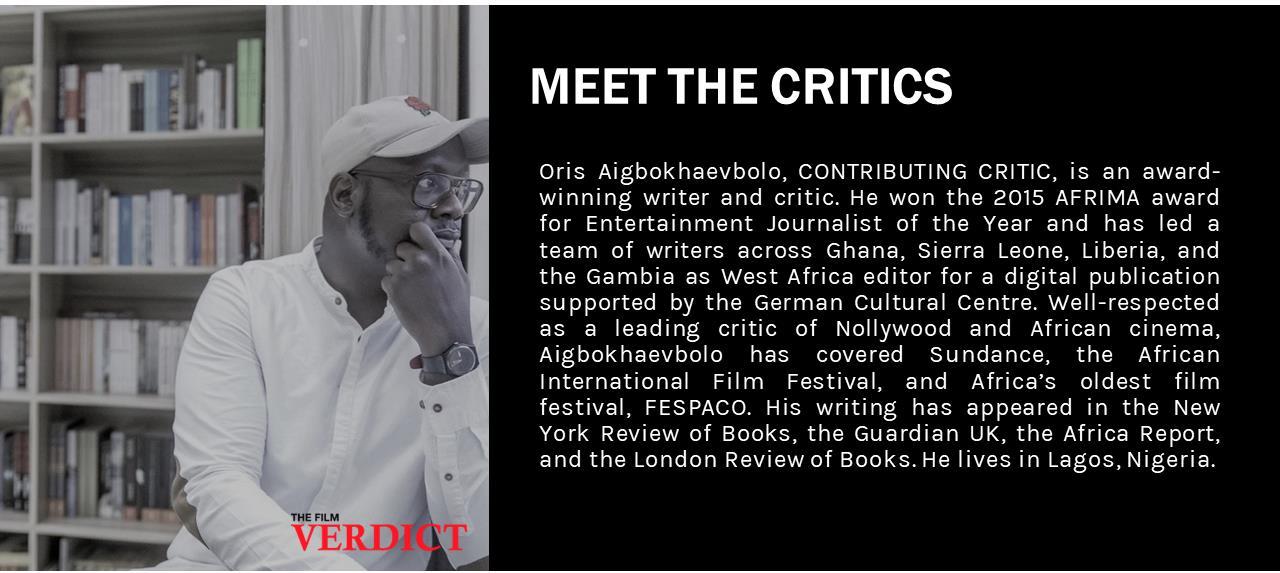
LORENZO VIGAS: Me gustó mucho trabajar con ese grupo de profesionales talentosos en La Caja. Los productores y las entidades de financiación del cine también deben aceptar y dar la bienvenida a esta forma transnacional y diversa de hacer una película: traer a los mejores talentos, sean de donde sean, hablen el idioma que hablen, y trabajar juntos como un equipo. También se amplía el alcance de la película cuando los críticos de cine escriben para los lectores más allá de las barreras lingüísticas y geográficas.

CV: ¿Tu experiencia como director de documentales ha influido en tu forma de dirigir películas narrativas?

: El ganador del León de Oro de Venecia, Lorenzo Vigas, habla con TFV sobre su última película, La Caja, que ha sido presentada por Venezuela como candidata para el premio Oscar Internacional 2023.
Patricia Boero, December 4, 2022
LV: El vendedor de orquídeas fue una película documental muy personal y emotiva sobre mi padre, sus cuadros y la relación con su hermano, que yo necesitaba hacer. Mi experiencia en documentales es muy útil para permitir que el proceso de montaje sea más flexible. Me
gusta correr riesgos, confiar en mi instinto, como cuando elijo a un actor primerizo en lugar de uno profesional. Los cineastas tenemos que asumir esos riesgos para conseguir autenticidad y conectar emocionalmente con el público. He trabajado con actores (Continúa en la página 10)
The corrosive consequences of long-simmering resentments and regrets are slowly revealed in Davit Pirtskhalava’s feature directorial debut A Long Break (Didi shesveneba). More talky than cinematic, the film feels better suited for the stage than the big screen, but its complex approach to bullying and the burden carried by both victims and bystanders is sophisticated, even if its impact is thwarted by too many voices competing for attention.
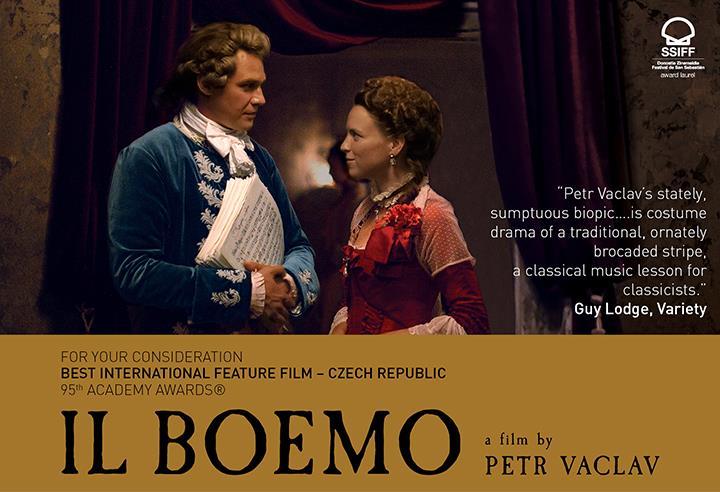
Thirteen years since they’ve last been together, Tsitsi (Shako Mirianashvili) has convinced a handful of his former classmates to break into their old school for an evening of drinking and reminiscing. The past decade hasn’t been easy on any of them. The country’s struggling economy has led many to immigrate west to find work, while Tsitsi and the others have been left behind, scraping to make ends meet. Full Review
VERDICT: Years of guilt and shame are exorcised in Davit Pirtskhalava’s stagy drama tracking the aftershocks of bullying.
Jagernauth, September 16, 2022
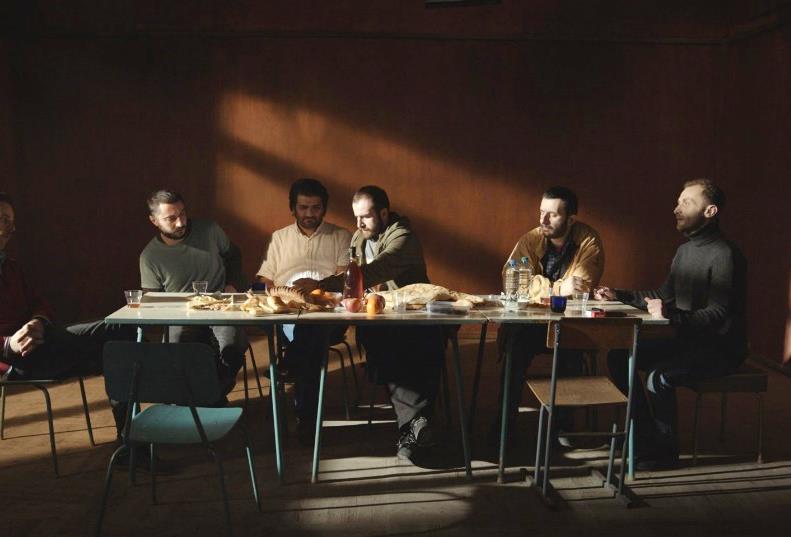
VERDICT: Korean cult director Park Chan-wook takes us on the rollicking ride of a deconstructed murder investigation, complicated by obsessive love and betrayal.

Deborah Young, May 23, 2022
A new film by one-of-a-kind Korean director Park Chan-wook is guaranteed to make a splash, but some viewers may find themselves in water over their heads in this deconstructed police procedural-cum-romance that visualizes thoughts and feelings and makes a deliberate salad of the editing. International Asian stars Tang Wei as a murder suspect and Park Hae-il as the detective who’s after her (in more senses than one) have a sparkling chemistry on screen that should persuade game audiences to follow their story of love, betrayal and self-sacrifice, even as the narrative comes in and out of focus on the level of sheer comprehensibility. The end result is a riotous, visually haunting, sometimes frustrating or bemusing outpouring of pure cinema that will either sweep audiences away or send them heading for the door. Its bow in Cannes competition should be a litmus test to see how well it will play at the art house.is lensed almost tenderly by Sturla Brandth Grøvlen.
Park Chan-wook, best known for celebrated and unconventional films like the thriller Oldboy (Grand Prix at Cannes in 2004) and the erotic period piece The Handmaiden (Cannes 2016), comes on… Full Review

A sensitive young schoolgirl spends a life-changing summer away from her troubled family in Irish writer-director Colm Bairead’s impressively assured debut feature, The Quiet Girl (An Cailín Ciúin). Beautifully filmed and meticulously acted, with mostly Gaelic-language dialogue, this slight but engrossing comingof-age drama opened the Dublin film festival yesterday still buzzing from its prize-winning world premiere at the Berlinale last week in the Generation Kplus section.
Building on a modest canon of shorts and TV work, Bairéad’s first feature already feels like a headline-grabbing success story in Ireland, where the Irish language has extra cultural cachet and a subtle but unavoidably political
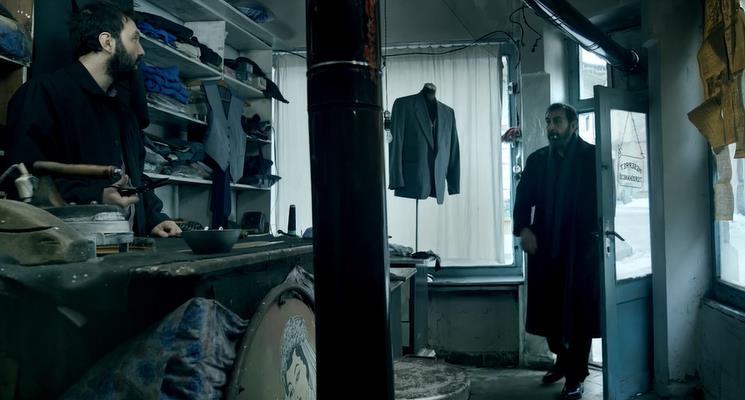
VERDICT: An emotionally fragile schoolgirl spends a revelatory summer with foster parents in director Colm Bairéad's haunting, prizewinning, Irish-language debut feature, 'The Quiet Girl'.
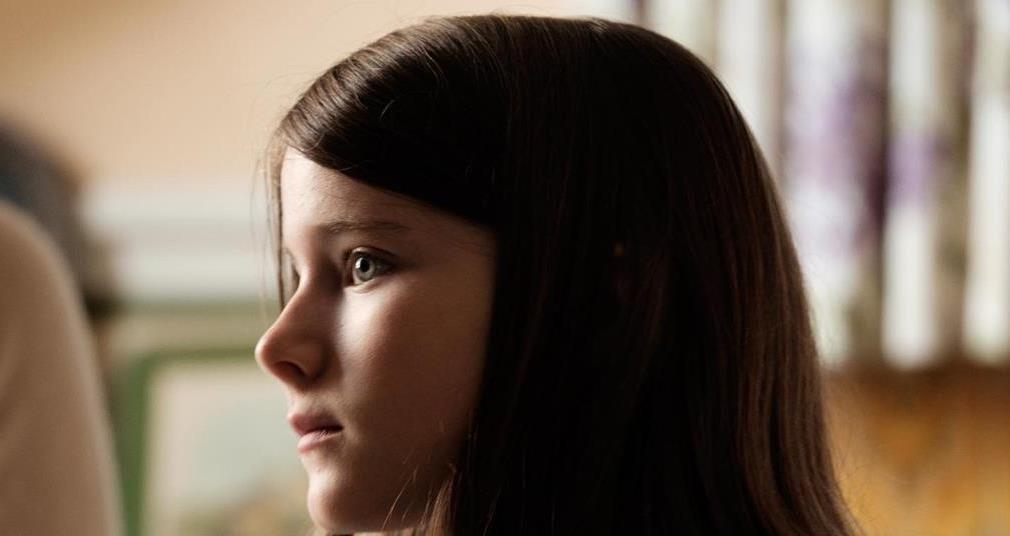
Stephen Dalton, February 24, 2022 dimension. It is currently tying with Kenneth Branagh’s Belfast as front-runner for prizes at the key industry IFTA awards next month, with 10 nominations each.

Crafted by a high-calibre team, The Quiet Girl has strong festival credentials and solid art-house release potential.
Full Verdict
VERDICT: Notwithstanding truly impressive visuals by D.P. Sviatoslav Bulakovskyi, “Klondike” underwhelms with its unilluminating look at the Donbas region conflict in Ukraine, seen through a reductionist gendered lens where women nurture and men achieve nothing but destruction.
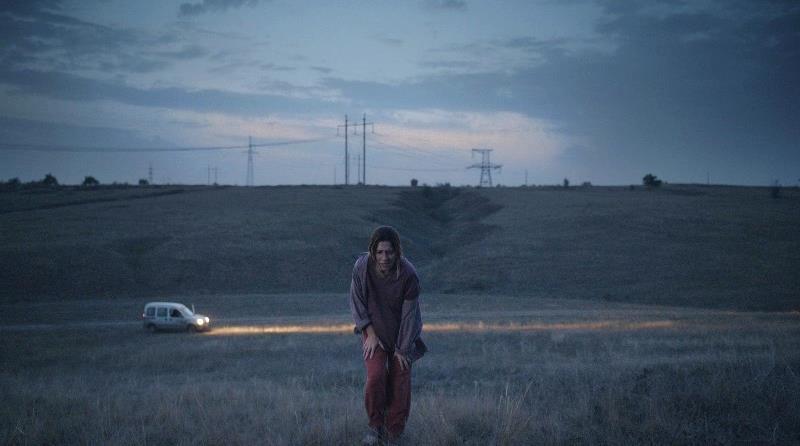
Jay Weissberg, January 21, 2022
Men posture for control, show dominance and make war while women aim to get on with things, keep the home together and give birth in agony. That’s the facile message of Klondike, Maryna Er Gorbach’s beautifully filmed yet tiresomely obvious evocation of the Ukrainian-Russian conflict in the Donbas region, carrying the inevitable seal of authenticity, “inspired by true events.” It also boasts a final onscreen title, “Dedicated to woman…” What’s with the ellipsis? And the singular “woman”? Set in 2014 in the town of Hrabove, where Malaysian Airlines Flight 17 was shot down by Russian separatists, the film tells of an expectant couple who need to decide whether to remain on their farm or leave after a rocket takes off a wall of their home. Premiering at Sundance and then moving on to Berlin’s Panorama, the puzzlingly named Klondike will benefit from its appeal to a simplistic form of ur-feminism, but the real saving grace is Sviatoslav Bulakovskyi’s evocative cinematography. Full Review

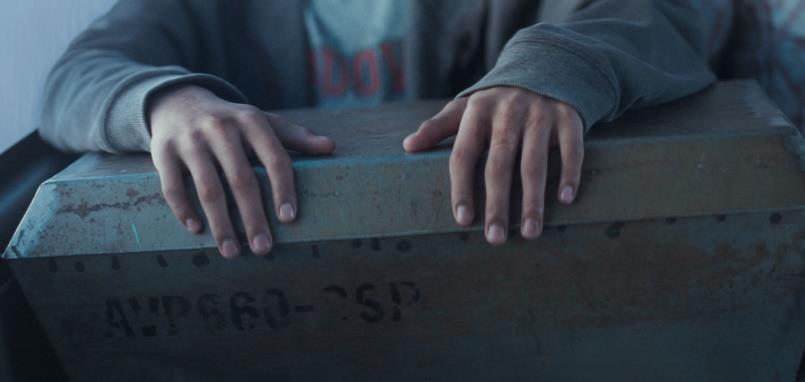 (traducido por Patricia Boero)
(traducido por Patricia Boero)
La caja titular que recoge Hatzin, el joven adolescente mexicano (el debutante Hatzin Navarrete), que contiene los restos de su padre, puede parecer un simple mini-ataúd, pero la carga emocional que la acompaña es mucho más pesada que lo que hay dentro. En la tercera y última entrega de su trilogía sobre el concepto de la figura paterna, Lorenzo Vigas va más allá del anhelo psicosexual de su ganadora del León de Oro en Venecia, Desde allá, para adoptar una visión más amplia de la paternidad, centrada en
Hatzin, pero diseñada para resonar en toda América Central y del Sur, donde la crisis del ausentismo y los padres-dictadores provocan múltiples consecuencias. Gratificantemente matizada y anclada por la notable presencia de Navarrete, La caja encontrará festivales y público que la lleven más allá de sus exhibiciones en Venecia y Toronto. Representa a Venezuela para el premio del Oscar internacional 2023.
Dada la naturaleza íntima de la historia, esos temas más amplios no son directamente evidentes, pero Vigas sigue expandiendo más allá de los entornos inmediatos de los protagonistas con majestuosos planos largos de las áridas llanuras de Chihuahua, obligando a los espectadores a considerar cómo esta narrativa específica sobre la llegada de un padre perdido encaja en un contexto nacional más amplio en el que el entorno es sólo uno de los muchos factores. Lo que comienza como una historia de Hatzin aferrándose a un hombre que cree que es su padre, pronto abarca todo un discurso sobre el engaño, la violencia y las formas en que una sociedad se deforma cuando las figuras paternas están ausentes o son incapaces de nutrir. Revision Completa


no profesionales en mis dos películas recientes. En Desde Allá, el actor Luis Silva vive ahora tranquilamente en Chicago y está casado con un hijo, mientras que varios de sus amigos en su país han sido asesinados por la violencia de las bandas. El actor de La Caja Hatzin Navarrete se ha convertido casi en un hijo para mí; y su vida también está cambiando. Ahora Hatzin seguirá creciendo como actor y personalmente; representará nuestra película en el Festival de Cine de La Habana, es la primera vez que viaja al extranjero.

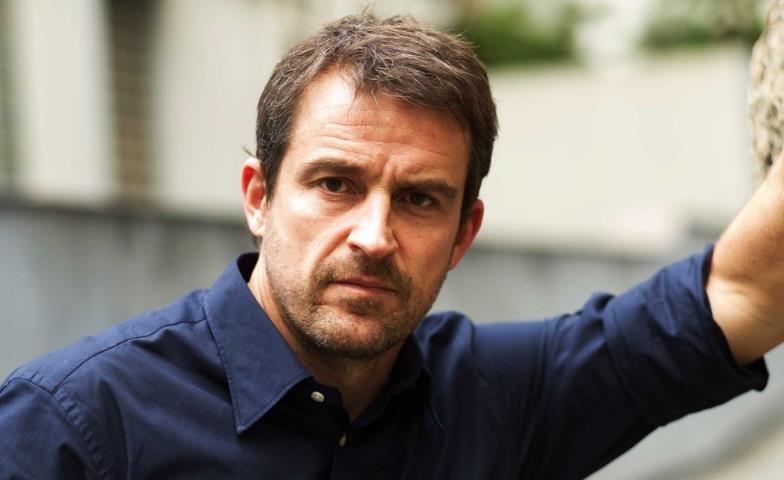
CV: ¿Sigues tus guiones a rajatabla o hay espacio para la improvisación?
LV: Intento encontrar un equilibrio entre la espontaneidad y la preparación planificada. Trabajo muy estrechamente con mis coguionistas en el guión, pero debemos permitir la espontaneidad; a veces el paisaje, la luz o incluso el propio silencio que escuchamos en el rodaje, o la química entre los actores pueden inspirarme para modificar un texto sobre la marcha, pero sobre todo respeto el guión como el mapa que guía una película exitosamente. Un ejemplo es que el nombre de Hatzin era Arturo en el guión original, pero cuando empezamos a rodar nos dimos cuenta de que su verdadero nombre era mucho más poético y aportaba realismo a la narración.
CV: Tus locaciones en La Caja cuentan sus propias historias, se convierten en un personaje más de la trama.
LV: Las maquilas (fábricas textiles) donde los trabajadores mexicanos acaban compitiendo con las importaciones textiles chinas baratas son un escenario difícil de retratar de forma realista. Son un mundo en sí mismo. Revision Completa
VERDICT: This overlong Filipino corruption thriller, soon to form the bulk of an HBO Asia mini-series, largely ignores character development and instead indulges in tiresome caricature.
Jay Weissberg, September 11, 2021
A Venice competition slot seems like a strange place for On the Job: The Missing 8, a punishingly long corruption thriller from Filipino genre master Erik Matti that’s soon to be seen as an HBO Asia Original six-episode mini-series. Following on – but not actually a sequel to – the Cannes preemed On the Job from
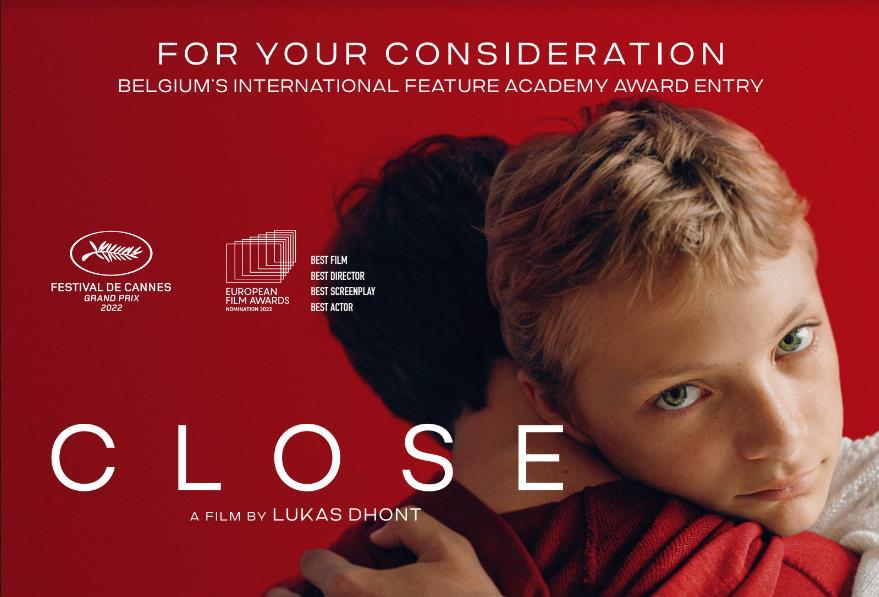
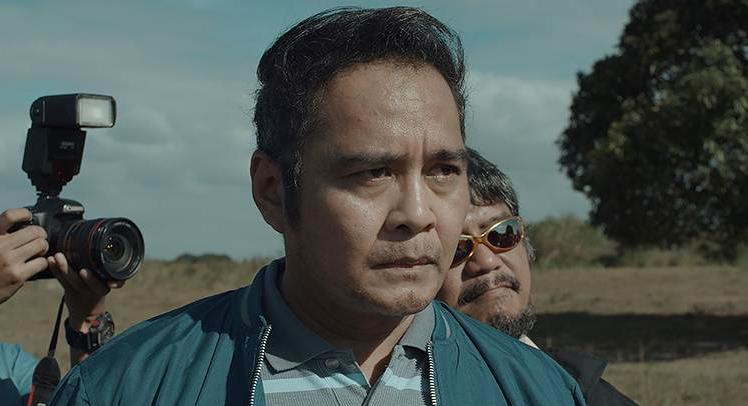
2013, the story follows a journalist on the take who discovers his moral compass once his newspaper colleagues are massacred by a bunch of jailbirds temporarily let out of prison by the local mayor whenever he needs a dissenting voice bumped off. Matti clearly has yet to encounter an editing suite application he doesn’t want to try, though he’d be better off assisting screenwriter Michiko Yamamoto in developing more than one character. Perhaps it will all work better as a series, but on-screen The Missing 8, while not hateful, feels like it’s definitely missing something.
The shady mayor of La Paz, Pedring Eusebio (Dante Rivero), runs the city like a private fiefdom, enabled by ruthless General Rene Pacheco (Leo Martinez). They’ve got a host of people in their pockets, including Sisoy Salas (John Arcilla), a journalist working for the local paper and radio who uses his platforms to enthusiastically promote Eusebio and his policies even though he knows dirty money is flowing into the mayor’s office. It’s not clear why newspaper publisher Arnel Pangan (Christopher de Leon) tolerates his views Full Review
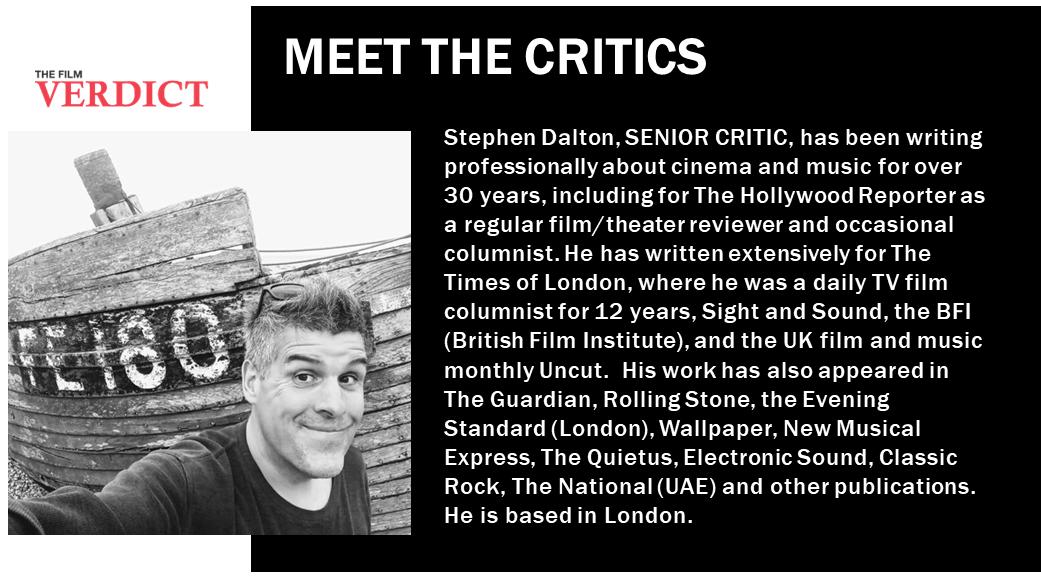


Navarrete has become like a son to me, and his life is also changing. Now Hatzin will continue to grow as an actor and personally; he will represent our film at the Havana Film Festival, it’s the first time he has traveled abroad.
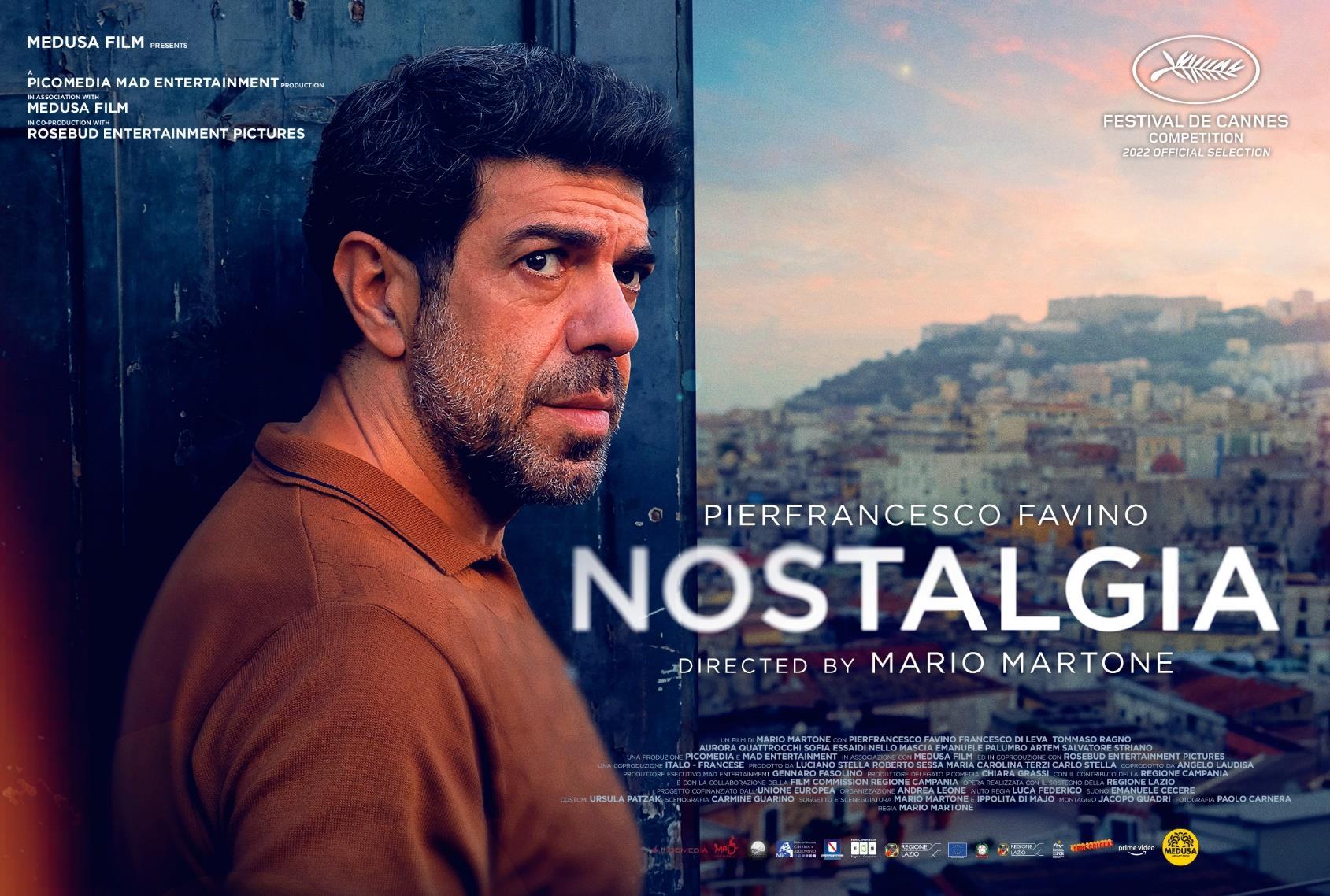
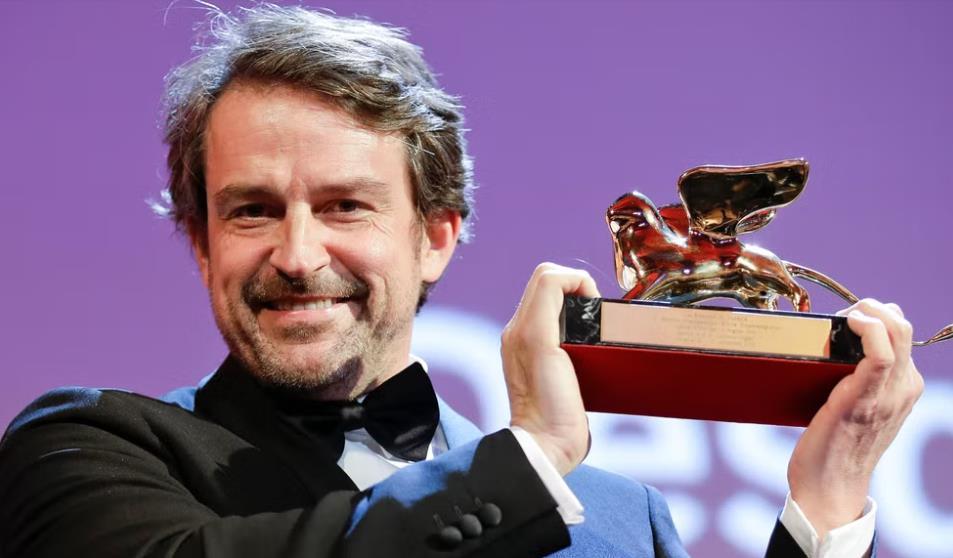
TFV: Do you follow your scripts tightly or is there room for improvisation?
LV: I tried to find a balance between spontaneity and planned preparation. I work very closely with my cowriters on the script, but we must allow for
spontaneity; sometimes the landscape, the light, or even the very silence we hear on location, or the chemistry between actors can inspire me to modify a text on the go, but mostly I respect the screenplay as the guiding map for a successful film. One example is that Hatzin’s name was Arturo in the original script, but as we started filming we realized his real name was much more poetic and injected realism into the narrative.
TFV: Your locations in The Box/La Caja tell their own stories, and become another character in the plot.
LV: The Maquilas (textile factories) where Mexican workers end up competing with cheap Chinese textile imports are a difficult setting to portray realistically. Full Verdict





VERDICT: Mexican master Alejandro G. Iñárritu (’Birdman’, ‘The Revenant’) takes time off for a very personal project with autobiographical and cinematic undertones.
Deborah Young, December 5, 2022 (originally published Sept. 1, 2022) The golden touch of filmmaker Alejandro González Iñárritu, which brought him two consecutive Academy Awards as best director for Birdman and The Revenant, is very much on display in a long film that has the personal feel of lightly fictionalized autobiography. Bardo, False Chronicle of a Handful of Truths is the rambling, dreamlike portrait of a famous Mexican journalist and documaker who is about to receive a major award from the gringos in Los Angeles.
(Continues page 11)
VERDICT: The celebrated director returns to his homeland with a brilliant, excessive, quasi-autobiography that will represent Mexico in the International Oscar race.


Lucy Virgen, December 5, 2022 (Continues page 2)

: El maestro mexicano Alejandro G. Iñárritu ('Birdman', 'The Revenant') hace un paréntesis para un proyecto muy personal con matices autobiográficos y cinematográficos.


Deborah Young, December 5, 2022 (traducido por Lucy Virgen)
El toque dorado del cineasta Alejandro González Iñárritu, que le ganó dos premios consecutivos de la Academia como mejor director por Birdman y The Revenant, se despliega en una película larga que da la sensación personal de una autobiografía ligeramente ficcionalizada. Bardo, falsa crónica de unas cuantas verdades es el retrato divagante y onírico de un famoso periodista y documentalista mexicano que está a punto de recibir un importante premio de los gringos en Los Ángeles.
Este evento brinda al prota la oportunidad de reexaminar irónicamente su vida, amores, trabajo, familia, sueños y temperamento mercurial a una duración indulgente (más de tres horas incluyendo los créditos), pero en tomas impresionantes iluminadas como una feria metafísica, por el director de fotografía Darius Khondji.
(Continúa página 8)
Who is the man in the poster for Bardo, a False Chronicle of a Handful of Truths? Did director Alejandro González Iñárritu’s often commented ego drive him to appear in the promotional ad? No, it’s actor Daniel Giménez Cacho, standing in for the director like Mastroianni for Fellini in 8 1/2, or Banderas for Almodóvar in Pain and Glory. González Iñárritu returns to film in his native Mexico on a delirious journey that takes him from downtown Mexico City to the border with the U.S. in which he tries – and for the most part succeeds – to explain not only his decisions but his Mexican-ness as well. “My goal is to broaden the vision of Mexico from the outside, to show what life is like here,” the director once said as a debuting filmmaker; 22 years later, he is close to accomplishing this.
Alejandro González Iñárritu, who seems to have received every award in the cinematographic world and an Honoris Causa doctorate from UNAM Mexico’s most prestigious university, is an atypical director. After a successful career in radio and advertising, he made his directorial debut at the age of 38 with Amores Perros (2000),
screened in the Critics’ Week at Cannes. The nimble, fragmented narrative, with its unapologetically glamour-less violence and artistry that punched viewers in both the brain and the gut, earned the film standing ovations from audiences and critics alike. From that moment on it was predicted – or it was a warning? – that he would soon migrate to Hollywood. With 21 grams (2003), an American production, he was accused of being a sellout of his conscience; ironically, the title refers to what the soul is said to weigh. A film without the violence of the first one, but emotionally devastating, it was the second time he worked with screenwriter Guillermo Arriaga, with whom he also made a third film, Babel (2006). These three works are reflections on death, isolation and the impossibility of communication in the modern world. They have an impeccable mise en scene, as well as an excellently directed cast ranging from then-newcomer Gael García Bernal to Benicio del Toro, Brad Pitt and Charlotte Gainsborough. But Iñárritu’s style and success was believed to be intrinsically linked to Arriaga’s narrative style Full Profile
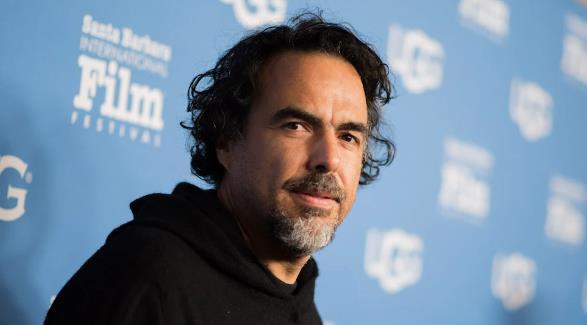
VERDICT: Director Marie Kreutzer and star Vicky Krieps give a famous 19th century Austrian empress a subversive feminist remix in this joyously imaginative Cannes premiere. Stephen Dalton, May 20, 2022

Playing fast and loose with historical fact, Austrian writer-director Marie Kreutzer and Luxembourg screen queen Vicky Krieps find a fruitful way to reinvent one of Austria’s most feted national icons in Corsage. World premiering in the Un Certain Regard section in Cannes, this visually sumptuous, boldly experimental period piece puts a playful revisionist spin on the later life of Duchess Elisabeth Amalie Eugenie, who served as Empress of Austria and Queen of Hungary from 1854 to 1898. Nicknamed “Sissi”, Elisabeth has been portrayed on screen and stage numerous times, notably by Romy Schneider in a series of syrupy 1950s biopics, then later by Ava Gardner in Terence Young’s Mayerling (1968).
Renowned as a great beauty in her youth, Elisabeth later developed an obsessive health and grooming regime which bordered on masochism, refused to be painted from the age of 32, and was rarely seen in public after turning 40. This retreat into midlife invisibility is where most conventional bio-dramas would end, but Kreutzer takes it as her starting point, seeking to rescue Elisabeth from becoming a minor supporting character in her own official biography. The painfully restrictive corsets and bodices that she squeezes her body into to maintain her slender figure here become symbolic of her entire life, stifled and crushed by the patriarchal demands and sexist expectations of her era.
Full Review

Altiplano. A man, small as an insect, walks towards the sun, his labored breathing blending into the soundtrack. Through that artful language of the senses, we are able to grasp the struggle for survival in a land where the scarcity of water dooms its inhabitants.

VERDICT: Sundance premieres a spellbinding portrait of life in the Bolivian Andes, where a drought threatens the livelihood of an elderly Quechua couple and their herd of llamas. Patricia Boero, January 24, 2022 From the stunning opening sequence of Utama (Our Home), we know we’re in for an intense experience, as we watch the sun rise above the mountains and hear the wind whispering across the Andean
Alejandro Loayza Grisi, the director and screenwriter who has previous experience as a still photographer and DOP on documentary films, directs this coproduction between Bolivia, Uruguay, and France with confidence and sensibility, while his father Marcos Loayza, a well-known Bolivian filmmaker, is one of the producers. The three Uruguayans on the team Federico Moreira as sound designer and producer, Barbara Alvarez as cinematographer, and award-winning Fernando Epstein (Whisky, Gigante, Monos) as editor add their own professionality. The script uses only essential dialogue and most of it is in Quechua, the ancient language of the indigenous people. Full Review
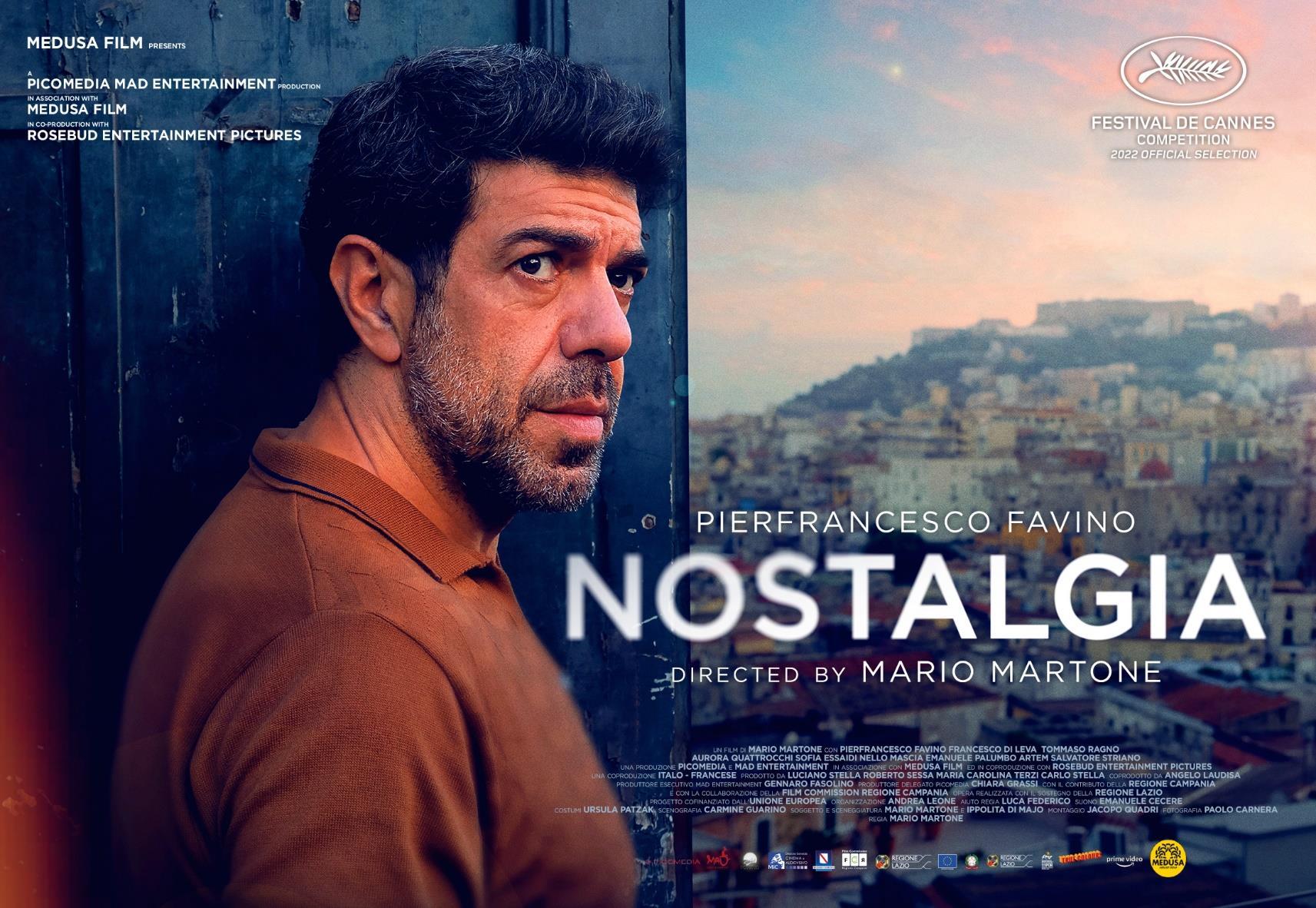
A young woman tries to rebel against her past but keeps going around in circles in Return to Seoul (Retour à Seoul), the second fiction feature from Franco-Cambodian director Davy Chou (Diamond Island). The film’s distinctive protagonist was born in Korea but then adopted by a French couple. In her twenties, she decides to go back to Korea to try and connect with its culture and perhaps find her birth parents. It’s the familiar impulse of an adoptive child, but the main character here has broken the mold, a punk rebel who delights in creating chaos and upsetting the status quo. The issue is that her rebelliousness doesn’t really seem to get her anywhere, which makes this feature, running two hours and spanning roughly a decade, finally feel long and repetitive. That said, the actors are great and its angle on the material is refreshing, which is probably one of the main reasons the film sold to Sony Pictures Classics Full Review

VERDICT: There's a lot of raw energy in Davy Chou's second feature, set in Korea, but the lead character is just too exhausting to watch.
Boyd van Hoeij, May 22, 2022
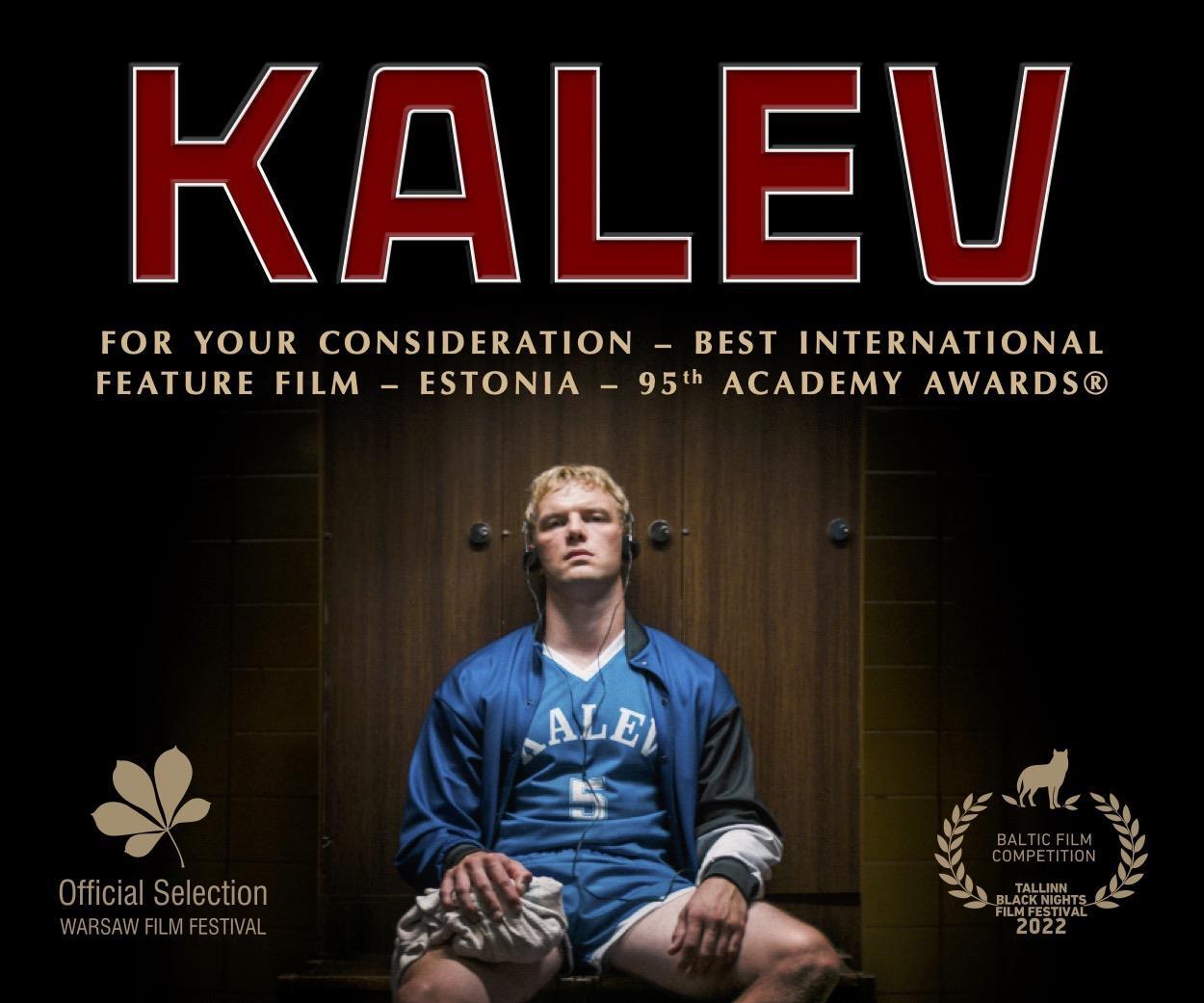

VERDICT: The life and loves of 18th century Czech opera composer Josef Myslivecek, and his dazzling Italian career and fall into obscurity, are lovingly and authentically reconstructed in Petr Vaclav’s sumptuous period production.
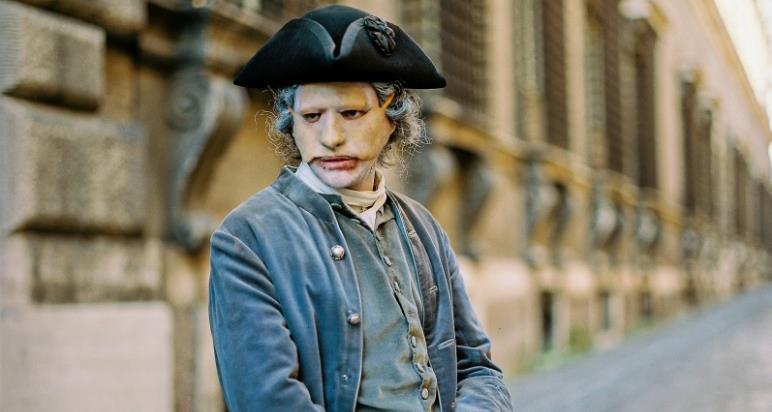
Deborah Young, September 20, 2022
Outside of opera lovers, who will surely be an eager audience for Petr Vaclav’s Il Boemo, few know the story of the once-toasted Czech composer Josef Myslivecek known as “Il Boemo”, a contemporary and friend of Mozart’s. Though Mozart has now eclipsed all the musicians of his age, Myslivecek was even more celebrated in his day in the great opera houses and courts of Naples, Venice, Turin and Bologna, where his works were acclaimed by kings. Sumptuously recreating the late 18th century ambience of musicians, singers and their noble patrons with a lavishness and authenticity Visconti would have appreciated, the film sweeps the viewer into its quaint and lusty world.
All that’s missing is a strong narrative framework that might have turned this well-made biopic into a more cohesive and gripping drama. While no Amadeus (it also lacks the manic fun of Milos Forman’s visionary film), Il Boemo is nonetheless a classy contribution to the genre, dotted with memorable scenes that capture the age and its august personages. It brought a touch of old world glamour to the San Sebastian competition, and has been named as the official Oscar submission from the Czech Republic. Hopefully it will also play a part in bringing the composer out of undeserved obscurity
Experienced director Vaclav has been wedded to Myslivecek’s music since his award-winning 2015 documentary Confession of the Vanquished, which followed a contemporary production of one of the composer’s operas. Full Review
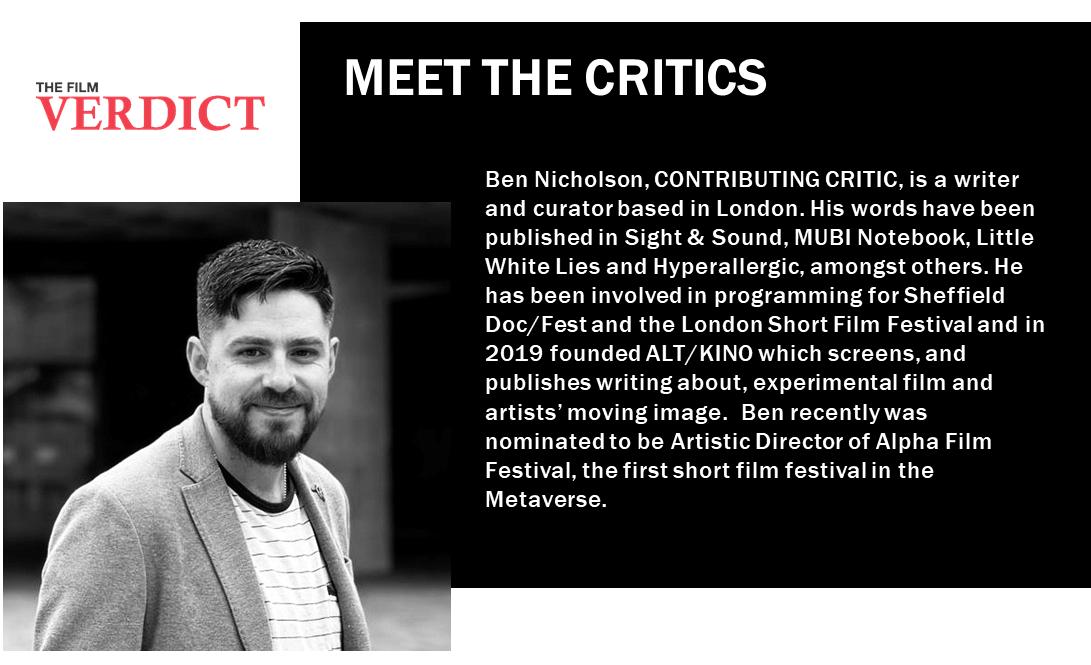


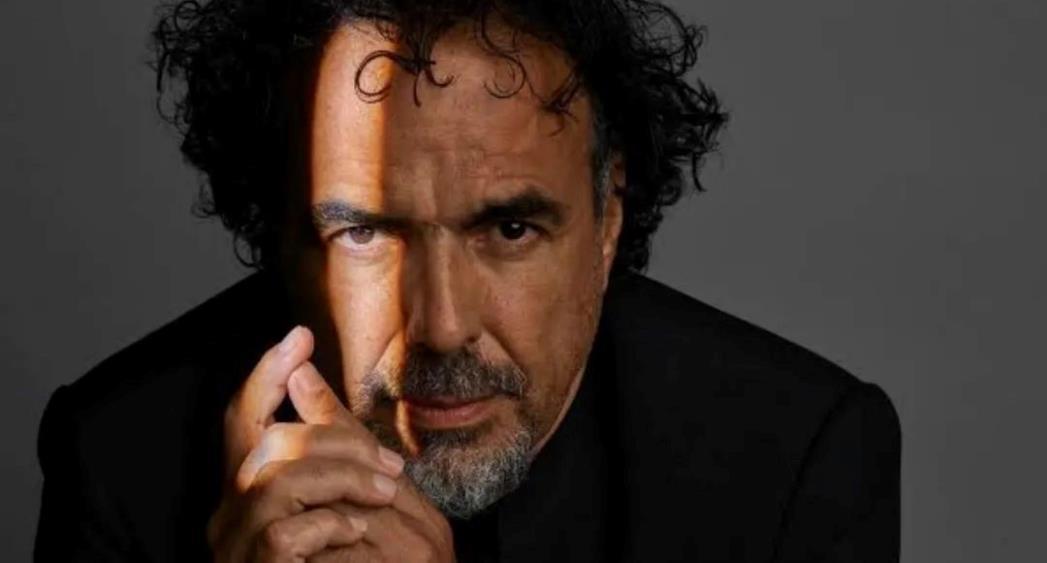

Programada para ser distribuida por Netflix en diciembre, con una corrida teatral limitada en México y Estados Unidos, es una película con una manufactura a momentos deslumbrante, que realmente debe admirarse en la pantalla grande con un sistema de sonido de última generación, en donde los fieles fanáticos del director obtendrán la mayor satisfacción. Se estrenó en la competencia del Festival de Venecia.



Aunque varias escenas surrealistas nos remontan hasta el maestro Buñuel, el concepto de un artista célebre que revisa su pasado sin poder ordenar su futuro se siente inspirado por Fellini y su alter ego Marcello. Así es como uno entiende al personaje principal Silverio Gama (interpretado por Daniel Giménez Cacho, el egoísta matador de Blancanieves y narrador de Y tu mamá también), como un sustituto de barba gris para el cineasta, con el peso del estatus de celebridad pesando sobre sus hombros. Revision Completa
: El célebre director regresa a su país con una quasi autobiografía brillante y desmesurada que representa a México en la carrera internacional por los Óscares
Lucy Virgen, December 5, 2022
¿Quién es el hombre en el cartel de Bardo, falsa crónica de unas cuantas verdades? El tan mencionado ego de Alejandro González Iñárritu ¿lo llevó a aparecer también la publicidad? No, es el actor Daniel Giménez Cacho, alter ego, mimetizado con el director como antes lo hicieron Mastroianni y Fellini en 81/2 y Antonio BanderasAlmodóvar en Dolor y Gloria. González Iñárritu regresa a filmar a México en un viaje delirante desde el centro de la capital al desierto en la frontera con los Estados Unidos en el que intentay en su mayor parte logra- no sólo explicar sus decisiones sino hasta
su mexicanidad. “Mi meta es ampliar la visión externa de México, mostrar la vida como es aquí” dijo el director cuando debutó, 22 años después está cerca de lograrlo.
Alejandro Gónzalez Iñárrituganador de prácticamente todos los premios del mundo del cine y un doctorado Honoris Causa de la UNAM, la más prestigiada universidad de México- es un director atípico. Después de una exitosa carrera en radio y publicidad debutó a los 38 años Amores Perros (2000) en la Semana de la Crítica en Cannes. La ágil narrativa fragmentada, la violencia sin disculpas ni glamour, (Continúa página 9)
y la maestría que golpeaba tanto al cerebro como a las tripas le dieron ovaciones del público y la crítica. Y desde ese momento se pronosticó, ¿advirtió? la huida más que migración a Hollywood. Con 21 gramos (2003), una producción norteamericana, fue acusado de vender su conciencia, irónicamente el título se refiere al peso del alma. Una película sin la violencia de la primera pero emocionalmente
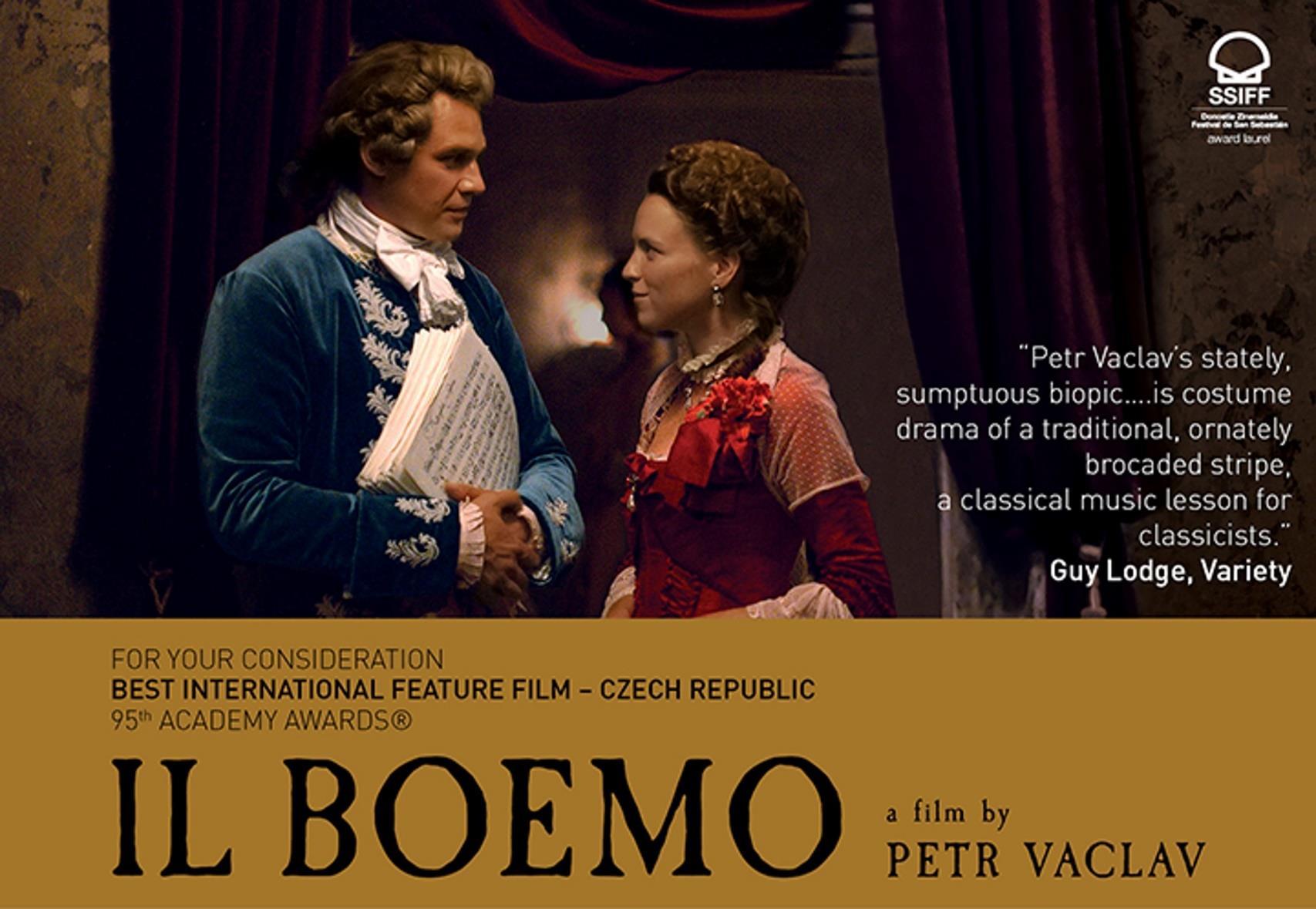

devastadora, fue la segunda colaboración con el guionista Guillermo Arriaga, con el que hizo una tercera película Babel (2006), Las tres películas, reflexiones sobre la muerte, el aislamiento y la imposibilidad de comunicación en el mundo moderno, tienen una puesta en cámara impecable, pero también una excelente dirección de actores que van desde el entonces debutante Gael García Bernal, a Benicio del Toro, Brad Pitt y Charlotte Gainsborough. Pero el estilo y el éxito, de Iñárritu se creía instrínsecamente ligado al estilo narrativo de Arriaga, la disolución de la colaboración con Babel fue un divorcio agrio, con recriminaciones mutuas en público.
Biutiful (2010) su siguiente película, otra especulación sobre la muerte y migración en una ciudad sobrepoblada es sólida para cualquier otro, pero fue vista como un fracaso para Iñárritu. Se recuperó con creces con Birdman, 2014 (4 Oscares entre ellos mejor película y mejor director) sobre la redención de un actor a través de Broadway en la que responde, en la pantalla y en la realidad a sus críticos. Perfil Completo
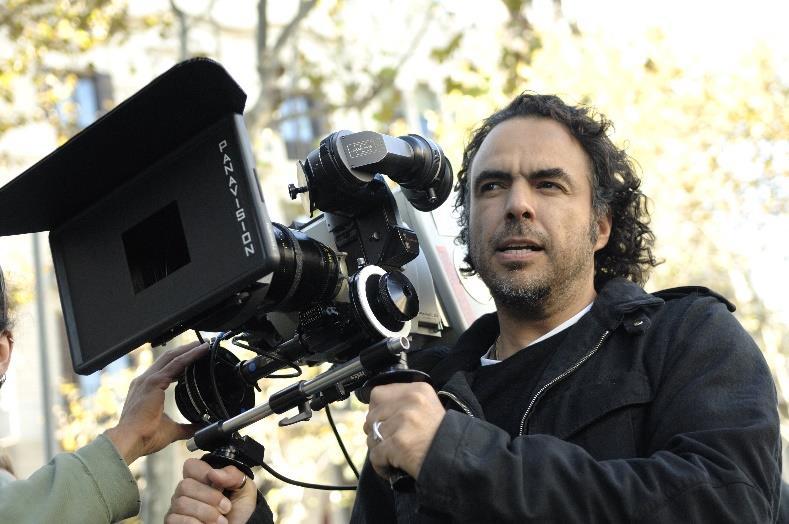

Desde la impresionante secuencia inicial de Utama (Nuestro hogar), sabemos que nos espera una experiencia intensa, mientras vemos el sol salir por encima de las montañas y oímos el viento susurrando por el altiplano andino. Un hombre, pequeño como un insecto, camina hacia el sol. Su respiración agitada se mezcla con la banda sonora. A través del lenguaje de los sentidos, somos capaces de captar la lucha por la supervivencia en una tierra donde la escasez de agua amenaza y condena a sus habitantes.
: Sundance estrena un fascinante retrato de la vida en los Andes bolivianos, donde una sequía amenaza el sustento de una pareja de ancianos quechuas y su rebaño de llamas.
Patricia Boero, November 30, 2022

Alejandro Loayza Grisi, director y guionista, con experiencia previa como fotógrafo de imágenes fijas y director de fotografía en películas documentales, dirige esta coproducción entre Bolivia, Uruguay y Francia con confianza y sensibilidad, mientras que su padre Marcos Loayza, conocido cineasta boliviano, es uno de los productores. Los tres uruguayos del equipo – Federico Moreira como sonidista y productor, Bárbara Álvarez… Revision Completa

This event provides the protag with the occasion to ironically reexamine his life, loves, work, family, dreams and mercurial temperament at indulgent length (over three hours with the credits), but in breathtaking shots lit like a metaphysical fairgrounds by cinematographer Darius Khondji. Set for release by Netflix in December, with a limited theatrical run planned in Mexico and the U.S., it is a film whose often dazzling craftsmanship should really be admired on the big screen with a stateof-the-art sound system, where the director’s established fans will get the most joy. It bowed in Venice competition.

If several surreal scenes flash back to the master Bunuel, the concept of a celebrated artist revisiting his past without being able to order his future feels inspired by Fellini and his alter ego Marcello. That is how one reads the main character Silverio Gama (played by Daniel Gimenez Cacho, the egotistical matador in Blancanieves and the narrator of Y tu mamá también) as a gray-bearded stand-in for the filmmaker, whose celebrity status rests heavily on his shoulders. Like Iñárritu, he lives in L.A. with his wife Lucia (Griselda Siciliani) and two kids, but for most of the story finds himself in Mexico City on a visit that will spark an existential crisis.
Bardo is the first film the director has shot in Mexico since Amores perros in 2000, and his POV on the country, along with the ways it has influenced his imagination, is one of the film’s most interesting aspects. Full Review

VERDICT: Alice Diop’s superb fiction debut is a marvel of control and depth, using the trial of a Senegalese woman guilty of killing her infant to honestly explore the complexities of motherhood while foregrounding it all within France’s racist currents.
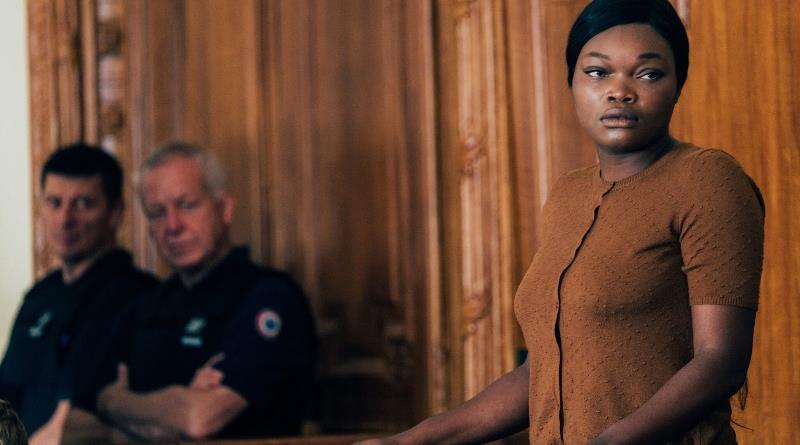
Jay Weissberg, September 7, 2022
Issues surrounding motherhood are so charged that it’s exceedingly rare to find a treatment that delves into the darker currents so nonjudgmentally: the
fears of expectant mothers, informed by memories of their own imperfect maters, the notion that you’re forever linked at the cellular level to another being, with all the beauty and terror this implies. That’s a large part of Alice Diop’s extraordinary first fiction feature, though it also feels limiting to reduce such a complex, 360-degree film into one broad concept. Saint Omer takes a simple court procedural format – a Senegalese woman in France is on trial for drowning her infant – and ever so slowly builds it into an overwhelming rumination on motherhood and racial expectations, not via the usual showy courtroom drama, which is all talk, but through silences and gazes as well as words.
Diop’s documentary We challenged audiences to recognize the way people of color are unconsciously perceived in France (and by extension, Europe and the U.S.), where the urge to qualify descriptions, such as “articulate black woman” or “well-dressed black man” reveal a smothering blanket of racism that impacts daily lives. Full Review


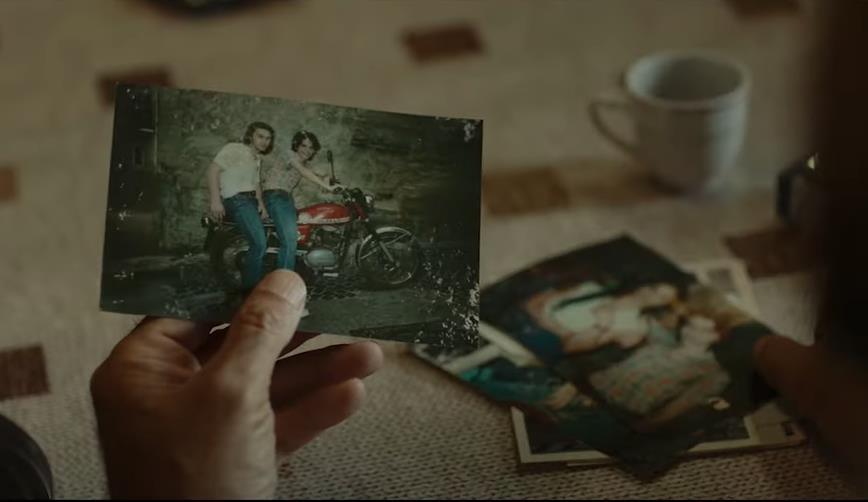
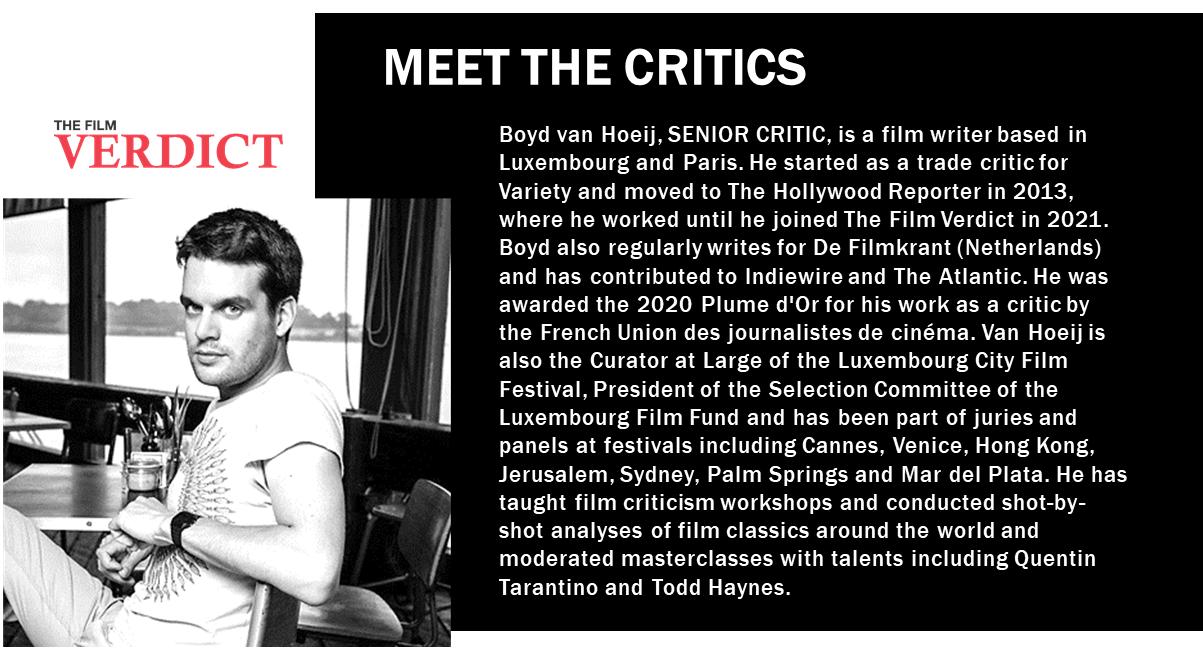
A sci-fi film styled to look like the incredible events could start happening today, Plan 75 is terrifying in its ordinariness. In distaff director Chie Hayakawa’s feature debut, the government of Japan starts offering citizens of 75 and over the possibility to “stop being a burden” for the country and its younger generations by signing up for what’s essentially assisted suicide. Hayakawa follows several elderly people as well as a few youngsters who work as Plan 75 employees as it explores issues such as lack of communication between the generations, the diminished power of family ties, the strong Japanese sense of honour and not wanting to impose oneself, that all combine to offer a fertile ground for this measure. Hakayawa, who was already in Cannes with one of her shorts back in 2014, debuts this first feature in Un Certain Regard. The film follows three main characters in strands that occasionally overlap. There’s the story of Michi (veteran artist Chieko Baisho), who decides to sign up for the program as, despite occasional meetings
VERDICT: The first feature from Japanese female director Chie Hayakawa seethes with violence under its soft-spoken exterior.

Boyd van Hoeij, May 20, 2022
with some of her female peers, she has become more isolated from both her family and the job market (she’s too proud to ask for welfare but neither her age nor her body make it easy to find work anymore).
Full Review

VERDICT: An intriguing and seldom-told WWII story gets the standardized treatment in this epic-scale Norwegian drama.

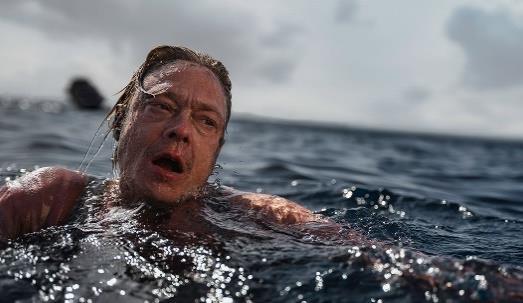
Jordan Mintzer, December 6, 2022 There have been so many films made about the Second World War — the total per IMDb, if you include TV episodes, is close to 5,000 that at this point in time, a director needs to find a completely new angle to make the attempt seem worthwhile.




In that sense, Gunnar Vikene’s War Sailor (Krigsseileren), which recounts the plight of Norwegian merchant seamen who were a pivotal if forgotten part of the Allied effort, feels like it could be a worthy addition to the canon. And yet once you get past its subject matter and epic appeal, this is largely boilerplate stuff from the predictable trajectories of its three protagonists to the bogus (Continues page 2)

: La premiada road movie de la escritora y directora colombiana Laura Mora es una carta de amor desordenada pero con gran corazón para los que carecen de afecto
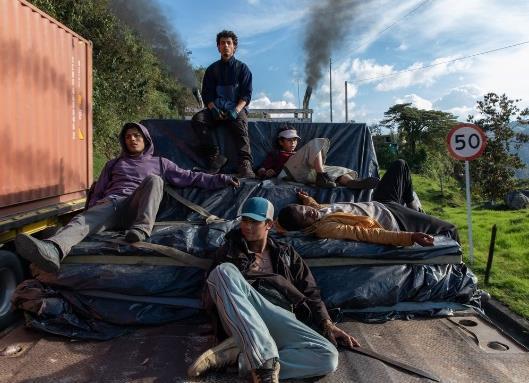

Stephen Dalton, December 7, 2022
(Continúa en la página 9)
THE FILM VERDICT: What made you want to tell this story in particular?
GUNNAR VIKENE: I’m a workingclass man from Bergen, where the film takes place, and I’ve been collecting stories about the war sailors since the early ‘90s, even before I thought I was going to become a director. Two of my mother’s cousins died in the bombing of the school, when the British attacked. I always found it strange how no one had told these stories before and then, a few years ago, I was watching TV with my daughter. We saw images of what was going on in Syria, and she commented that we live in a country where such things don’t happen. I pointed outside the window and told her we had relatives who died right over There, and she was shocked. And then the Norwegian government was discussing how many refugees we could afford to welcome, even though we’re one of the richest
VERDICT: An intriguing and seldom-told WWII story gets the standardized treatment in this epic-scale Norwegian drama.
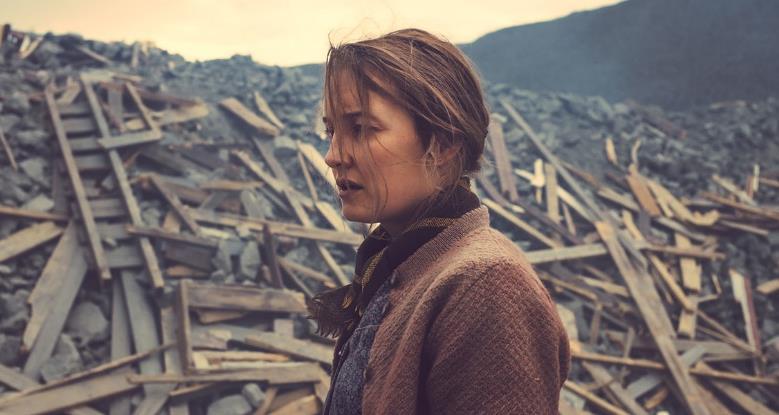
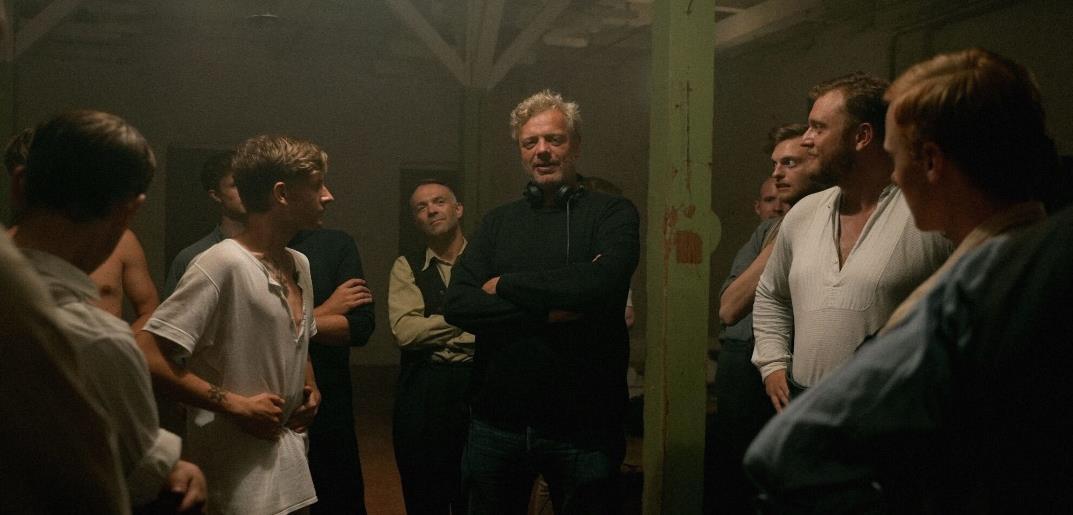
December 7, 2022 countries in Europe. I wrote the script as an act of anger, and then I submitted it to my producer, who had always said she’d never make a war movie. She agreed to do this one, because it’s an anti-war movie.
TFV: Most World War II films end in 1945, or shortly thereafter. Yours goes on until 1972. Why did you make that decision?
GV: Because it’s not a film about the war itself, it’s about the consequences. And you rarely see those in the movies. We had a premiere in Bergen, and it was quite moving to see the reactions of the local audience.
TFV: Still, there are some impressive battle scenes. You used to work on a submarine. Did that help with the realism of the sequences at sea? Full Interview
love story tossed in for no great reason, to its underlying message about honor and disregarded sacrifice.
It seems logical that this well-executed and highly polished feature (the budget was $10 million, but it looks like it cost five times that) will be serving as
Norway’s foreign-language Oscar submission: it’s got a fair share of blood, guts and glory, as well as a Hollywood-style message about how greatly Norwegians suffered in a conflict that could have ended differently without their valiant contributions. Unsurprisingly, it’s been a major hit on home turf since it was released there late September. But it also lacks both originality and something like a director’s voice. Vikene (Vegas), who penned the script himself, never manages to make the material his own, resorting to war movie clichés and paint-bynumbers storytelling, while failing to create characters that stand out from the pack. He and cinematographer Sturla Brandth Grøvien (Rams, The Innocents) do a terrific job making the bombing and battle sequences harrowingly real, with convincing VFX filling in the gaps, but those very same scenes somehow lack suspense. Full Review
VERDICT: Turkish director Tayfun Pirselimoglu's prize-winning thriller is a surreal small-town murder mystery with echoes of Kafka and Lynch. Stephen Dalton, October 13, 2021 A noir-tinged murder mystery that becomes a cryptic fable about memory and guilt, temporal slippage and creeping social breakdown, Kerr is the latest unorthodox thriller from Turkish visual artist, author, screenwriter and film-maker Tayfun Pirselimoglu. Adapting his own 2014 novel, Pirselimoglu shoots his seventh feature with a mix of deadpan minimalism and tragicomic absurdism, recalling fellow Turkish directors like Nuri Bilge Ceylan but also Greek “Weird Wave” figureheads such as Yorgos Lanthimos and wry Scandi-gloom maestros including Aki Kaurismaki. After winning the Best Director prize at Antalya Golden Orange Film Festival last week, this atmospheric TurkishGreek-French co-production also screens in competition in Warsaw this week. Further festivals and art-house platforms should take an interest. Kerr takes place in a remote, nameless, ramshackle town in the damp depths of winter. As he prepares to depart following his father’s funeral, Can (Erdem ?enocak) witnesses a stranger being murdered at the railway station. The craggy, saturnine killer (Riza Akin) seems eerily nonchalant about being observed, coolly acknowledging his onlooker before slipping away into the night. When Can reports the crime to the local police, they appear oddly unconcerned about the death, and more interested in the mundane details of Can’s life. They caution him not to leave town.
Stranded in this snowy purgatory for an indefinite spell, Can is visited by the dead man’s estranged widow (Jale Arikan), who tells the out-of-town visitor that she nursed his sick father during his final days. Full Review

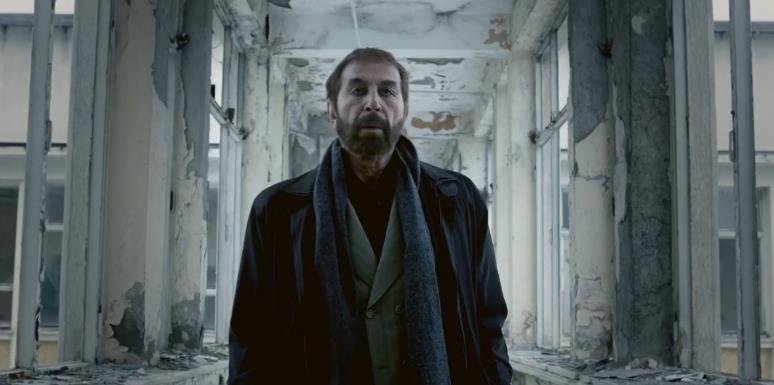
VERDICT: Colombian writer-director Laura Mora's prize-winning road movie is a messy but bighearted love letter to the loveless.
Lucy Virgen, December 7, 2022
Five teenagers’ epic journey from the slums of Medellín to the rain forest of the Cauca, told in a very contemporary style yet reminiscent of Buñuel´s Los Olvidados (1950) and Hector Babenco´s Pixote (1980), won The Kings of the World and Laura Mora, its director, the Golden Shell at the San Sebastian Film Festival and selection as the Colombia's entry for the Academy Awards.
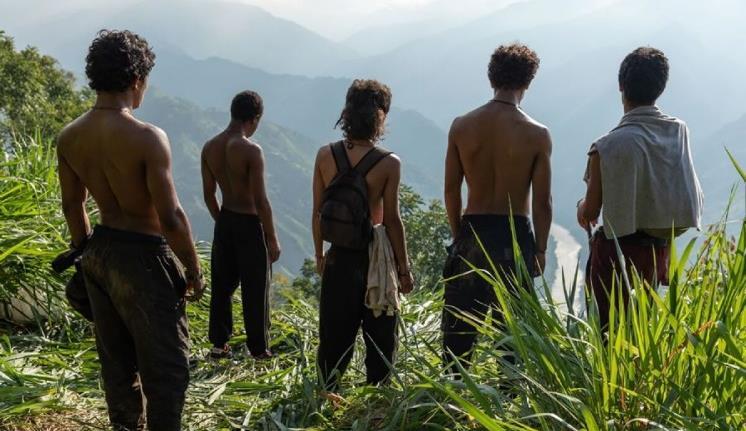
Laura Mora studied cinema in Melbourne, Australia, returning to Colombia for her first feature Antes del fuego (2015), a thriller about the taking of the Palace of Justice by a leftist guerrilla group in Bogotá, 1985. But she really found a niche for her (Continues page 8)
VERDICT: Colombian writer-director Laura Mora's prize-winning road movie is a messy but bighearted love letter to the loveless.

Stephen Dalton, September 28, 2022 Pitched somewhere between gritty neorealism and lyrical magic realism, Colombian director Laura Mora’s second feature Kings of the World (Los Reyes del Mundo) is a melodramatic coming-of-age road movie rich in caustic social commentary, dreamlike visual interludes and sporadic bloody violence. Swept along by the anarchic energy of its young non-professional cast, mostly Medellín street kids playing semi-fictional versions of themselves, the episodic plot feels wildly undisciplined at times, especially the muddled ending. But a charitable viewing might read this as intentional, reinforcing the ever-present sense of barely controlled chaos and edgy survivalist anxiety that defines lawless young lives on the margins.
A more formally adventurous work than Mora’s feature debut Killing Jesus (2017), which landed her a Berlinale prize, Kings of the World has just won the top Golden Shell award at San Sebastian film festival, Full Review

Houman Seyyedi belongs to the generation of Iranian filmmakers who got their start in the early 2000’s, in his case working as an actor in Asghar Farhadi’s seminal film Fireworks Wednesday. A versatile filmmaker with an understanding of the medium’s rule and how to break them, Seyyedi has successfully continued parallel careers as an actor and director, screenwriter and editor.
As a director he got immediately noticed with his visually striking and thematically transgressive early feature 13, the story of a morose 13-year-old boy who falls in with a gang of pushers. Seyyedi turns this material into a gripping, modern story that won the Audience Award when it bowed at Iran’s Fajr Film Festival. Confessions of My Dangerous Mind (about a man who loses his
VERDICT: Talented filmmaker Houman Seyyedi takes a ride on the dark side in Iran's Oscar entry, 'World War III'.
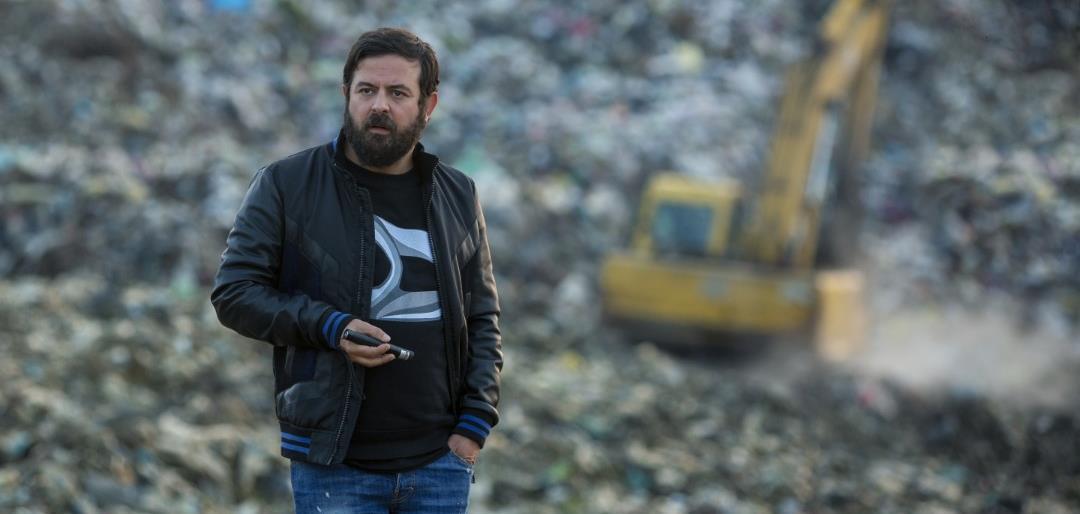
Deborah Young, December 7, 2022 memory) and especially the outrageous 2018 film Sheeple consolidated his importance as a leading new director. Sheeplet old the zany, down-and-dirty tale of a family crisis that undoes a gang of drug dealers who take in orphans from the street. The cast is headed by
(Originally reviewed Sept. 7, 2022)
then-rising star Navid Mohammadzadeh as the loopy younger brother with delusions of grandeur, who Seyyedi spotted early on and cast in his previous films 13 and Sound and Fury. None of these off-beat audience pleasers, however, made waves (Continues page 6)
VERDICT: A manual day laborer is selected to play Hitler in a film, but this stroke of “luck” leads to terrible tragedies on the film set in Houman Seyedi’s expertly crafted, realistic/ metaphoric tale about authoritarian society.
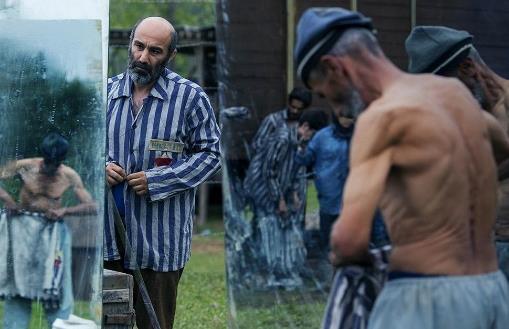
Deborah Young, September 7, 2022
Prolific filmmaker and actor Houman Seyedi has been at the cutting edge of new Iranian cinema for the last ten years with groundbreakers like 13, a tale of teenage rebels, and Sheeple, a grungy actioner about a hoodlum with delusions of grandeur. In World War III (Jang-e Jahari Sevom) his career takes another turn in a searing portrait of poverty in today’s Iran, evolving into a fullfledged metaphor for an unnamed, murderous dictatorship by the end. And since the current state censorship policies have become more stringent than ever, now requiring detailed screenplay
approval before a shooting permit is issued, there is indeed a lot of metaphor involved. One has to admire the skill of Seyedi and coscripters Arian Vazir Daftari and Azad Jafarian in creating an edgeof-seat drama that also packs a big social message, though inevitably some of it gets lost for Western audiences. The winner of Best Film and Best Actor in the Venice Orizzonti section, it should have good chances of some international outreach.
Shakib (Mohsen Tanabandeh) is a poor man who has lost his family, home and roots in fact, his emotional center in an earthquake. Full Review

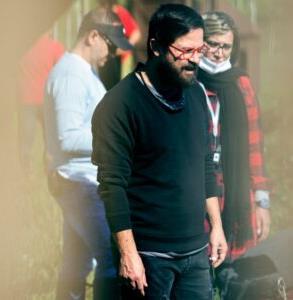
(Continued)
like his sixth feature World War III Bowing at Venice this year in the Horizons section, it won two major awards: best film and best actor for its star Mohsen Tanabandeh. And it has been selected as Iran’s official entry into the Academy’s International Feature Competition. In many ways it is a very different film from the others, reflecting its dark atmosphere that seems to envelope every character. Certainly the story of a poor day laborer on a film set who gets a role playing Hitler, all the while trying to hide his lover on the set, is paradoxical enough and contains Seyyedi’s violent trademark plot twists that you can’t see coming. Though written before the Russian invasion of Ukraine, it has the prophetic quality of a nightmare that repeats itself, in different places and times in history
– By Max Borg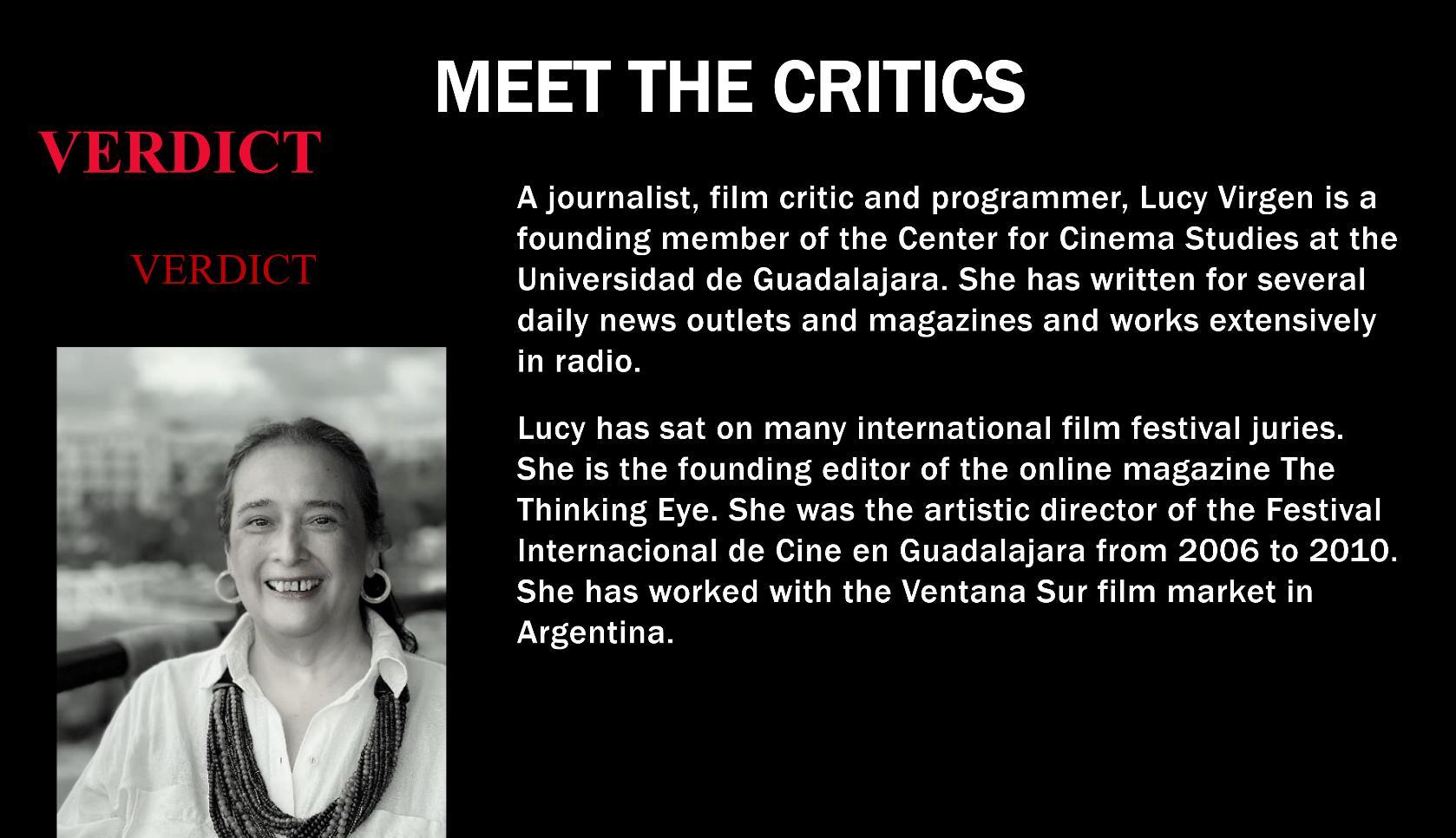

(Continued)
talents in her native Medellín in a film with autobiographical touches, Killing Jesus (2018). In it, a young woman finds herself facing the dilemma between revenge and forgiveness. The spiral of violence, so dear to Hollywood cinema, has here is very skillfully developed with an original perspective: it seems the protagonist not only has to make decisions for herself and her family, but also regarding violence in the country.
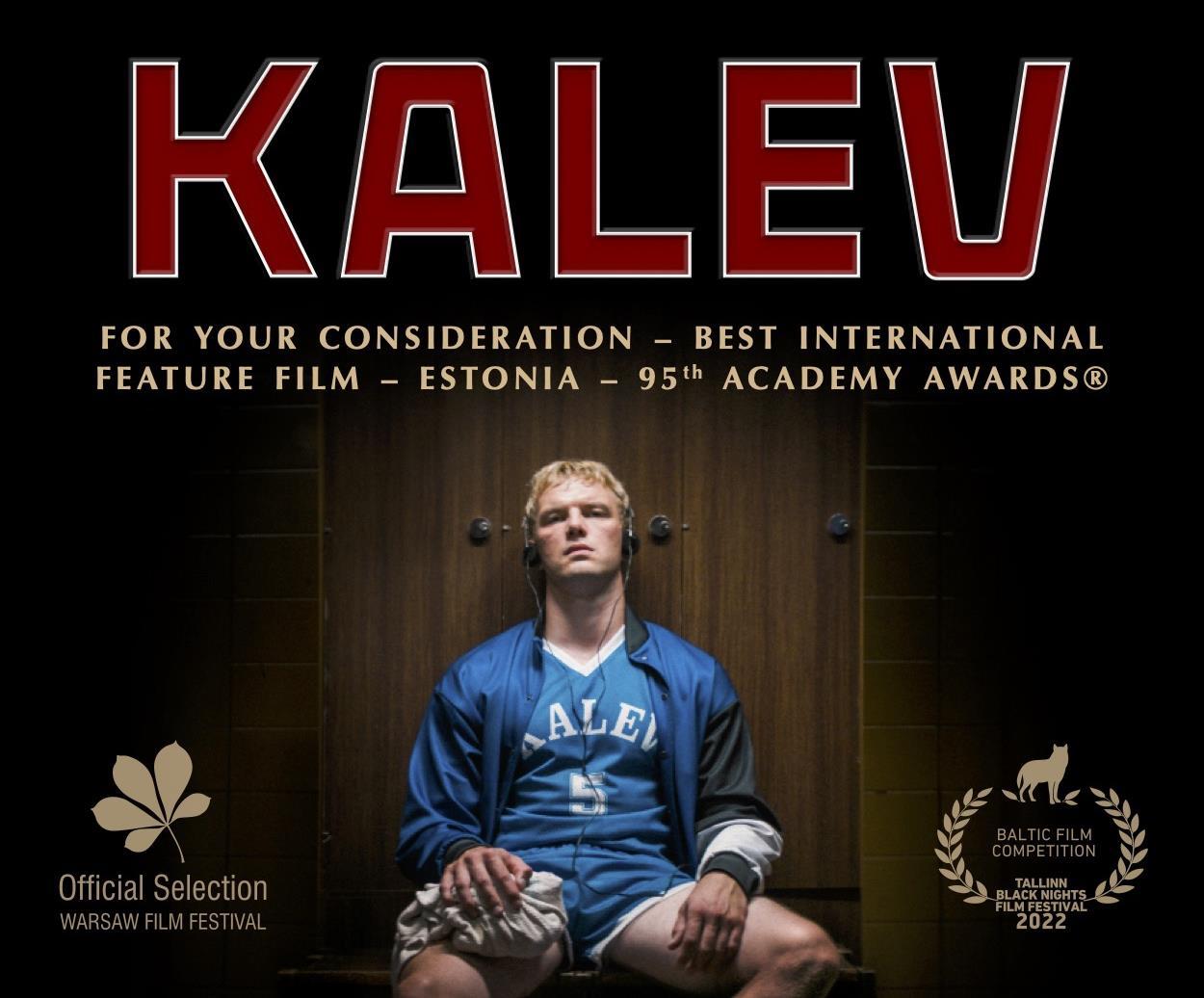

Killing Jesus positioned its director as an emerging talent and increased the prestige of Proimágenes, the state/private film fund that co-finances her projects. In The Kings of the World, with its chaotic narrative –careless in appearance and punk by design the director allows herself dreamlike moments of laughter and beauty in the midst of terror, but also the scarcest commodity in Latin America: hope.
Full Profile
(Continuado)
(traducido por Lucy Virgen)


Los Reyes del Mundo el segundo largometraje de la directora colombiana Laura Mora cae en algún lugar entre el neorrealismo severo y el realismo mágico lírico, es una road movie melodramática rica en comentarios sociales cáusticos, interludios visuales oníricos y esporádica violencia sangrienta.

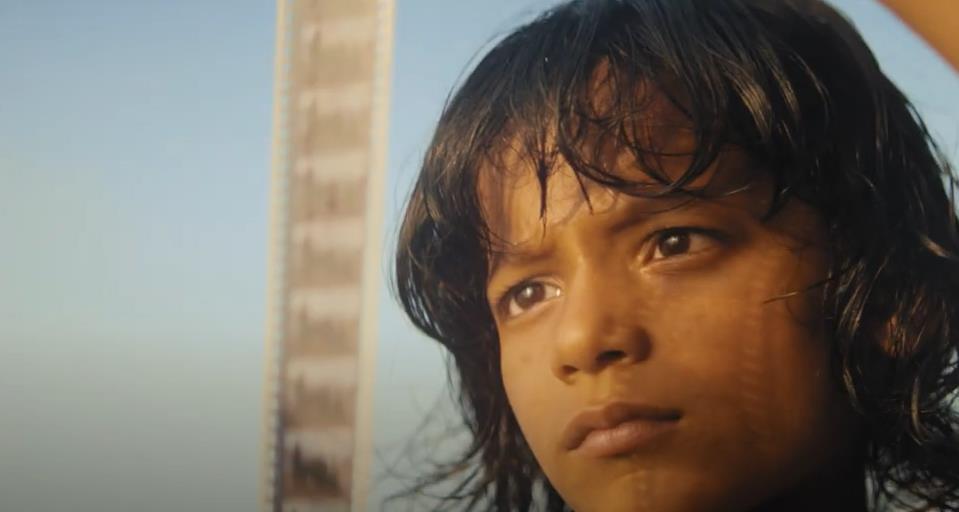

Arrastrada por la energía anárquica de su joven elenco no profesional, en su mayoría niños de la calle de Medellín que interpretan versiones medio ficcionalizadas de sí mismos, la trama episódica se siente salvajemente indisciplinada a momentos, Revision Completa

: Laura Mora, entrega con Los reyes del mundo –primera colombiana en ganar la Concha de oro– una épica caótica y onírica que es ahora la candidata colombiana a los Oscares.
Lucy Virgen, December 7, 2022
El épico recorrido de un cinco adolescentes desde los barrios bajos de Medellín, hasta la selva pluvial del Cauca con reminiscencias desde Los Olvidados de Buñuel (1950) hasta Pixote de Héctor Babenco (1980) pero con un estilo muy contemporáneo dio Los reyes del mundo y a Laura Mora, su directora la Concha de oro del Festival de San Sebastián, y ahora la representación colombiana en los Óscares.
(Continúa página 10)

primer largometraje Antes del fuego (2015), un thriller sobre la toma del Palacio de Justicia en 1985 fue filmado en Bogotá. Pero Mora encuentra el nicho para su talento en su natal Medellín, con una película con toques autobiográficos Matar a Jesús (2018). En ella una joven se encuentra con el dilema de la venganza y el perdón. La espiral de venganza, tan visitada en el cine norteamericano, tienen aquí un desarrollo muy diestro y una perspectiva original; parece que la protagonista no solo tiene que decidir por ella y su familia sino
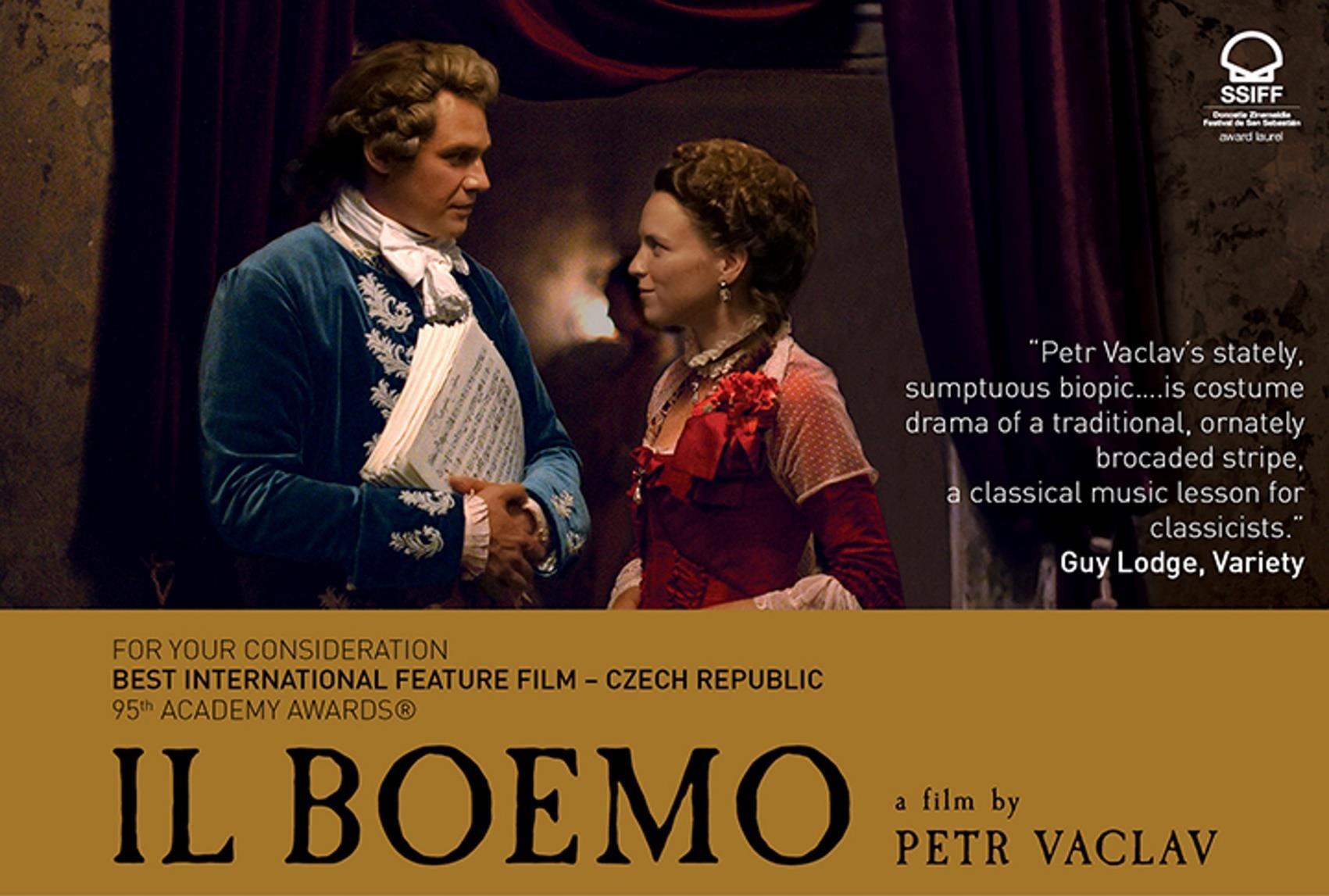
por la violencia del país Matar a Jesús situó a su directora como un talentos emergentes aumentó el prestigio de Proimágenes, el fondo de cine colaborador de sus proyectos.

Los reyes del mundo, con una narrativa caótica, descuidada en
apariencia, punk en el diseño, la directora se permite momentos oníricos, risas, belleza en momentos terribles y también el básico más difícil de encontrar en América Latina: la esperanza. Revision Completa
in another language. This is also why the film has three editors: two of them are my usual collaborators, who are based in France; and since none of us speaks Italian that well, I decided I needed a native speaker to figure out the flow of all the dialogue scenes set in Italy.
TFV: Well, speaking as someone who grew up in Italy, I really enjoyed how everyone had the right dialect, depending on where the scene takes place.
VERDICT: The Czech director discusses the challenges of making the multilingual biopic 'Il Boemo’.
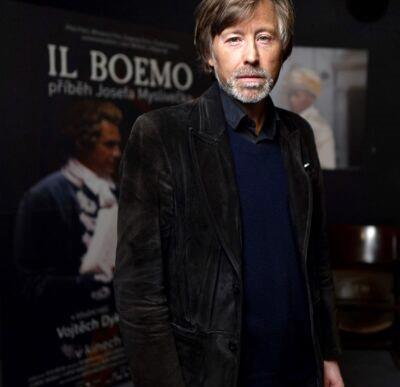
THE FILM VERDICT: Why tell this story in particular?
PETR VACLAV: A filmmaker’s motivation is always a bit mysterious; you need more than one reason. One of them was Josef Myslivecek’s life story. I also wanted to make a period film, because I’ve always been fascinated by the aesthetics of the 18th century. I also wanted to make a film in Italy, and a film about music. And since I live in France, I was also interested in how people go abroad for the sake of their art. Through Myslivecek’s story, I could combine all those elements.
TFV: At what point did you decide to have most of the film’s dialogue in Italian?
PV: From the beginning. It never made sense to me to make the film entirely in Czech, or even in English as some suggested, because the Italian context is an important part of the story. I mean, how would it sound with English or American actors playing Italian characters? I think we’re at a point in time where we should try to be as truthful and authentic as possible. I wonder if ten years from now it will even be possible to make a movie about a certain culture
PV: That was very important to me. I don’t have an ear for those nuances, so I instructed my casting director to find actors who were from those areas. I didn’t want people who could put on the accent, because that would still sound fake, in my experience. The one exception is Barbara Ronchi, who is from Rome. She worked with a dialect coach to acquire a neutral accent, and within the film’s world you can imagine she was raised in a convent and learned the language there. For the scenes set in Naples, once the script was finished, I sent it to the actors so they could make revisions in terms of the dialect: some speak only Neapolitan, while others chose to do a mixture, because of the character they’re playing. This is also reflected in Myslivecek’s way of speaking: when he moves to Naples, he picks up some of the local terms.
TFV: Music is an important part of the film, as you’ve said. How did you work with the musicians?
PV: When I first started thinking about the project, I didn’t know how the music would sound, because the only recordings we had of Myslivecek’s operas were done in the 1970s and ‘80s in Czechoslovakia, and it was a disaster. Myslivecek’s music was tailormade for the best performers of the time, and the singers on those recordings didn’t really have the skills required. I even thought at first that maybe he wasn’t such a great composer, after all. Then, when I met the members of Collegium 1704, they explained to me that Myslivecek’s music is easy to destroy in
(Continued)
performance, because the orchestral parts are actually very simple. So, we started researching it together, and then in 2013 they did a performance in Prague, which I filmed for a documentary, and that’s when we really started to understand how great that music is.
TFV: How complicated was it to finance such an ambitious film?


PV: It was complicated in general. When I first started working on the script, I wanted to make the film with Italian producers, but they were not interested because I’m not well known and neither is the story, and they don’t even know how to pronounce Myslivecek’s name. I then tried to set it up in France, but that was not an option because of the
Italian language, and I would have had to cast French actors. My producer then suggested we work on other films, to improve our standing within the Czech film industry, and eventually we got to the point where one TV network agreed to provide someof the financing, which helped us convince other production companies to do the same.

TFV: Did the pandemic influence the actual shoot?
PV: The pandemic was a concern because our schedule wasn’t very flexible with the actors’ availability. In the end, only one actress tested positive, and I had to get a double for the scene at the opera. I filmed her from a distance, so you shouldn’t be able to tell there was a switch.
– By Max Borg`


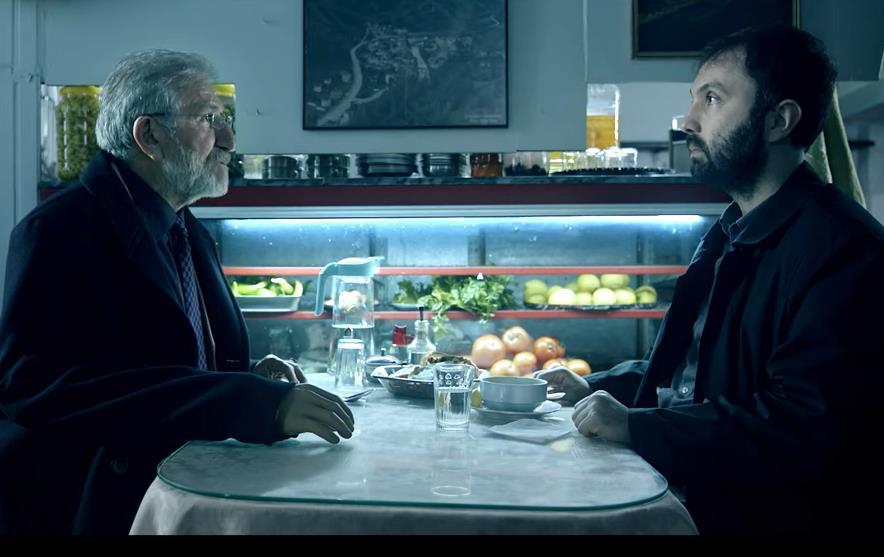

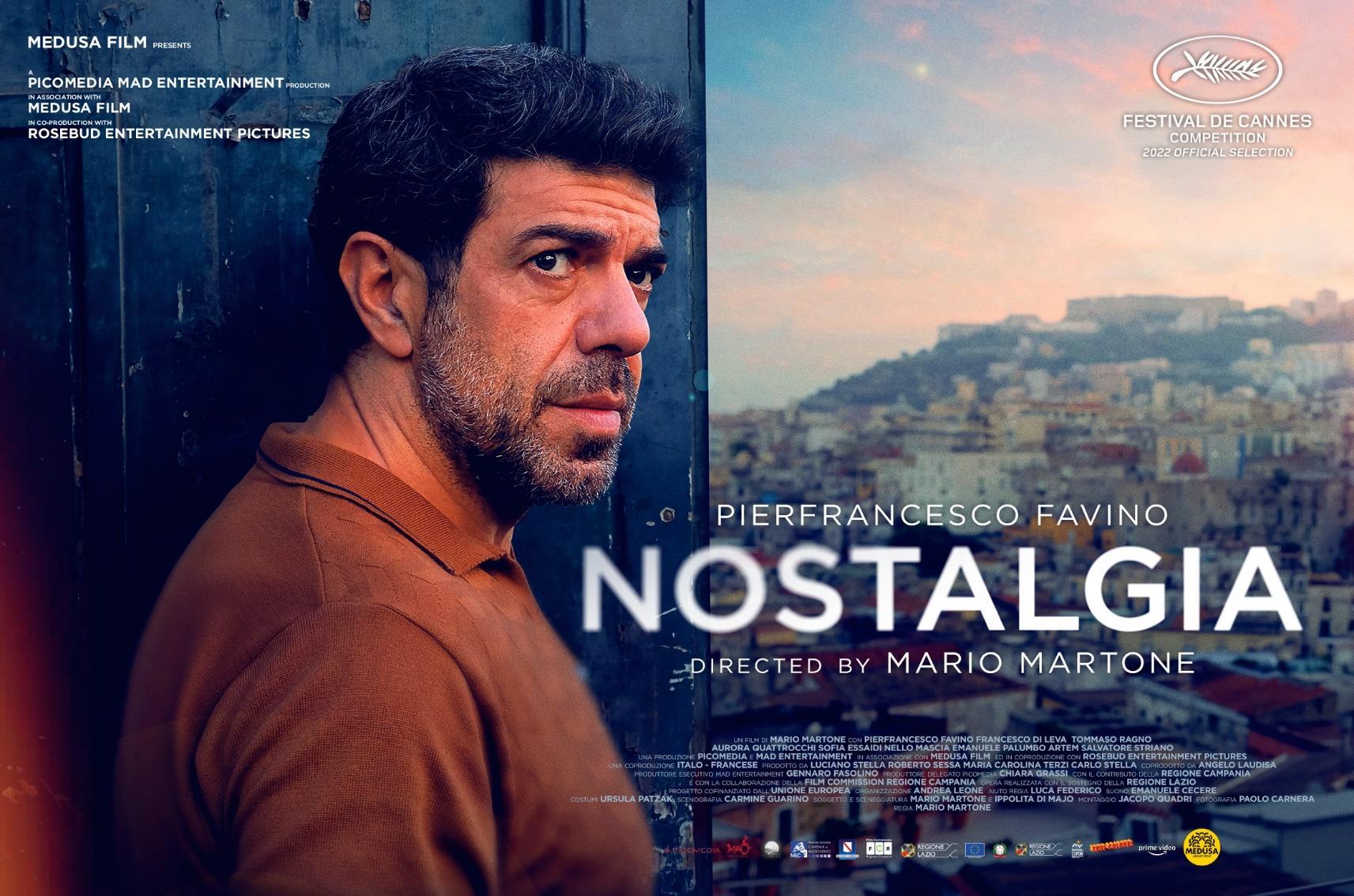

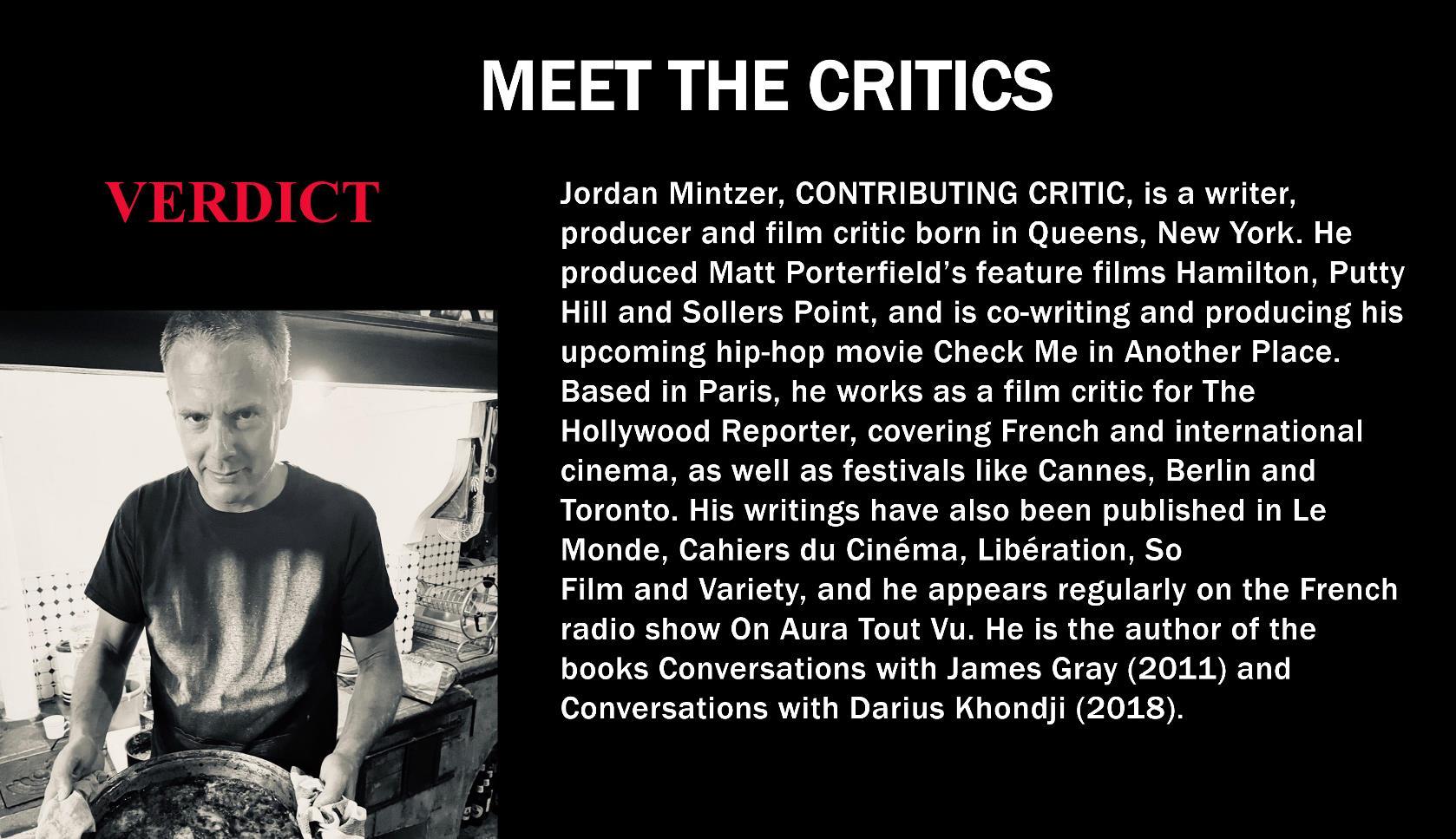
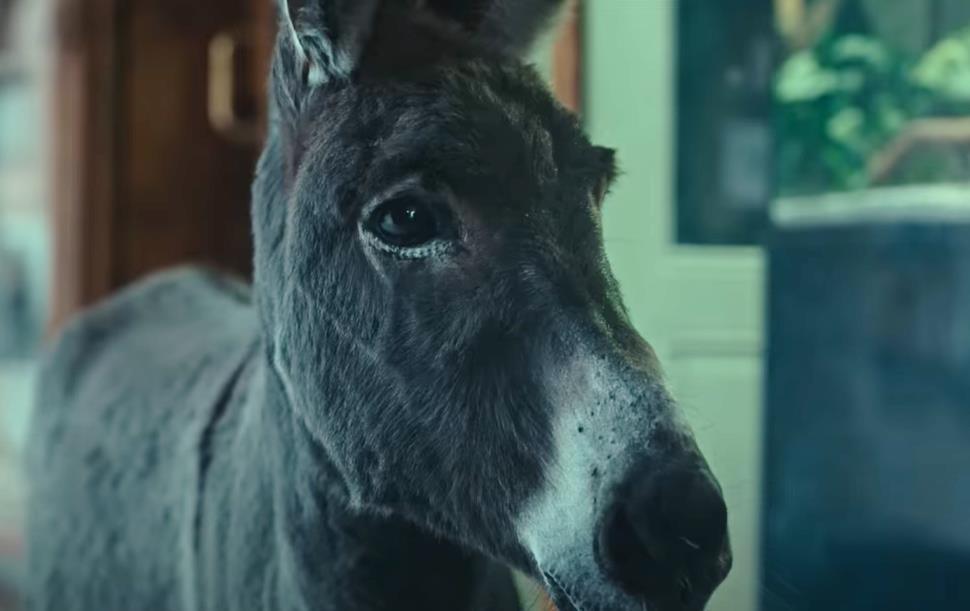




: El realismo mágico se encuentra con la degradación ambiental en un austero relato costarricense sobre la resistencia de un viudo contra los constructores inescrupulosos.
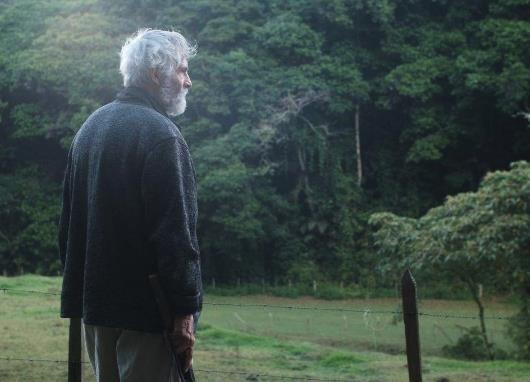
VERDICT: Estonia's official Oscar submission finds timely modern echoes in a true sporting saga that took place during the dying days of Russian occupation. Stephen Dalton, December 2, 2022



Patricia Boero, December 6, 2022
(Continúa en la página 8)

A true story from recent history that neatly plays into plucky underdog sports-drama tropes, Kalev revisits a politically charged basketball contest that became entangled in the messy collapse of the Soviet Union 30 years ago. A competent but unremarkable effort by first-time feature director Ove Musting, Estonia’s official submission to the Academy Awards is mostly notable as a depressingly timely critique of Russia’s perennially abusive, bullying, colonialist attitude towards neighbouring nations: for the Baltic states in 1991, read Ukraine in 2022. Full Review

VERDICT: Mario Martone directs another romantic terror tour through baroque, Camorraridden Naples, where actor Pierfrancesco Favino has a rendezvous with fate.
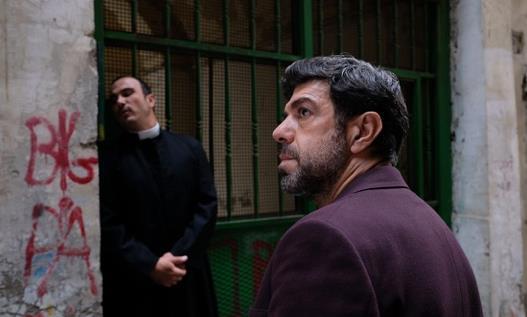
Deborah Young May 25th, 2022 In Nostalgia, a man who has been away from his native city for 40 years returns to visit his aged mother and finds himself bewitched, unable to leave, even though he knows his life is in mortal danger. Abstract as it sounds, the peril of losing oneself in nostalgia for Naples is vividly and persuasively recreated by Pierfrancesco Favino, one of Italy’s finest actors, in a lush film adaptation of Ermanno Rea’s novel. Shot with feeling for its subject and without the hard theatrical-intellectual veneer that keeps audiences at arm’s length from many of Mario Martone’s films, it ranks as one of the prolific director’s most accessible works
On the other hand, the story seems tailor-made for Martone, who has moodily explored the cults and cultures of his native city at least as obsessively as his hero, in films like Death of a Neapolitan Mathematician, Theater of War and his recent The King of Laughter. Full Review
VERDICT: The busy Italian filmmaker, who is concurrently a veteran stage and opera director, describes the genesis of Italy’s international Oscar submission.
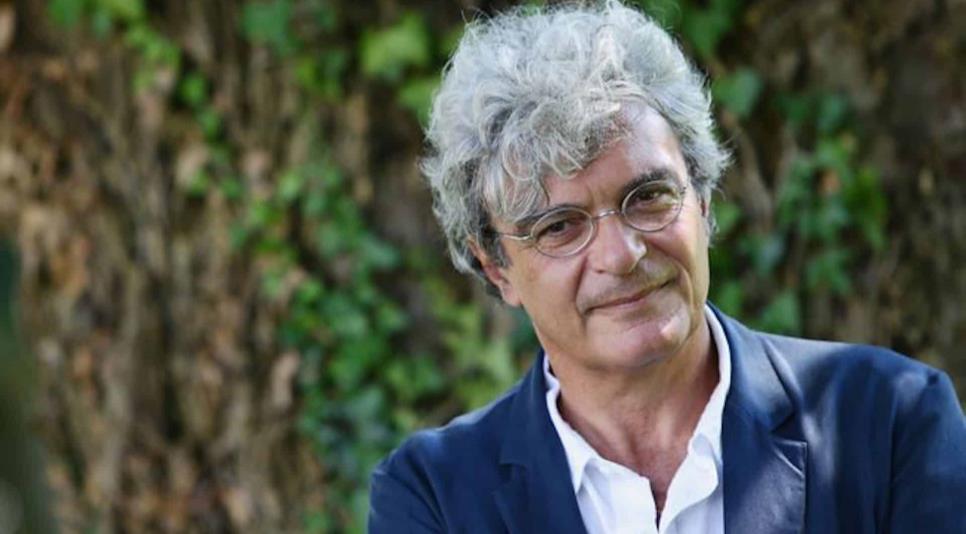
Deborah Young
THE FILM VERDICT: You worked a great deal in theater before starting to direct movies in 1992. Why do you make films? What do they give you?
MARIO MARTONE: In reality, cinema is the engine powering all my work. I was a boy in the 1980’s when I started directing plays and mine was a theater full of cinema. I’m not an actor. On stage, the director is more on the side because there are actors on stage. In the movies, I feel fully involved.
TFV: It’s been an exceptional year for you: The King of Laughter in competition at Venice, then you immediately shot Nostalgia, which was invited to compete at Cannes, just as you were starting to rehearse Rigoletto at la Scala in Milan.
MM: One thing nourishes another. It doesn’t take away energy; it multiplies it. I’m so
happy about Nostalgia because it touches viewers’ hearts. The star Pierfrancesco Favino and I experienced a profound emotion making it, and we transmitted this feeling to the audience there’s nothing better.
TFV: Nostalgia is about a man suspended between two places [Naples and North Africa] and two religions [Catholicism and Islam]. What about you?
MM: I, too, often feel like a stranger in my own land. The main character of my first film, Death of a Neapolitan Mathematician, was also a foreigner in his country. I’m Neapolitan, yet something of an outsider. Maybe that’s why I felt so close to my film L’amore molesto [Troubling Love] based on the novel by Elena Ferrante who is a Neapolitan, yet an
VERDICT: A complex thriller based on a true sexual abuse scandal involving Chilean politicians, priests, businessmen and homeless children, where nobody is wholly innocent or guilty.
Patricia Boero, September 14, 2022 Winner of the Best Screenplay Award in the Venice Film Festival’s Orizzonti section, Fernando Guzzoni’s film Blanquita follows the unraveling of a notorious sexual abuse trial that shocked Chile in 2003 and involved powerful businessmen and politicians.
Guzzoni’s earlier work which he wrote and directed, Dog Flesh (2012) and Jesus (2016), earned him recognition and a place among the outstanding Chilean films that denounce abuse and discrimination, such as Pablo Larrain’s The Club (2015) and Sebastian Lelios’ A Fantastic Woman (Academy Award for Best International Feature Film 2018). News reports and documentaries have exposed other abuses, such as those that occurred in a German Nazi enclave known as Colonia Dignidad and, in the present day, massive street protests have called for an end to violence against women. In this angry climate, Guzzoni updated and dramatized the 2003 story to delve into the characters’ inner lives. His nuanced script is never exploitative, and follows the hatching of the “Spiniak case,” a show trial that dominated Chile’s media and had unforeseen consequences.

The title character Blanquita (Laura Lopez, convincing in her debut role) is an abused teenager seeking justice, not just for herself but for her best friend, the damaged Carlos (Ariel Grandon), Full Review
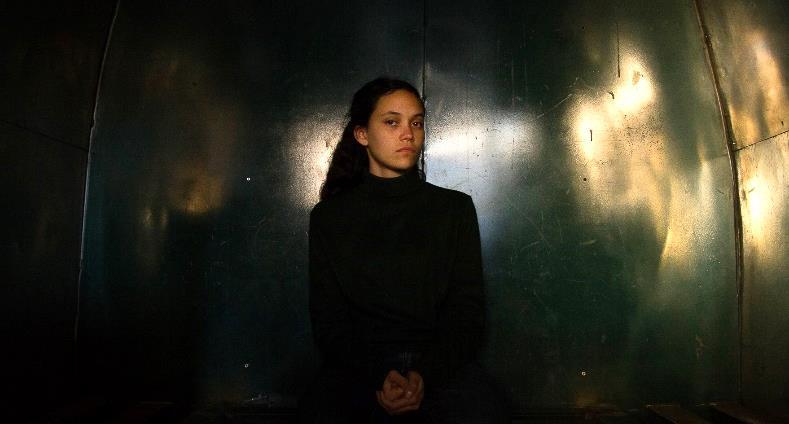
VERDICT: A grieving family struggle to move beyond tragedy in Martijn de Jong's poetically filmed debut feature, the official Dutch submission to the Oscars.
Stephen Dalton, November 9, 2022
A young family struggle to cope with shattering loss in Narcosis, a poetically shot and emotionally rich debut feature from Dutch director Martijn de Jong, which the Netherlands recently submitted to the
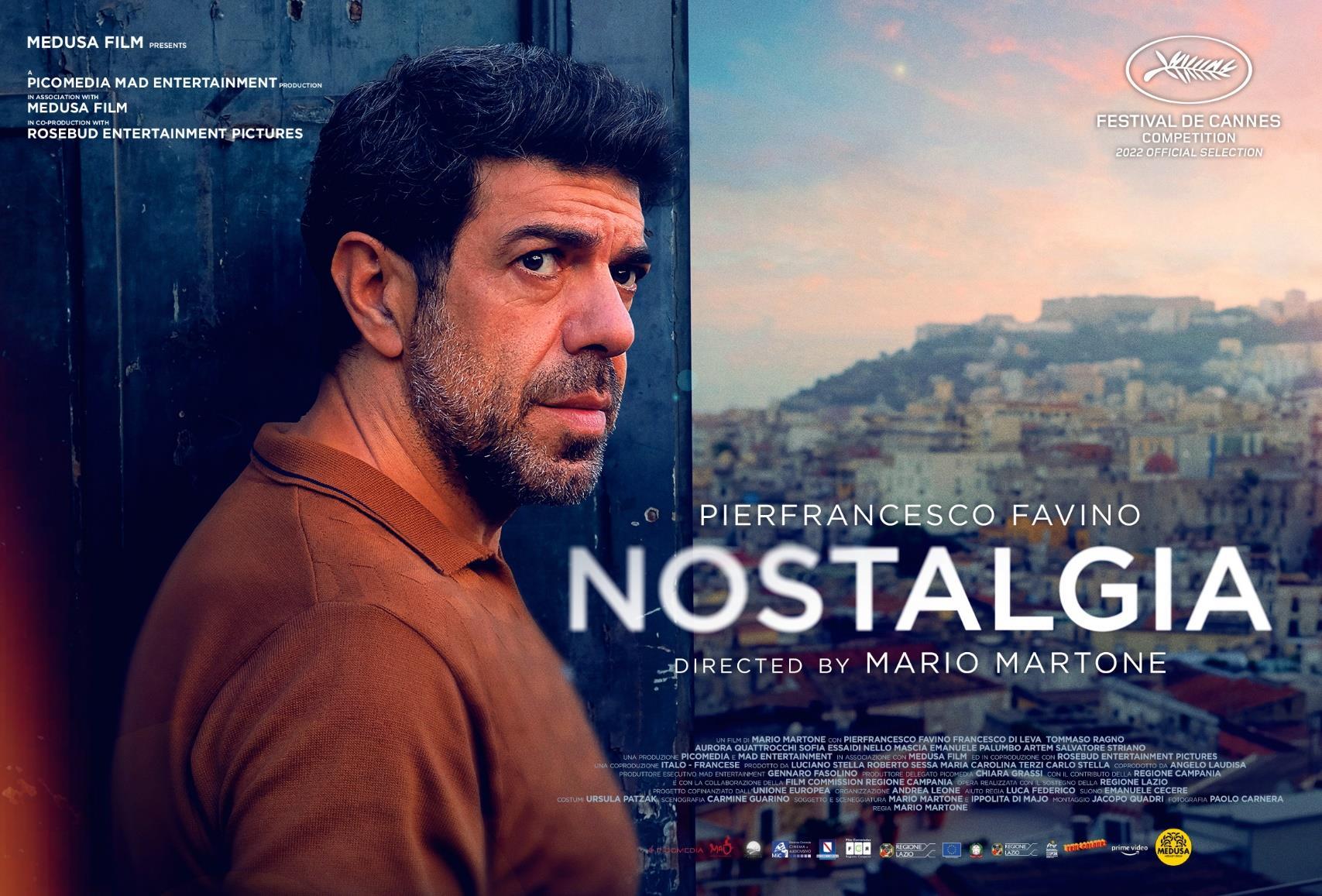
Academy Awards as its official Best International Feature contender. Serving both a literal and symbolic meaning, the title alludes to nitrogen narcosis, variations in air pressure which can cause numbed senses, hallucination, disorientation and extreme anxiety in deep-water divers. Already playing in domestic cinemas, this handsome domestic tragedy makes its international festival premiere in Thessaloniki this week. Strong performances, universal subject matter and potential Oscar buzz should boost art-house interest and theatrical potential in wider markets.
In an extensive pre-credits sequence that plays more like an opening act than a prologue, de Jong and his screenwriter wife Laura van Dijk sketch out an idyllic family set-up. Angular beauty Thekla Reuten (Lost, In Bruges) stars as Merel, a 40-ish mother married to fun-loving, thrill-seeking charmer John (Fedja van Huêt).
Full Review

THE FILM VERDICT: You worked on Ajoomma for six years. How does it feel to finally be able to share it with an audience?

HE SHUMING: It’s been great. I started working on the script during my time at the AFI. Being an independent filmmaker in Singapore is not easy, you spend a lot of time developing the project, while also having to make a living. We finally managed to shoot it in January of this year. Seeing different reactions in different places has been incredible I just got back from Manila. But certain scenes get the same reaction almost everywhere, so there is a universal quality to the film.
TFV: It’s also very specific in some regards. Given the Korean context, how big of a deal was it to have the world premiere in Busan?
HS: A little nerve-wracking, to be honest. I wasn’t sure how the Korean audience was going to react, but they were very generous: we had two sold-out screenings, and the Q&As were great. I enjoyed seeing the Korean audience relate to a Singaporean Auntie and realize there’s a similar dynamic between Korean mothers and their children.
TFV: Is the similarity why you decided to use a Korean title?
HS: Yes. It was originally going to be Auntie, the Singaporean English word for an older woman. I quickly realized Ajoomma, which means the same in Korean, was more suitable for the film’s tone and the use of Korean drama within the story. And it’s a very catchy title, especially in Korea.
TFV: Does it help that your film is coming out at a time when Korean culture has more mainstream appeal on a global level?
HS: Yes, I think so. You know, when I started working on the script, it was based on my own mother, who is a huge fan of Korean dramas. My producer kept saying it was a fad that would die out, whereas I thought it would get even bigger. And there’s a whole Korean wave now, with movies and pop music. I’m a huge admirer of Korean cinema and getting to work there was a huge opportunity. I learned a lot, and I understand why their film industry is so successful.

VERDICT: A powerful, accessible blend of animation and archive that bears witness to the Armenian genocide through the eyes of survivor and Hollywood silent star Aurora Mardiganian.


Carmen Gray, November 9, 2022 Screening at IDFA in the Best of Fests section, Armenian director Inna Sahakyan’s Aurora’s Sunrise is intended to guard against the erasure of history. It recreates the remarkable life of Armenian genocide survivor and sometime Hollywood actress Arshaluys Mardigian (later known by her American stage-name of Aurora Mardiganian) through a blend of animation, archival interviews with an elderly but sprightly Aurora (who died in 1994 in Los Angeles), and excerpts of rediscovered black-and-white fragments of the 1919 silent film she starred in, Auction of Souls, which was based on her own experiences in Armenia, and was for some time considered lost. The United States only recognised the Armenian genocide in 2021, joining the 33 other nations to have done so, while Turkey still denies it. This fact, set out in an end-title, lends additional gravity to Aurora’s testimony of atrocities, and the importance of the film as a vehicle to circulate awareness. An ambitious project with glossy, high production values, it is Armenia’s official Oscar entry. The biographical tale is told chronologically and rather conventionally through animation with a naturalistic palate that is intricately drawn but hardly innovative, making this bleak chapter of history as accessible as possible, while not shying away from depicting the reality of the genocide’s more graphic horrors.
Full Review

VERDICT: A solid though cautious, slow-burn lossof innocence tale wrapped around the struggle between State versus Religion set (but not shot) in Cairo and designed for Western consumption.

Jay Weissberg, May 20, 2022
When Tarik Saleh’s muscular noir The Nile Hilton Incident took home Sundance’s Grand Jury Prize in 2017, it generated major buzz both in the West and in its nominal setting, Egypt. In the U.S. and Europe it was seen as a stark critique of the increasing grip of the police state in Egypt, made with dark incremental vigor, and it achieved a surprising success. Along the Nile the reaction was more complex given that the Swedish-Egyptian director was forbidden to shoot there and the film was unsurprisingly banned. Those who were able to see the movie – it wasn’t so difficult to download – felt it didn’t go far enough, and were especially critical of its clear pitch to Western audiences who wouldn’t get that milieu, actors and accents weren’t Egyptian, notwithstanding the ostensible location. Boy From Heaven, about a religious studies student unwillingly recruited by the Secret Service, will receive similar complaints in Egypt but will also be less fêted in the West, where audiences will feel unfamiliar with the depth of the powerplays between State and Religion. Full Review

(traducido por Lucy Virgen)

Costa Rica se ha vuelto cada vez más visible en el circuito de festivales, con varios cortos, incluido el de este año Night Light de Kim Torres, competidor por la Palma de Oro y el largometraje Domingo y la niebla que se estrena en Cannes en Un Certain Regard. Es el segundo largometraje de Ariel Escalante Meza (después de El sonido de las cosas en 2016). Escalante ha trabajado como editor en cuatro largometrajes latinoamericanos, entre ellos Ceniza negra, de la costarricense Sofía Quirós (Cannes 2019).
Domingo representante de Costa Rica al Premio de la Academia en lengua no inglesa debería encontrar su más cálida recepción en festivales y cines de arte, aunque una parte de los fanáticos del streaming en América Latina se está ya impacientando con el realismo mágico y busca más dinamismo y agilidad en sus opciones cinematográficas.

Domingo, el personaje principal de la película, es un hombre complejo y atormentado. Ante la expropiación de su casa por la construcción de una carretera, se niega obstinadamente a vender su terreno a pesar de las Revision Completa
VERDICT: In Costa Rica's Oscar entry, magic realism meets environmental degradation in the austere tale of a widower’s resistance against ruthless developers.
Patricia Boero, December 6, 2022 (Originally reviewed May 25, 2022)
Costa Rica has become increasingly visible on the festival circuit, with several shorts, including this year’s Night Light by Kim Torres, competing for the Palme d’Or and the feature film Domingo and Mist premiering at Cannes in Un Certain Regard. It is the second feature by Ariel Escalante Meza (after The Sound of Things in 2016), who has worked as editor in four Latin American feature films, including Costa Rican Sofia Quirós’ Black Ash (Ceniza negra, Cannes 2019). Domingo should find its warmest welcome at film festivals and art house cinemas, though a certain portion of Latin American streaming fans are becoming impatient with magic realism and seek more dynamism and faster pacing in their movie preferences.
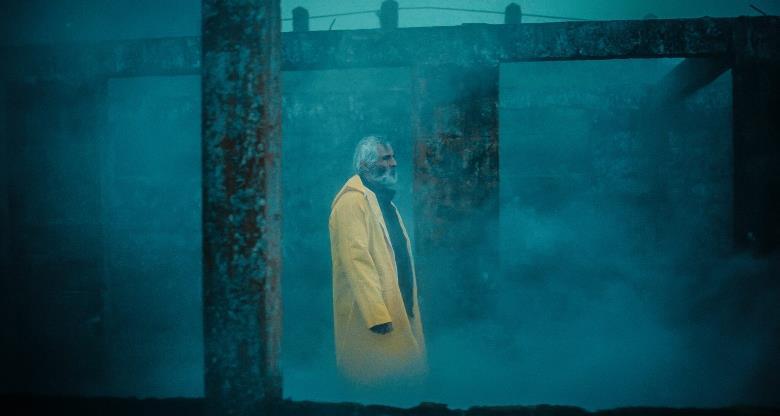
Domingo, the film’s main character, is a complex, tormented man. Facing expropriation of his home for the construction of a highway, Full Review
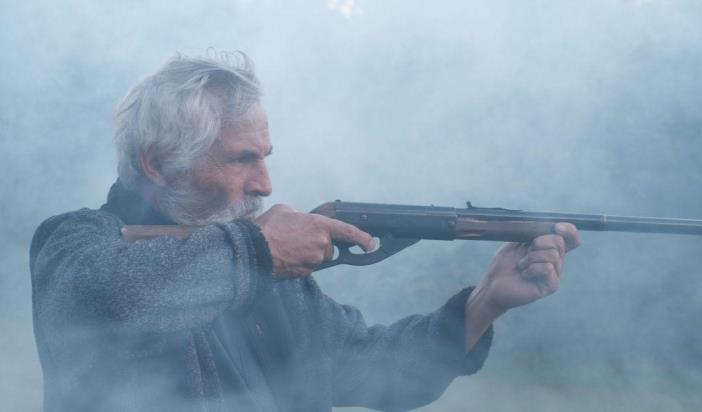


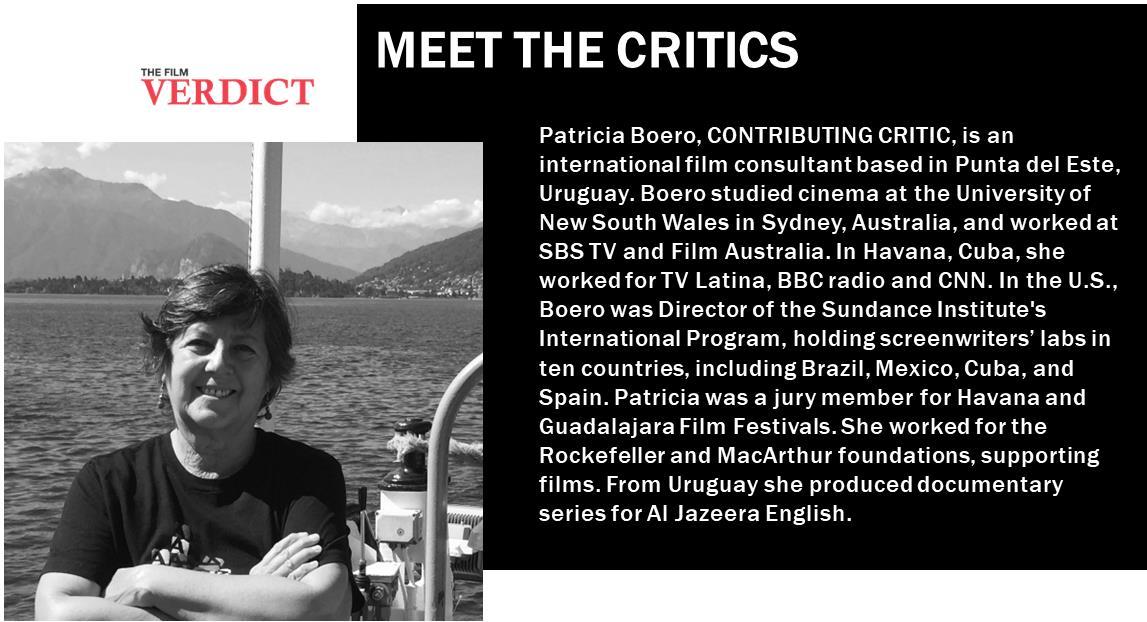
In Part I of this series, we looked at the values of the Academy itself within the context of today’s US$2.4 trillion global Media & Entertainment industry. Those values highlight the origins of Hollywood as a creative, technical and commercial collective enterprise with a business model based squarely in cinema and public perception of the “movies”.
The Academy has grown from 36 founding members into a global collective of more than 10,000.
Over the course of 95 years, the Academy has quietly evolved in lock-step with the emergence of television, and now the internet, to promote the motion picture as the cornerstone of the global Media & Entertainment industry, with the box office as its legacy point of reference. In doing so, the Academy itself has amassed an impressive war chest with total assets of US$1.4 billion earned not from the box office receipts of its members’ creative product (per se), but from the rights to distribute its annual Academy Awards ceremony on television.
No other global cultural event has attracted more attention, and thus money, than the Academy’s annual Oscar’s ceremony.
In the lead up to the 95th annual Academy Awards, let’s take a brief look at several figures behind broadcasting the Oscars to a global audience and the effort to be this years’ featured attraction.

US$1,037,887,000 (Tax Free)
Although not disclosed in detail, the Walt Disney Company, through ABC and Buena Vista International, pays the Academy a combination of license fees and royalties (derived from advertising revenues) to broadcast the Oscars to the world.


The Academy reports revenues from these performance obligations in its audited Consolidated Financial Statements (as of end of June each year) as US$119.9 million in 2021, US$129.1 million in 2022.
In total, leading up the 100th anniversary of the Academy
The Academy itself once boasted over 1 billion international viewers and continues to assert hundreds of millions unofficially. The claim seems founded in an Associated Press article from 1985 in which AP Journalist Richard De Atley wrote that the 57th Academy Awards would be broadcast “live or on tape to an estimated audience of 1 billion in 77 countries, including first-time viewers in China and Poland.”
Airing annually to television audiences since 1953, this live, US “prime time” event officially captured the time of over 55 million people at its viewership height in 1998, according to rating agency figures, nearly 20% of the US population at the time.
According to data from Statista, the average costs of 30second commercial during last year’s Academy Awards was US$2.2 million with 60 advertising slots available.
According to the BBC in 2016, Hollywood studios spent as much as US$10 million on promoting a film for Oscar contention in highly sophisticated For Your Consideration campaigns, with a top end industry estimate at US$500 million across all nominees. In 2019 it was reported that the campaign for A Star is Born was nearly US$20 million, which was not unusual across its competition.
“In partnership with the Media C-Suite, the digital native platform for news & insight tailored to executives, entrepreneurs and investors in the Media & Entertainment industry, The Film Verdict presents a series entitled, Oscar Capital, exploring the financial impact of the Academy Awards on film, film-makers and the box office.” - The Film Verdict (TFV)Awards, Disney is poised to pay the US tax-exempt Academy not less than US$1 billion between 2021 and 2028, the year its licence through ABC expires.
TFV: It is often said that mainstream Hollywood films don’t know what to do with actresses past a certain age. What’s the situation like in Singapore?

HS: Well, my lead actress Hong Huifang has mainly done supporting roles on TV, and in a couple of films. When she first came in to audition, she assumed it was just another Auntie role, and that the son would be the protagonist. Then she got the whole script and was surprised to find out she was going to play the lead, which I found amusing since the character’s name is in the title. Now she’s hoping to be able to expand to other Chinese-speaking markets
TFV: There was a recent article in Variety suggesting the selection criteria for the International Feature Film submissions should change, with one argument being that most people don’t bother watching films from certain countries. How do you respond to that?
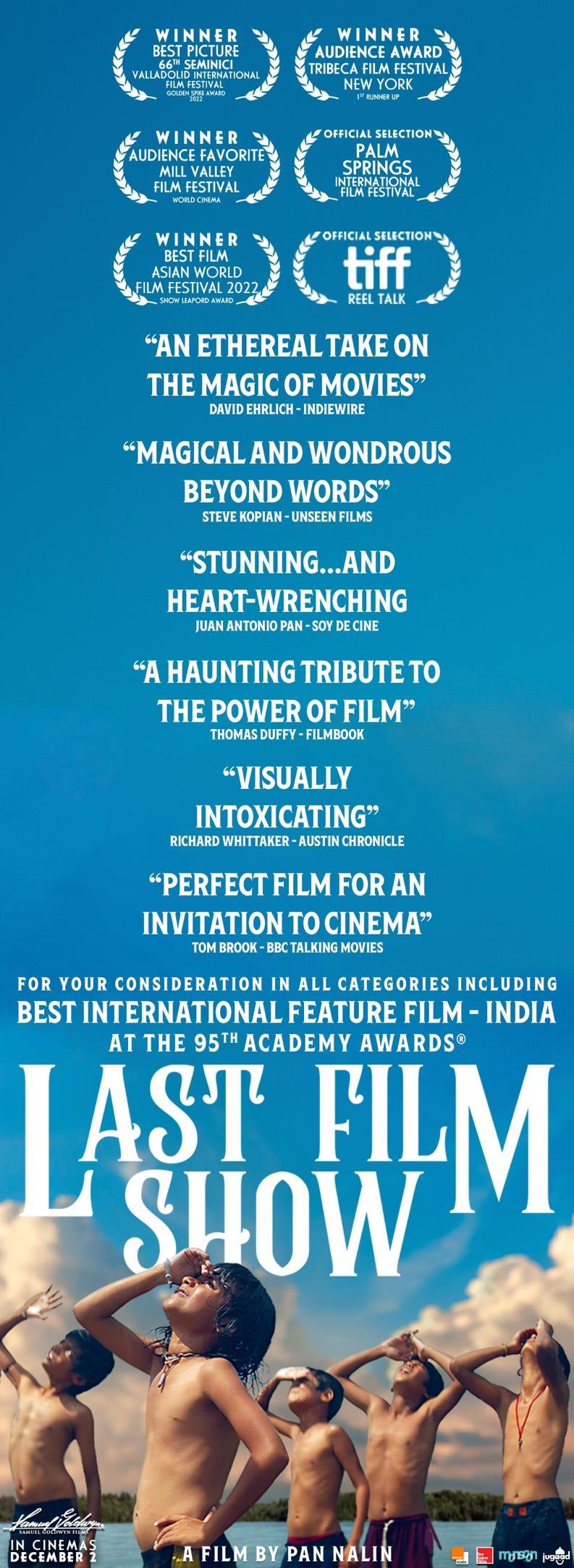
HS: Now that I’m actually involved, it’s crazy to see how much effort goes into the Oscars campaign. You can clearly tell some territories have a stronger presence in terms of publicity, by looking at the ad space in the trades. Still, I think the current system, while having room for improvement, is a good one because it brings attention to films that wouldn’t be on people’s radar otherwise.
TFV: You divide your time between Singapore and Los Angeles. Have there been noticeably different reactions to the film on different ends of the Ocean?
HS: Surprisingly, no. Specific emotional responses may vary, but overall, it’s been the same in that people come up to me and tell me how it makes them think about their relationship with their mother. Of course, part of the conversation in L.A. has been about remaking the film for American audiences, and the same happened in the Philippines. Full interview
outsider in her city. In Ermanno Rea’s novel on which Nostalgia is based, I felt similar chords resonate inside me.
TFV: In Nostalgia, the main character played by Favino enters the world of Naples, only to find himself in an Exterminating Angel situation in which he can no longer leave the place; an allpowerful force stops him, as though he were entrapped in a Greek myth with his childhood friend Orestes.

MM: It’s very true he’s entrapped and there’s no rational explanation for what prevents him from leaving the city. Once his mother dies, there’s no reason he should stay on those poor back… (Continues page 13)
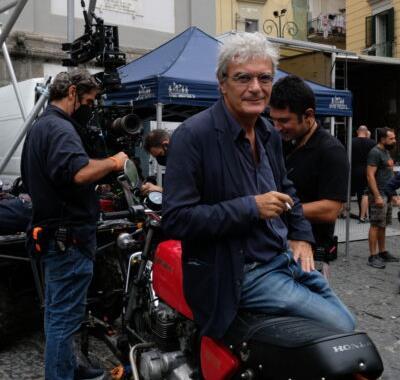
(Continued)
streets. We see how he lives in Cairo – his rich house, his modern wife who loves him – so what is this nostalgia? When I read the novel, I , two labyrinths on the screen. A real one, in the closed enclave of the Rione Sanità neighborhood where the film was entirely shot. Then there was the inner labyrinth.
It was a great thing to work with an extraordinary actor like Pierfrancesco Favino. His character isn’t a hero. There’s nothing macho about him, or the way he takes care of his mother… So in order to describe nostalgia, it was necessary to describe his interiority on screen.
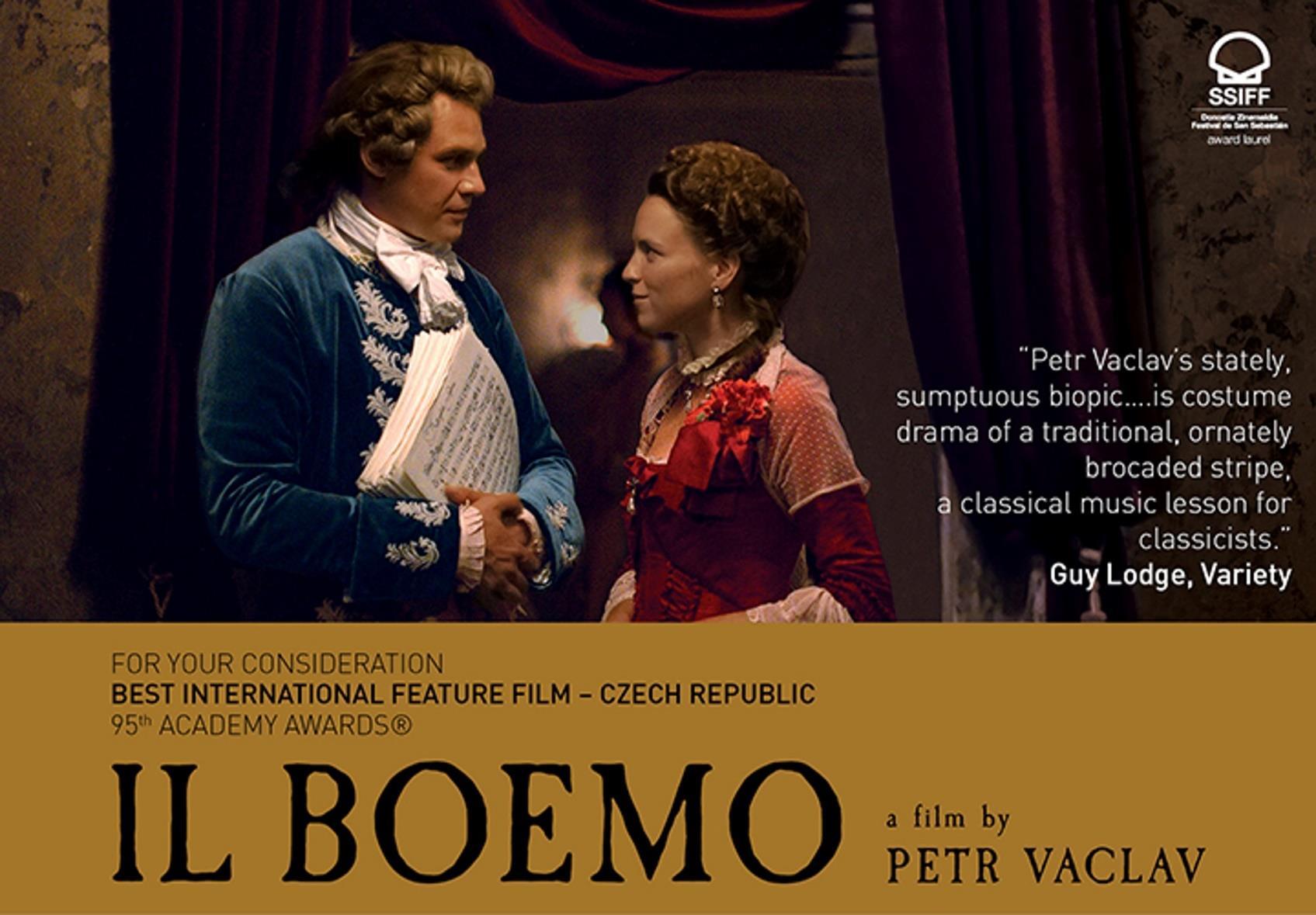
TFV: It’s very interesting, and perhaps unique in Italian cinema, that the character is a Muslim and speaks Arabic.
MM: The book is about a man who lives in North Africa and tells the story of his life there. I wanted to make a film that was essential and mysterious.
The man has lived in an Arab culture for forty years and married an Egyptian woman; he’s a Muslim culturally speaking. This is delicately suggested (this is not in the book) when he dances with the young people from the neighborhood to Arab music. The rione is a poor, ancient, mixed quarter which is strangely modern, suggesting the possible future of Naples lies in a meeting of different cultures, in an encounter without hostility. The Catholic priest is a wonderful character based on the real Father Loffredo, who has done so much for the neighborhood. A very concrete priest who fights a continual social battle in Rione Sanità, where poverty and criminality reign.
TFV: What’s next on your agenda?
MM: I’m editing a documentary on actor and comedian Massimo Troisi, who I knew. February marks the 70thanniversary of his birth. I’ve always loved his films and I want to try to recount my feelings towards them. It will be ready for February. -
According to data compiled by MediaRadar and as reported on advanced-television.com, the top five advertisers targeting the Academy’s nomination and voting for the 94th Academy Awards, Oscar campaigns totalled US$45 million, equal to 73 percent of the spend. These top five were AT&T, Amazon, MGM, Netflix and The Walt Disney Company.
Lavish print ads in newspapers and magazines, primarily the “trades” including Variety, The Hollywood Reporter but also the Los Angeles Times, comprised between 72 and 86 percent of the total ad spend on Oscar contention since 2019.
Viewership for the 94th Academy Awards, last year, was up 58% to an official 16.6 million people watching the live event, according to Nielsen, but still the second lowest in Oscar history. The relevance of cinema has not yet returned to its former glory in the shadow of Covid19 and a resurgence of the Streaming Wars.

Of interest to some, is the fact that those Streaming Wars now seem led by the incoming, returning regime of Bob Iger at the Walt Disney Company, the owner of ABC and Buena Vista, which broadcasts the Box Officefocused Oscars to the world.
The 70th Academy Awards in 1998 saw James Cameron’s Titanic, distributed to cinemas by Paramount, dominate both the Box Office and the Academy Awards. The connection between a social experience in the cinema and seeing one of the highest-grossing box office films ever receive an Oscar for Best Picture was directly relevant to an official 55.3 million people, creating cultural reference for generations.
While statistics, and opinions, vary on the direct connection between Oscar gold and box office dollars, the publicity value of becoming a cultural reference is distinctly immeasurable.
Part III of the Oscar Currency series will examine the lead up to the 100th anniversary of The Academy Awards in 2028, the year that coincides with expiration of Iger’s Disney Group television license with the Academy.

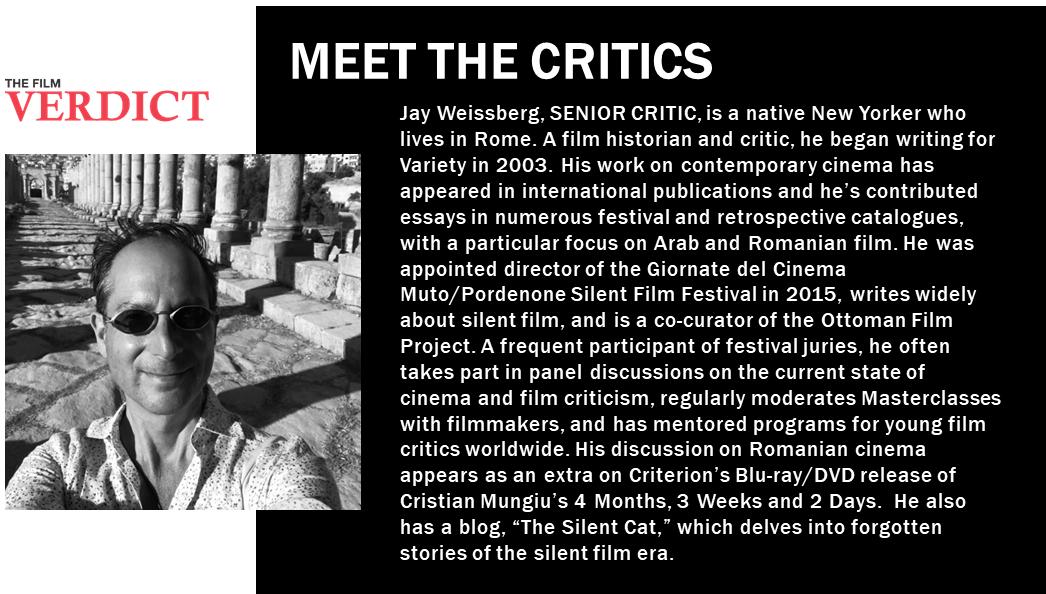
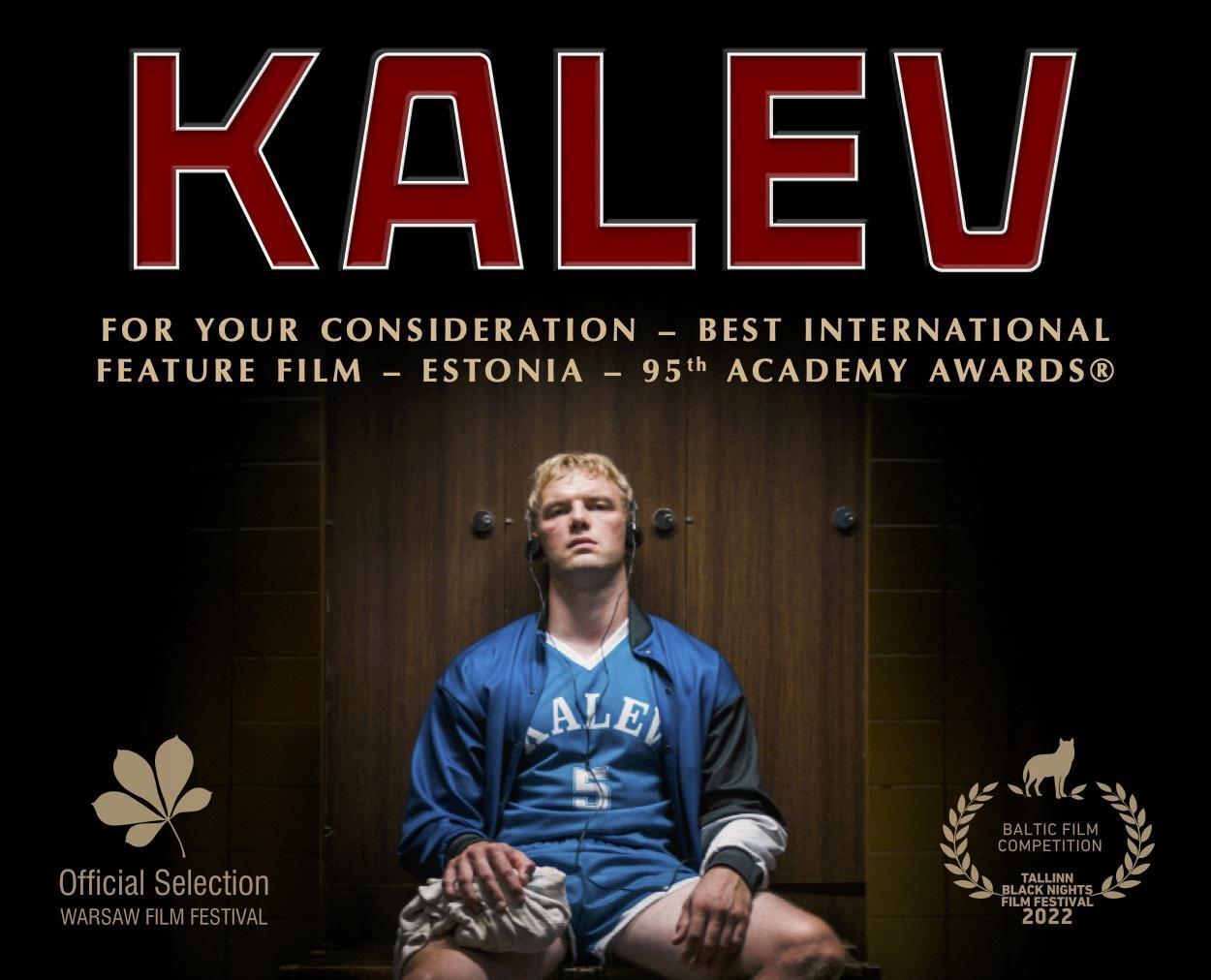


: El drama de Santiago Mitre sobre el Juicio a las Juntas hace justicia a este importante hito de la historia argentina.
Boyd van Hoeij, December 8, 2022 (Continúa en la página 7)



VERDICT: The UK's official Oscar submission is a sweetly knowing homage to classic cinema, especially the modern masters of Iran.


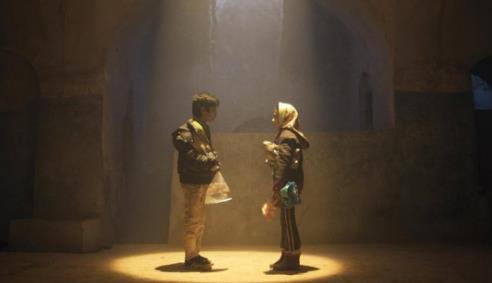
Stephen Dalton, December 7, 2022 There is a pleasing symmetry in the news that Winners, a sweet little meta-drama about a missing Oscar statuette, has now been submitted for Academy Awards consideration in the real world. The feature debut of British-Iranian writer-director Hassan Nazer, a former refugee long resident in Scotland, this love letter to cinema is a fully Scottish production but was filmed on location in Iran with entirely Farsi dialogue, hence its selection as the UK’s official contender in the Best International Film race. After winning the Audience Award at Full Review
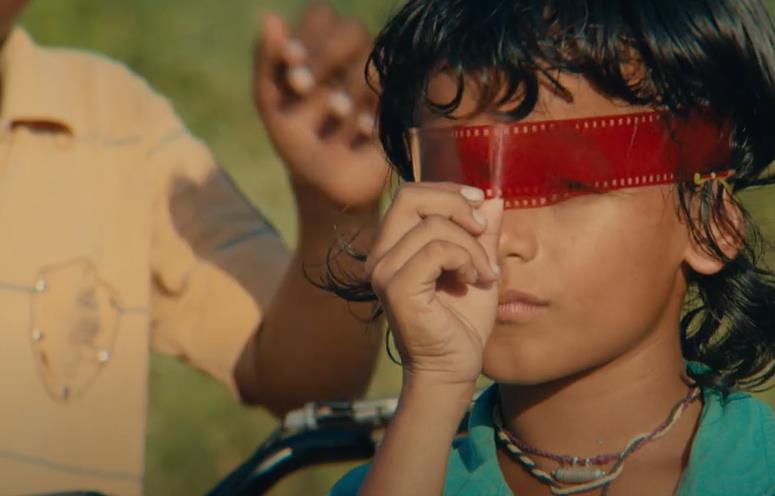

THE FILM VERDICT: This is the second time, after 11 Minutes in 2015, that a film of yours has been chosen to represent Poland at the Oscars. Any lessons you learned during the last campaign that you’re applying to this one?
JERZY SKOLIMOWSKI: I didn’t actually take part in the campaign last time, probably because I was in the hospital. My health has deteriorated a lot in recent years I was also unable to attend Cannes this year for health reasons. I only went to the festival on the last day to accept my award. So, I’m getting used to not being personally present for the important moments of my socalled career.
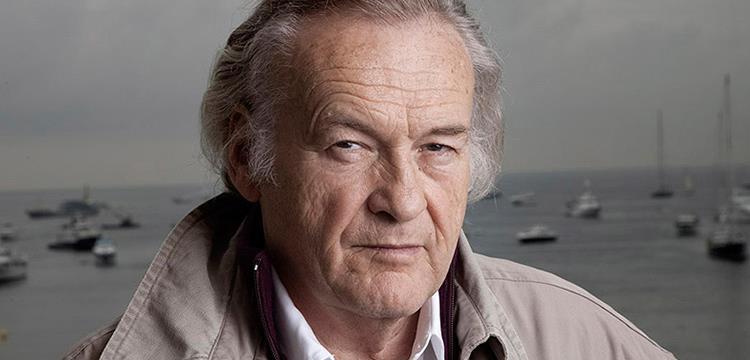
TFV: You had the most memorable acceptance speech in Cannes this year because you thanked all the donkeys that played the main character. When you watch the film, can you tell who’s playing EO in each scene?
JS: I can tell you frame by frame, because sometimes we had multiple donkeys in the same scene. Tako, for example, was the one we used for the walks through the forest and running on the roads, while his partner Hola
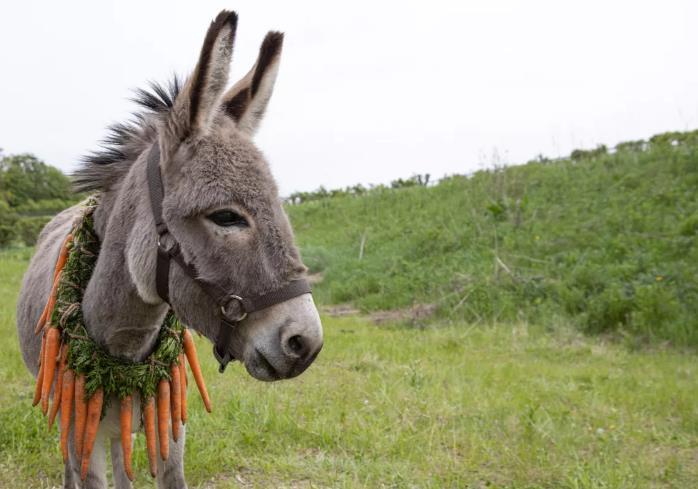
did all the close-ups. Her mug is very pretty, I would call her “Miss Donkey of the World”. She has those enormous eyes, with a melancholic look. But the audience can’t tell them apart because they’re all the same breed, Sardinian donkeys, and they look the same. Only I, Ewa [Piaskowska, the film’s co-writer and co-producer] and the animal trainers can.
TFV: 11 Minutes was a very ambitious film, with its multilayered plot and visual richness. Was it a conscious decision to do something more stripped-down this time?
JS: Yes, that was certainly the intention. I think we should move
past classical storytelling, but maybe 11 Minutes was too formally complicated, it required too much of the audience. That was our first attempt to get away from a conventional narrative, to do something that is not driven by the plot. We overdid it with 11 Minutes, so that was a lesson, which made us accept some corrections and simplifications that led to EO, which is also structurally different from the previous film.
TFV: You finished shooting in March of this year, the premiere was two months later, and the film is currently traveling on the festival circuit and as part of the Awards season. Is it completely finished in your mind, or is this part of the journey to bring it to the screen?
JS: I feel like I’m still working on the film. I really liked shooting it, and I love working with animals, especially donkeys. To be in their company was a pleasure, it felt less like work and more like being with your best friend. They’re friendly and lovely creatures, and their innocent look is so pleasing. I miss them very much; I even dream about donkeys. That means my brain is still working on
JS: It’s all a bit of a blur because the response to the film has been very positive overall. It was a bit of a surprise because I thought the unorthodox storytelling would be a bit difficult to follow and accept. On the contrary, the audience has picked up on some very small details. Generally speaking, they fully understood subjects like the reduction of meat consumption, which came up during every single Q&A. Ewa and I have reduced it by two thirds in the past few years, and half of my crew gave up meat completely during filming. The message is generally well accepted, and I believe people will think twice before ordering another steak. I hope eventually industrial farming will cease to exist and people will stop being so cruel to animals and eating them in such unnecessarily large numbers.
it. Now we’re in the middle of the American campaign. We did ten days in New York, where EO won the New York Film Critics Circle Award for the best international film, and then two weeks in California. In fact, after this interview is done, I’ll be packing for my return to Poland. I’ll have to do more interviews, screenings and Q&As if the film is shortlisted. I did about two Q&As a day in California, and the audience was very interested. Sessions that were supposed to last 10-15 minutes went on for triple the scheduled duration.
TFV: What’s been the most memorable reaction so far?
TFV: In between 11 Minutes and EO, you received a Lifetime Achievement Award at the Venice Film Festival. That kind of recognition is interpreted by some as marking the end of a career. Is EO your way of saying you’re not done yet?
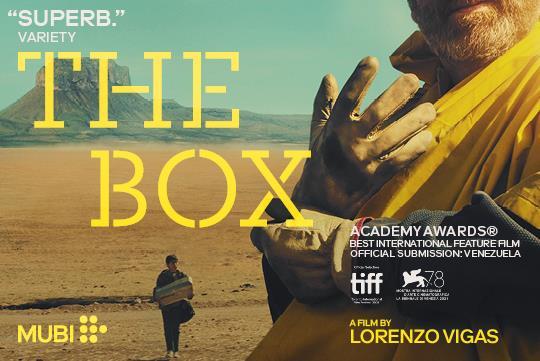
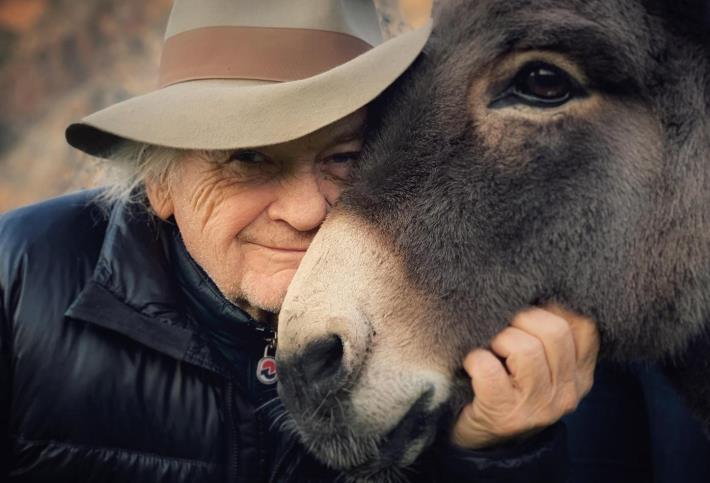
JS: That’s exactly what I said when I accepted the award in Venice, that it’s not the end and I will keep making movies. I don’t think EO will be my last movie, even though so far we don’t have anything planned. If you’ll allow me the joke, our brains are still braying! (laughs)
– By Max Borg
VERDICT: French director and documentarian Alice Diop makes a bright debut in fiction filmmaking with her complexly layered, multiprize-winning film exploring the dark side of motherhood.
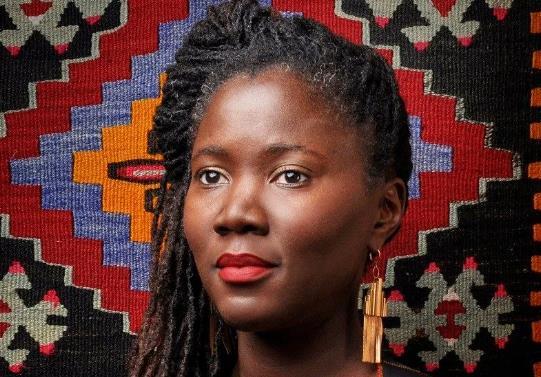
Deborah Young, December 8, 2022
If you had met Alice Diop before she made Saint Omer, it might have been at IDFA or another documentary film festival, where she showed films like her 2011 La mort de Danton about a Black man from the Paris suburbs at war with the violence that surrounds him. Or the 2016 La permanence, which follows a doctor as he makes his rounds treating migrants in a Paris hospital. Or last year’s We, a series of encounters the director makes with ordinary people on a train crossing Paris and its suburbs from north to south.
All along the way, Diop’s documentaries won her recognition at festivals: La mort du Danton the Libraries award at the Cinéma du Réel, La
permanence the Louis Marcorelles award at the same festival, while We won the Encounters award at Berlin. But nothing prepared audiences for her dazzling switch to fiction filmmaking with one of the most talked-about films in Venice, Saint Omer. It received the Silver Lion Grand jury award, as well as the Lion of the Future, and has been chosen as France’s submission for Best International Feature at the Academy Awards.
Based on a real murder trial that took place in France, the appalling trial of a young Senegalese woman who left her infant daughter on a beach to be swept away by the tide, Diop (Continues page 10)
There is something very startling about Ali Abbasi’s enticingly named new feature Holy Spider, the story of an Iranian serial killer who strangles female sex workers to death in the holy city of Mashhad in order, he says, to eliminate corrupt women from society. It’s not as though Iranian cinema is a stranger to violence and bloodshed, and at least in recent years prostitution, drug abuse and soaring poverty have become common topics and backdrops in films (see Saeed Roustaee’s hardhitting Just 6.5, among many others).
No, the jarring thing about Holy Spider is that all the characters are treated naturalistically, which can never happen in Iranian films thanks to the censorship code. Here, instead, two women who are talking indoors take off their headscarves to converse, a husband and wife have sex, a man and a hooker have sex, and people take their clothes off when necessary, just like they do in Western movies. Full Review
VERDICT: Ali Abbasi’s Iranian-set noir, based on a real serial killer of prostitutes, explores the social and religious culture that is often used as an excuse for violence against women.

Deborah Young, May 22, 2022

VERDICT: Carla Simón's second feature, which competes in Berlin, is a novelistic yet unsentimental look at a rural Catalan family.
Boyd van Hoeij, February 15, 2022
A Catalan family of peach farmers try to survive in the unforgiving world of today in Carla Simón’s involving contemporary drama, Alcarràs. This ode to familial unity, even as it ponders the differences between generations, is told in the loosely observant style familiar from Simón’s well-received debut Summer 1993, finding a pleasing middle ground between poetic storytelling and grounded-in-reality realism. In Alcarràs too, there is a welcome absence of sentimentality and plenty of room for character details and family dynamics that’ll make most audiences nod their heads in recognition. But unlike Summer, the scope here is wider and more novelistic, as it chronicles a large family with many characters all trying to deal with desires and troubles both personal and collective. This Berlinale competition film should further consolidate the rapidly growing reputation of Simón as one of Spain’s most interesting new voices and a Catalan voice at that.
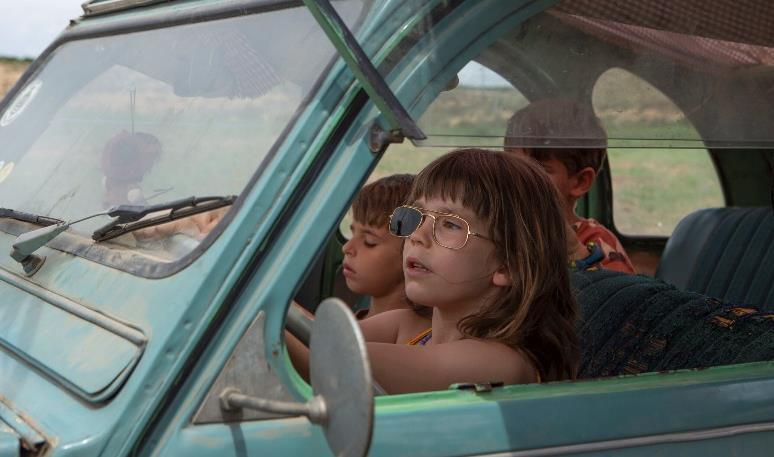
Endless fields of fruit trees and vegetable patches somewhere in the picturesque Catalan countryside are the playground of the preteen kids Iris (Ainet Jounou) and twins Pere and Pau (Joel and Isaac Rovira). Of course they do things adults wouldn’t necessarily agree with, like hitting each other over the head with lettuces from a neighbouring plot or drinking hot watermelon juice from a stolen fruit that’s been sitting in the sun all day. Roger (Albert Bosch) is an older teenager and he’s up to other things his Dad doesn’t agree with, like secretly cultivating small cannabis plants in a maize field.
Full Review
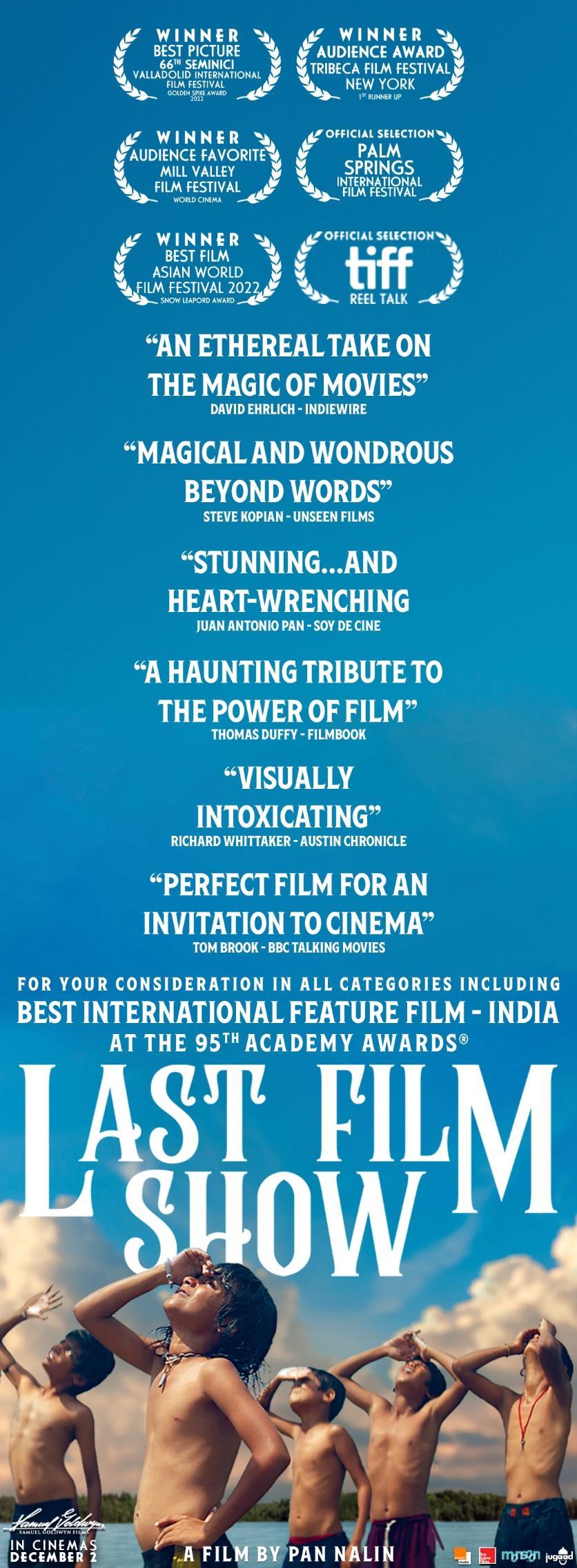
: El segundo largometraje de Carla Simón es una mirada novelesca y sin embargo poco sentimental sobre una familia rural catalana.
Boyd van Hoeij, December 8, 2022
Una familia catalana de cultivadores de duraznos (melocotoneros) trata de sobrevivir en el implacable mundo de hoy en Alcarràs, el envolvente drama contemporáneo de Carla Simón. Esta oda a la unidad familiar, incluso cuando reflexiona sobre las diferencias entre generaciones, está contada con el estilo de observación familiar desestructurada, ya conocido y bien recibido en el debut de Simón, Verano 1993, donde encuentra un agradable término medio entre la narración poética y el realismo con los pies en la tierra. En Alcarràs también se agradece la ausencia de


sentimentalismo y hay mucho espacio para dar detalles de los personajes y dinámicas familiares que harán que la mayoría de los espectadores asientan con la cabeza. Pero, a diferencia de Verano 1993, aquí el alcance es más amplio y más novelesco, ya que narra la historia de una familia numerosa con muchos personajes que tratan de enfrentarse a deseos y problemas tanto personales como colectivos. Esta película en competencia en la Berlinale consolidará aún más la creciente reputación de Simón como una de las nuevas voces más interesantes de España – y Revision Completa
:
ARGENTINA, 1985 (Continuado)
(Traducción de Patricia Boero)
Desde su ópera prima, El estudiante (2011), el guionista y director argentino Santiago Mitre (Paulina, La cumbre) ha explorado la intersección entre la política y lo privado y personal. Para su cuarta película, Argentina, 1985, ha realizado un drama basado no solo en hechos reales, sino en uno de los acontecimientos políticos más famosos de su país: el Juicio a las Juntas de 1985, durante el cual un grupo de generales del ejército de la época de la dictadura -que no terminó hasta 1983- fueron juzgados por crímenes de guerra ante un tribunal civil. El coguionista Mariano Llinás y el

guionista-director se adentran en el material a través de Julio César Strassera, el fiscal que básicamente se vio obligado a asumir esta poco envidiable tarea. Ayuda el hecho de que esté interpretado por uno de los mejores actores del país, Ricardo Darín, Revision Completa


Right from his debut feature, 2011’s The Student, Argentinian writer-director Santiago Mitre (Paulina, The Summit) has explored the intersection of politics and the private and personal. For his fourth film, Argentina, 1985, he has made a drama not only based on true events but one of his country’s most famous political events: the 1985 Trial of the Juntas, during which a group of army generals from the dictatorship era which only ended in 1983 stood trial for war crimes in a civilian court. Co-writer Mariano Llinás and the writer-director’s way into the material is Julio César Strassera, the public prosecutor who was basically forced to take on this unenviable task. It helps that he’s played by one of the country’s best actors, The Secret in Their Eyes’ Ricardo Darín, who earlier played a fictional Argentinian president for Mitre in The Summit. Full Review
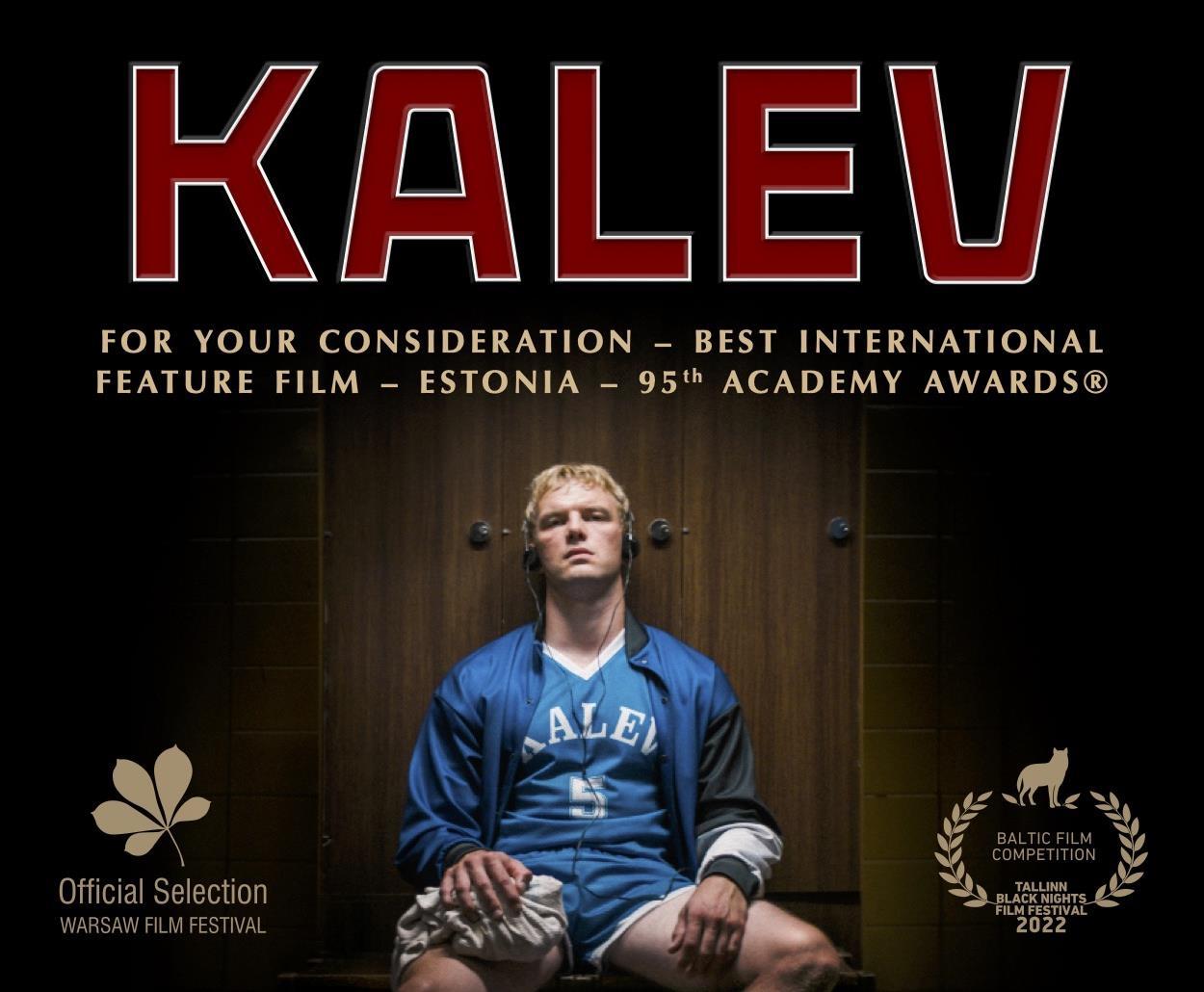
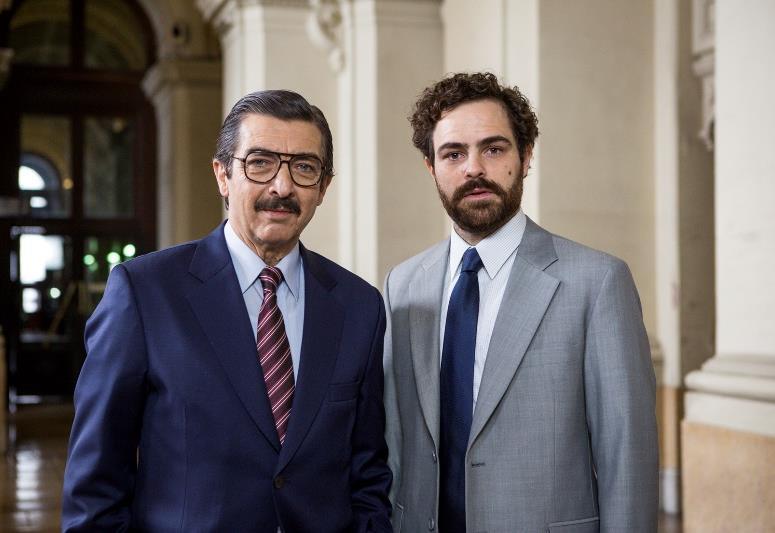
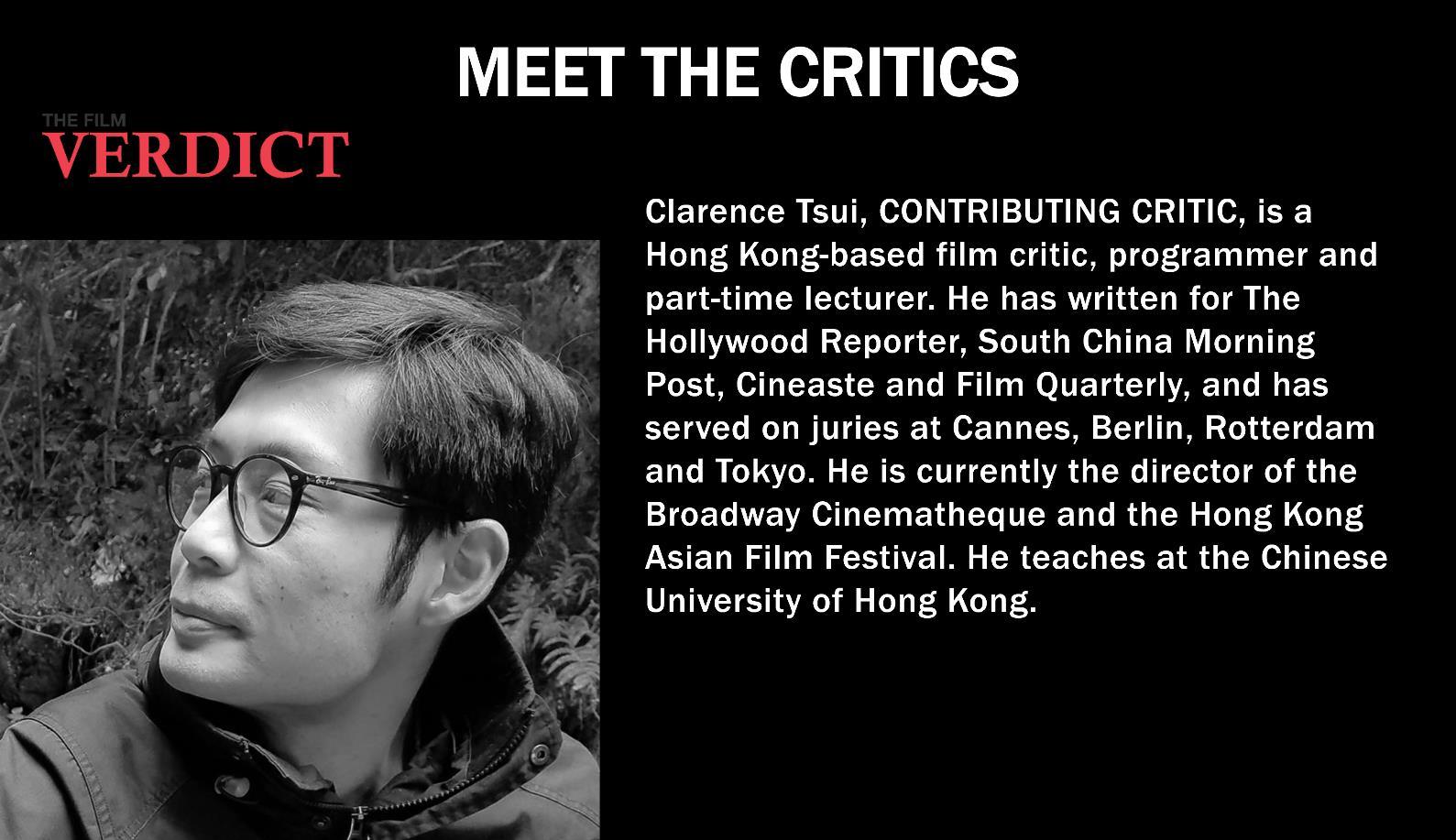

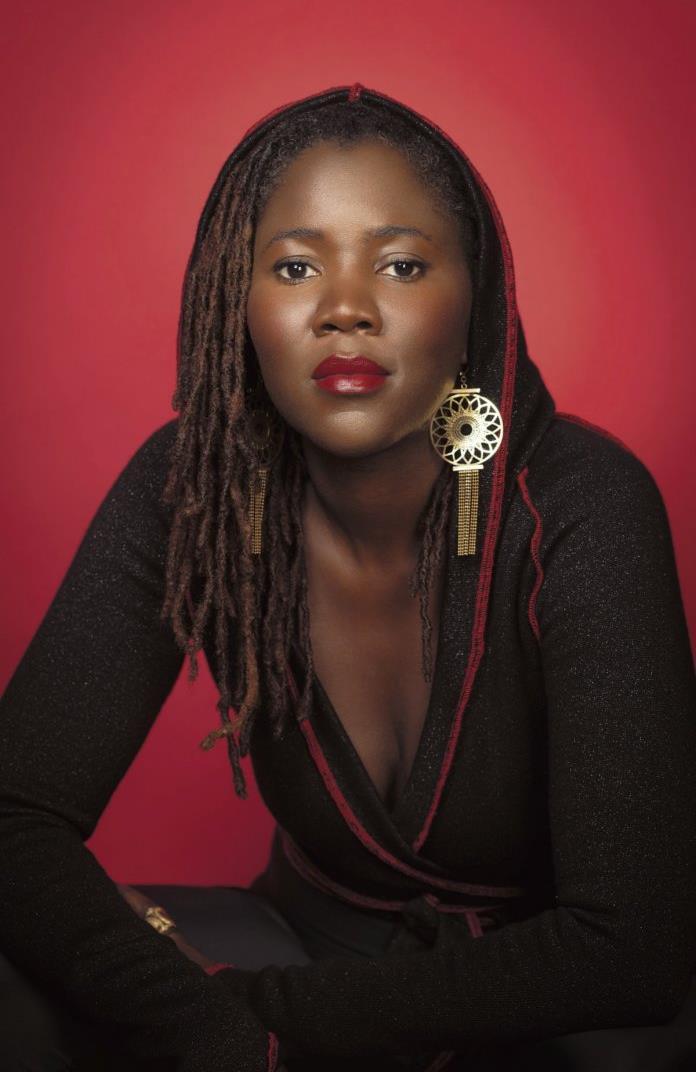
doubles the complexity of the legal proceedings and moral questions raised by framing it in the fears of a journalist attending the trial: she is scared over her own pregnancy and conflicted over her mixed- race relationship and her mother. Looking further, one can see the strings attaching the director herself to this story.
She was born outside Paris to Senegalese parents (she has explored her family and early life in her films) and grew up in a housing project, later studying history and getting her degree in sociology. TFV praised the film for the way it “delves into the darker currents so nonjudgmentally” and its portrait of motherhood will remain one of the most complex in contemporary cinema. Full Profile
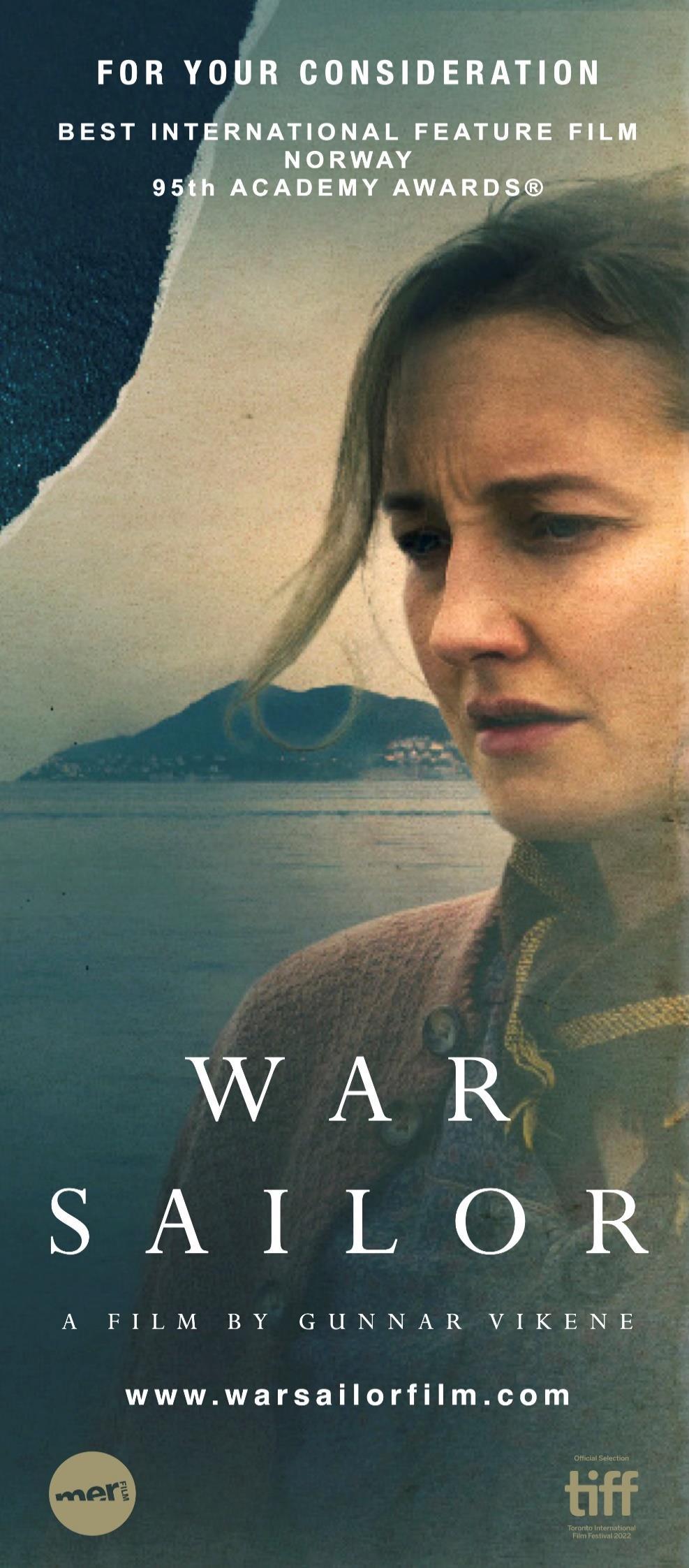
VERDICT: A beautifully shot, rigidly ice-cold story of love, disease and crushed dreams that will play best with festival crowds and highly selective art houses.

Jordan Mintzer, February 14, 2022 Swiss writer-director Michael Koch displays a keen eye for jaw-dropping landscapes and natural wonders, but less for character and narrative, in his second feature, A Piece of Sky (Drii Winter), set in a remote farming community high up in the Alps.

Gorgeously shot in the box-like Academy ratio and employing a cast of non-actors, this Berlin competition title works best when it uses a documentary-like approach to explore a world few of us have access to, chronicling members of an isolated agricultural community that persist under tough conditions at ungodly altitudes. But when it attempts to fictionalize their lives into a gloomy tale of love, sickness, abuse and possible redemption, it falters, sticking us with two rather inert leads and relying on pompous art film techniques such as a singing, Greek tragedy-style chorus that fail to make the medicine go down easily.
Dipping into a cinematic toolbox inspired by Bresson, Dreyer, the Dardennes and probably Bruno Dumont, actor-turned director Koch, whose 2016 debut Marija premiered in Locarno, delivers a highly austere brand of filmmaking that doesn’t always fit well with the material. He tries to depict a few years in the lives of two youngish people who fall deeply in love and then fall apart, Full Review
“In partnership with the Media C-Suite, the digital native platform for news & insight tailored to executives, entrepreneurs and investors in the Media & Entertainment industry, The Film Verdict is pleased to present a series entitled, Oscar Capital, exploring the financial impact of the Academy Awards on film, film-makers and the box office.” - The Film Verdict (TFV)
In Part I of this series, we looked at the values of the Academy itself within the context of today’s US$2.4 trillion global Media & Entertainment industry and in Part II, The Media C-Suite explode the US$1.4 billion in capital accumulated by the Academy over more than half a century and the US$1 billion more awaiting receipt. The full series can found on the Media C-Suite.

In 1927 Los Angeles, a collection of 36 film industry leaders founded the Academy of Motion Picture Arts and Sciences as a trade group to promote the growing trend of Americans watching “movies” on the “silver screen” at the local theatre.
Ticket sales to increasingly purpose-built cinemas across the US and Europe were as lucrative then as streaming subscriptions are today. Then, as now, producing and distributing entertainment content was big money.
The Box Office was the only game in town. There was no television. No internet. Radio was just becoming a thing. The technological transformation of the day was from silent “movies” to the wonder of “talkies”. The social experience of attending a film at the local cinema washed over the United States and Europe to become the “great escape” after the stock market crashes of 1929.
By 1931, out of a US population of ~124 million people, an average of 2 million people per day attended screenings at Paramount-owned cinemas. Hollywood boomed as the Great Depression raged, and Paramount was only one of five major studios, all of whom were busy taking ownership of theatres and creating proprietary networks of distribution to monopolise ticket sales for their own “originals”.
Sound familiar?
In the lead up to the 95th annual Academy Awards, and as today’s studio moguls enter a new phase in the Streaming Wars against Netflix, led seemingly by Disney, let’s take a brief look at some key time frames that lead us to a speculative future for the Academy of Motion Picture Arts and Sciences.
The first Academy Awards took place in 1928, hosted by the Academy’s President, and silent film star, Douglas Fairbanks to an audience of 270 people. Tickets were expensive at US$5.00 (~US$80 today) for a ceremony that lasted only 15 minutes at the newly opened Hollywood Roosevelt Hotel.

One thing that has not changed in at least 100 years is the presence of the studio “Majors”. Universal Pictures, Paramount Pictures, MGM, Warner Bros, Walt Disney and Columbia Pictures were all top companies at the time of the first Academy Awards and are all cornerstones to the largest multi-billion dollar publiclylisted media conglomerates today.

Television allowed the Academy to begin broadcasting the Oscars live to the most lucrative consumer market on Earth with the 25th annual Academy Awards ceremony on March 19, 1953.
By 1998, national cable and satellite networks allowed as much as 20% of the US population, over 55 million people (and as many as a billion worldwide) to merge their social experiences at the local cinema with family time at home, forging cultural references out of film moments, actors and directors that span generations.
page 13)
Netflix changed everything in 2007. Delivery of motion pictures over broadband internet may have actually started with Amazon, but each and all of the multi-billion dollar publicly-listed media conglomerates have spent multibillion dollar budgets to transform themselves from Box Office champions to streaming, stay at home, Netflix killers.
All of them have been busy creating ownership of SVOD platforms and creating proprietary networks of distribution to monopolise subscription sales for their own “originals”. Box Office be damned.
The year 2028 marks the 100th anniversary of the Academy Awards and the expiry date for the lucrative license agreement to broadcast the Oscars live to a television audience.
The year 2028 marks the 100th
anniversary of the Academy Awards and the expiry date for the lucrative license agreement to broadcast the Oscars live to a television audience.
That license now rests in the hands of Bob Iger at the Walt Disney Company, owning both ABC (holding US broadcast rights to the Oscars) and Buena Vista (holding international rights). Rights to broadcast the Box Office-focused Academy Awards are held firmly within the control of the multibillion dollar publicly-listed media conglomerate with a stated objective to turn the SVOD platform, Disney+, into its core business.
Since its founding, the Academy has amassed an international membership of over 10,000 professionals spanning all forms of content production for all forms of content distribution, from cinema (of course) to television, radio and internet. The Academy has also

amassed total assets in excess of US$1.4 billion and contractual obligations from Disney itself for another US$1 billion over the next five years.
If one did not know better, one may imagine that the Academy has been preparing for decades and now wields both a sizable war-chest and a formable, professional army to assume the role of peace-keeper in the Streaming Wars for the industry’s next generation.
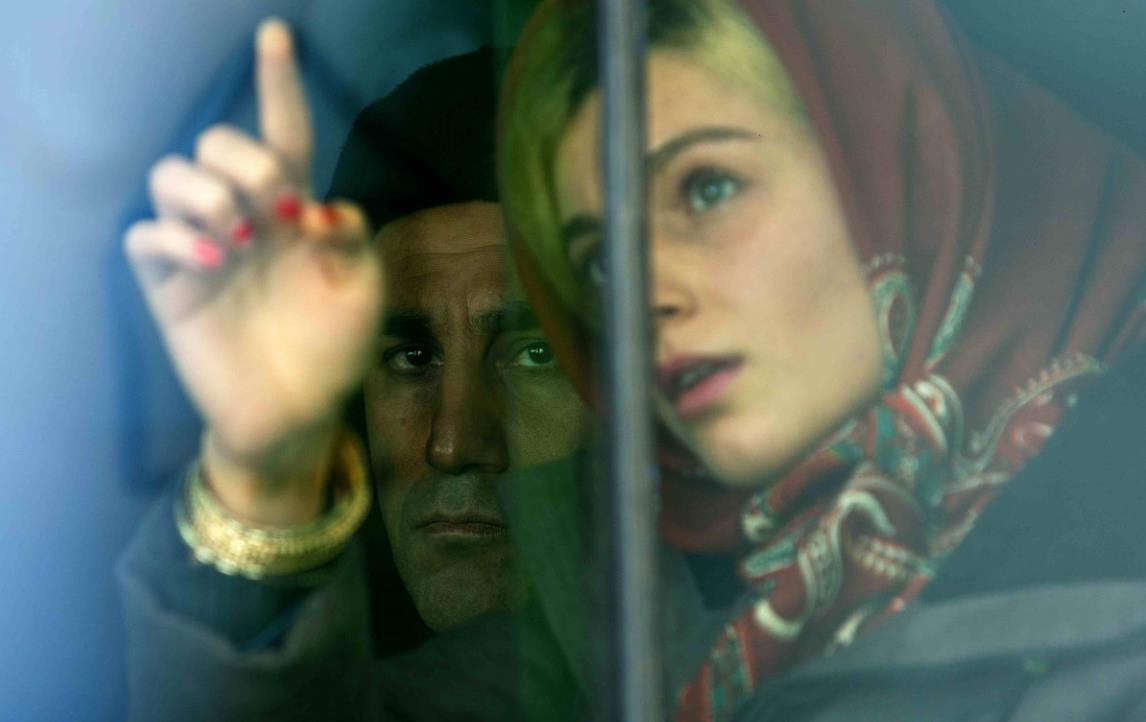
Perhaps the 101st Annual Academy Awards will be broadcast live as it has since 1953. Or perhaps a streaming option with one of the original studio Majors will be announced.
Of course, there is always Netflix. And now Amazon has announced firm support for theatrical release to rival any studio Major’s capacity. And then, just imagining, there is always the metaverse. –


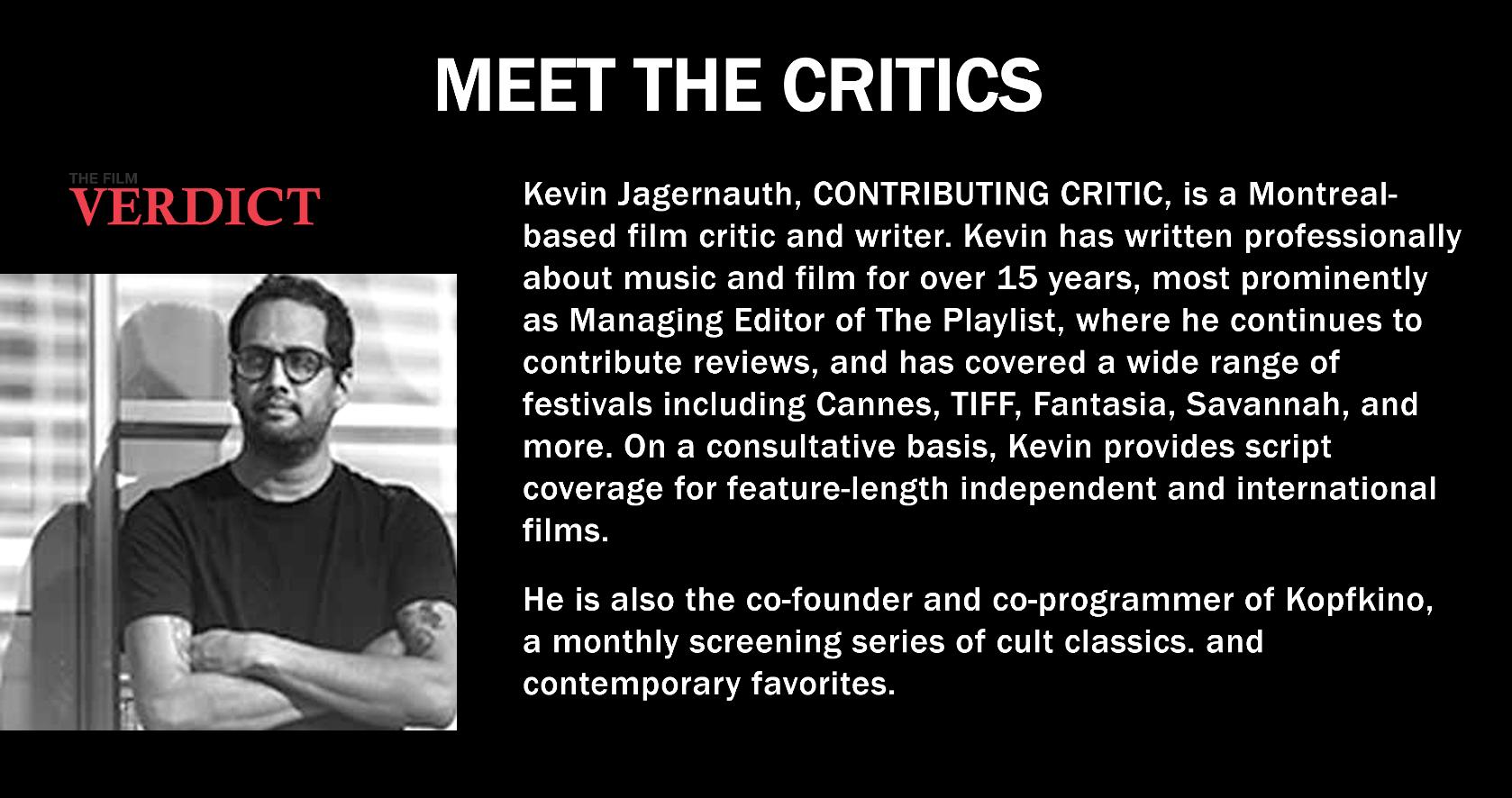




VERDICT: Pan Nalin's latest film, and India’s submission for the Best International Feature Academy Award, is a beautifully mounted and crowd-pleasing ode to celluloid and cinema.

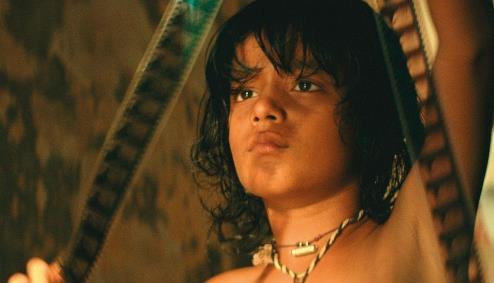
Clarence Tsui, December 7, 2022 Oscars voters have always had a soft spot for movies about movies – and Last Film Show should very much fit their bill as they survey the candidates for the Best International Film Academy Award. India’s submission for the category is a lushly-lensed feature aimed squarely at showcasing the magical allure of film and the mystical allure of tangible, touchable celluloid, packaged within the very accessible narrative of a village kid’s rite of passage from a rebellious urchin to an aspiring filmmaker. Teasing a thoroughly engaging performance out of his non(Continues page 2)

: La difícil situación de los indígenas ayoreo, la última tribu en evitar el contacto y reclamar sus territorios en la selva del Chaco paraguayo, se plasma de forma minuciosa y poética en este drama que se estrenó en Rotterdam y es candidata al Oscar Internacional 2023 por Paraguay.

Patricia Boero, December 9, 2022
(Continúa en la página 9)

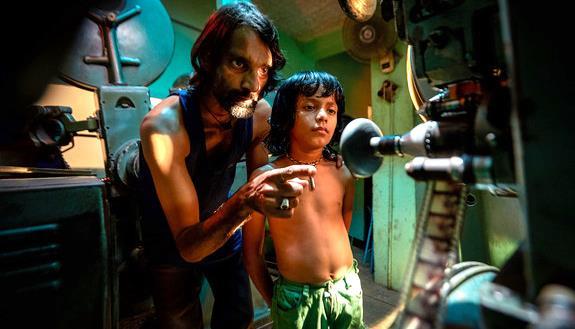
THE FILM VERDICT: Last Film Show premiered at Tribeca in 2021 and is now India’s submission for the Academy Awards. How do you feel about this second lifecycle, so to speak?
PAN NALIN: I’m thrilled, because after Tribeca, where we screened an unfinished version (we were still working on the sound mix and the opening and closing credits), there were other festival invitations, but a lot of them fell through because of the Omicron variant. So, I thought we were done, to an extent, and then, right before our premiere in India, we got the news that we’d been chosen to represent the country at the Oscars, and the film is getting distribution in multiple countries next year. And I will now be going to some festivals, like Palm Springs in January, a year later than originally planned. I’m very busy
with Q&As, I just did one with an audience in Toronto. It’s very nice, because we had kind of given up, we thought the movie was going to end up on a streaming platform. I can believe in cinema again!
TFV: Your film deals with the transition from celluloid to digital in India, which was a
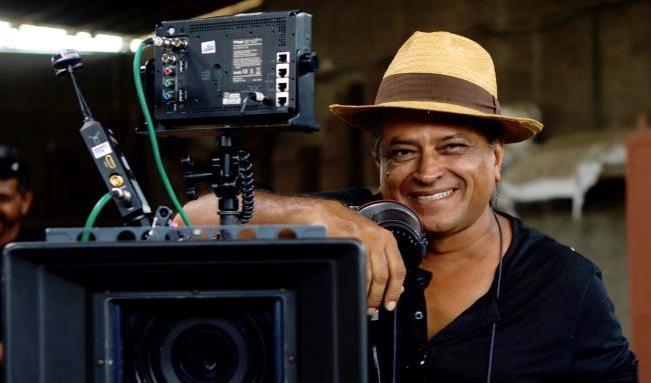
professional child actor Bhavin Rabari, Indian director Pan Nalin manages to elevate what could have been a saccharine, feel-good narrative into something endearingly magical. Based on his own childhood experiences in the backwaters of the northwestern Indian state of Gujarat, Last Film Show – which bowed at Tribeca before being
massive change. And you finished shooting right before the start of the pandemic, which also had a huge impact on the industry.
PN: Yes, the way we consume films has changed quite radically. It’s been challenging to put out a film like ours, because a lot of (Continues page 3)
snapped up by Samuel Goldwyn Films for U.S. distribution – bears witness to the power of cinema as an enthralling agent for personal and social change.
Set in 2010, Last Film Show revolves around Samay (Rabari), a mischievous nine-year-old whose provincial family has seemingly fallen on hard times. While an upper-class Brahmin by birth, Sanay’s father (Dipen Raval) can only earn a living running a tea stall at the local train station. Still, the patriarch retains the airs of his priestly caste, and that includes a disdain for popular culture – and that, of course, includes movies and all the sensationalist entertainment they generate.
It’s during one of these rare forays to the picture house – for a screening of a lavish Hindu devotional film about the goddess Kali – that Samay gets bitten by the movie bug. Full Review
theaters have shut down permanently, even in cities like Los Angeles and Paris. And the big chains aren’t interested in a film like mine. They want Marvel, superheroes, James Bond, Avatar, IMAX. It’s going to be hard to find theaters for some films in the future.
TFV: Was it weird to make a love letter to 35millimeter film that pretty much everyone is going to see digitally?
PN: (laughs) Yes, very weird. The funny thing is, when I wrote the script, we had a deal with Kodak, so I could have shot the movie on film. But there’s a problem: we’re shooting in the Indian countryside, and you would have to send the material abroad for processing, and that’s expensive. Logistically, we would have needed the financial means of a Christopher Nolan project! So, it was frustrating to have the film stock and not be able to use it, but we found a middle ground with my cinematographer: if you put a vintage anamorphic lens on a digital camera, you get a more film-like feel, because those lenses are flawed, there are imperfections.
TFV: Perhaps, with hindsight, you should have left the film slightly incomplete after the premiere.
PN: (laughs) Yes, that’s right. I could have left some scratches and noises.

TFV: You’ve previously made films in Hindi. Why was it important for you to make this one in Gujarati?
PN: I’m from Gujarat, and most of the locations in the film are from my village. There are many different film production hubs in India that make films in Hindi, Telugu, Tamil, Kannada and Malayalam, which are the most popular languages. Full Interview
– Interview conducted by Max Borg

A Franco-Portuguese girl who’s not even ten years old finds that her grandmother might have left her a legacy she wasn’t prepared for in Alma Viva, the feature debut from Franco-Portuguese actress-turned-director Cristèle Alves Meira. Even more than a coming-of-age narrative, the film is an almost anthropological exploration of village life in Trasos-Montes, in northeastern Portugal, which sees wildfires rip through the mountains in summer and people accuse each other of sorcery and witchcraft. There should be an appreciative audience for this Cannes Critics’ Week title at festivals, especially because its ochre-and-amber visuals, courtesy of Portuguese cinematography royalty Rui Poças
VERDICT: Cristèle Alves Meira's feature debut is an uneven work that combines anthropological and documentary details with more supernatural elements.
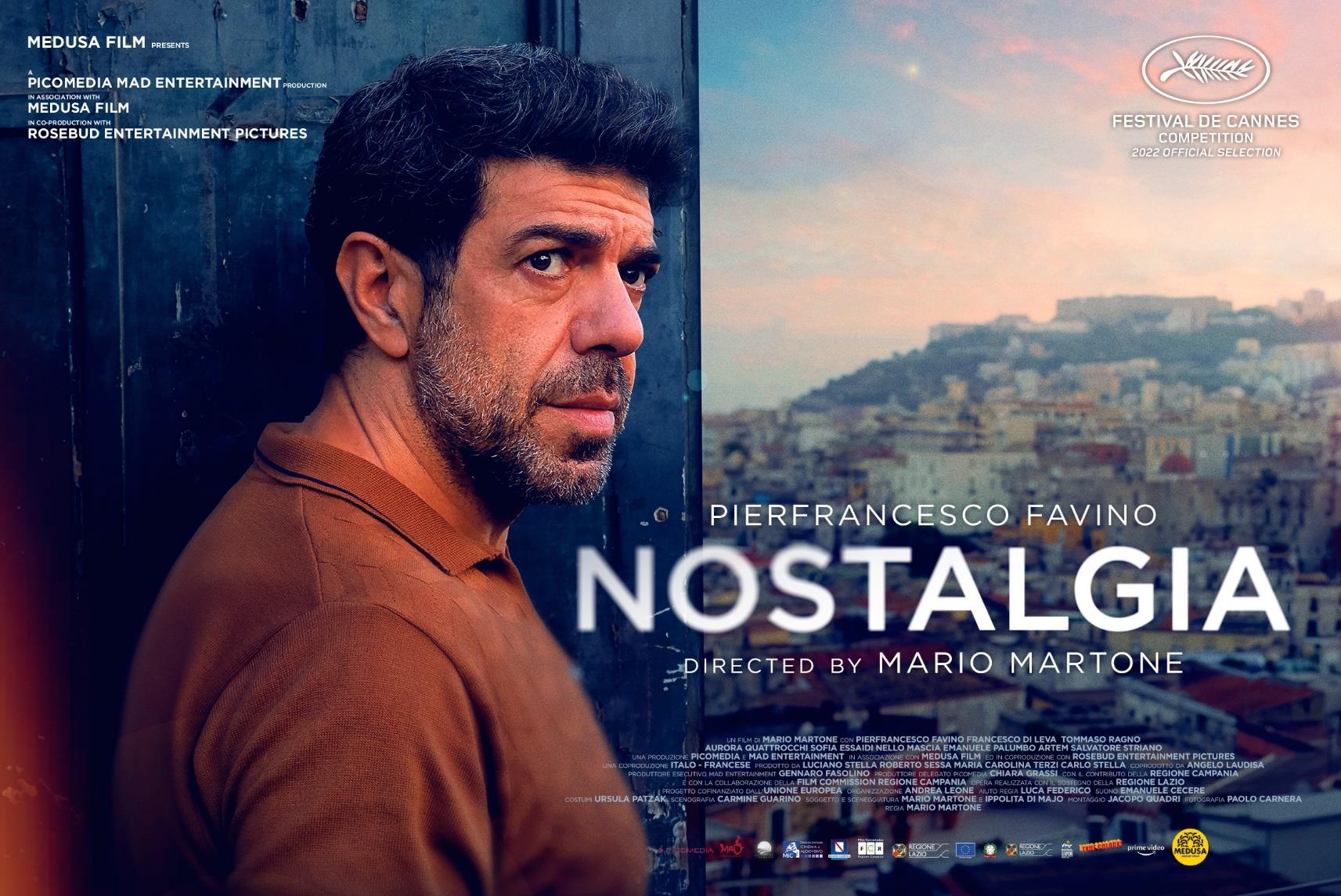

Boyd van Hoeij, May 18, 2022 (Zama, Frankie, The Ornithologist) are always pleasing to the eye, though a wider breakout might be harder to achieve.
Salomé (Lua Michel, the director’s daughter) has a special relationship with her maternal grandmother Full Review
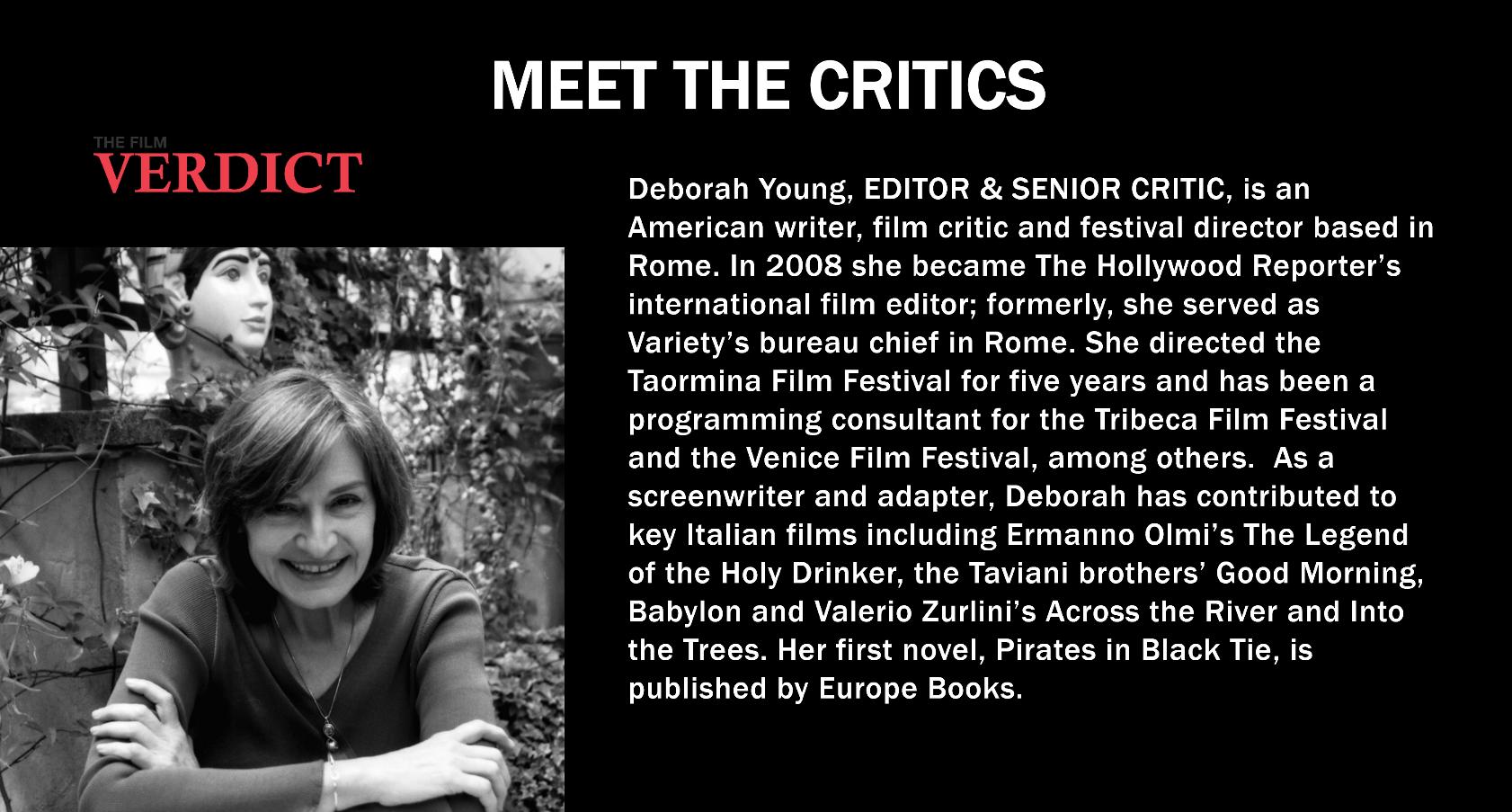

school, in class, when they announced that tanks had attacked Vilnius. We thought another war was about to start. History is repeating itself, just later than we expected. It’s a weird world we live in, and people have been asking me how I feel about the movie now. I don’t really know how to answer that, because everything I had to say on the subject is in the film.
TFV: How have people responded to the film in Estonia?

THE FILM VERDICT: What made you decide now was the right time to tell the story of the Kalev basketball team?

OVE MUSTING: That’s hard to say, because we started working on the project in 2016. My producer told me about this event, which I vaguely remembered watching as a teenager, and I was shocked no one had tried to make a movie about it before. So I started writing the script, and I interviewed as many of the real players as I could. But that was difficult, because I was trying to find a story on which to build the movie and they kept saying everything was perfect and there were no issues with the Russians. At the same time, I read about the head coach being under a lot of pressure: journalists hated him, and half the country thought taking part in a Soviet championship was a terrible idea. And of course, when I asked the players which of them was the star at the time, each of them said ‘I was!’ (laughs). In the end, once I had the necessary background
information, I made up a lot of the plot.
TFV: And what’s it like to have the movie out now, with the current Russian situation?
OM: It’s very weird. Our first teaser was ready at the end of February, just when the war started, and we thought we couldn’t release the film, it would look like we were exploiting this theme. It's strange how, 31 years after the events depicted in the movie, nothing has changed. I remember one day in 1991, I was 14 years old, and we were at
OM: I don’t know about the Eastern part of the country [where Russian is the majority language in some cities], but Estonian audiences have responded very warmly, to my surprise. It seems like they needed this movie now more than ever. It would have been quite different if we had premiered a couple of years ago, as opposed to now.
TFV: How have the Kalev players reacted? Have they seen the film?
OM: They’ve seen it, and I was quite nervous at first. I was sure someone would punch me in the

face after the premiere. One sports journalist said we had a completely different perspective on history, but he liked our version better than the real event (laughs). That was quite a compliment. The coaches, on the other hand, were afraid before the premiere, but after seeing the film they were quite happy. The team’s manager was sitting in front of me, and I saw he was crying. He thanked me afterwards and said I made history. He’s the one who made history! I just wrote it down.
TFV: How does it feel to tell the story of Estonia’s relationship with Russia via a very American genre, the sports movie?
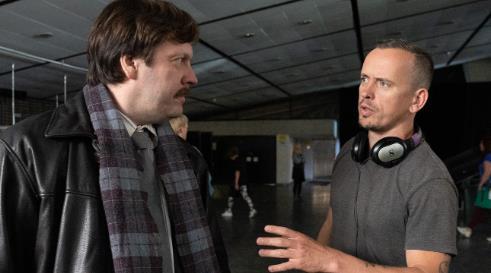
OM: Life is full of surprises. The thing that struck me the most was the wonderful coincidence that a few months after the championship, we got our independence [with the Estonian Restoration of Independence]. I thought there was a movie in that combination of elements. It was a great year, 1991.
TFV: How do you expect American audiences to respond to the film?
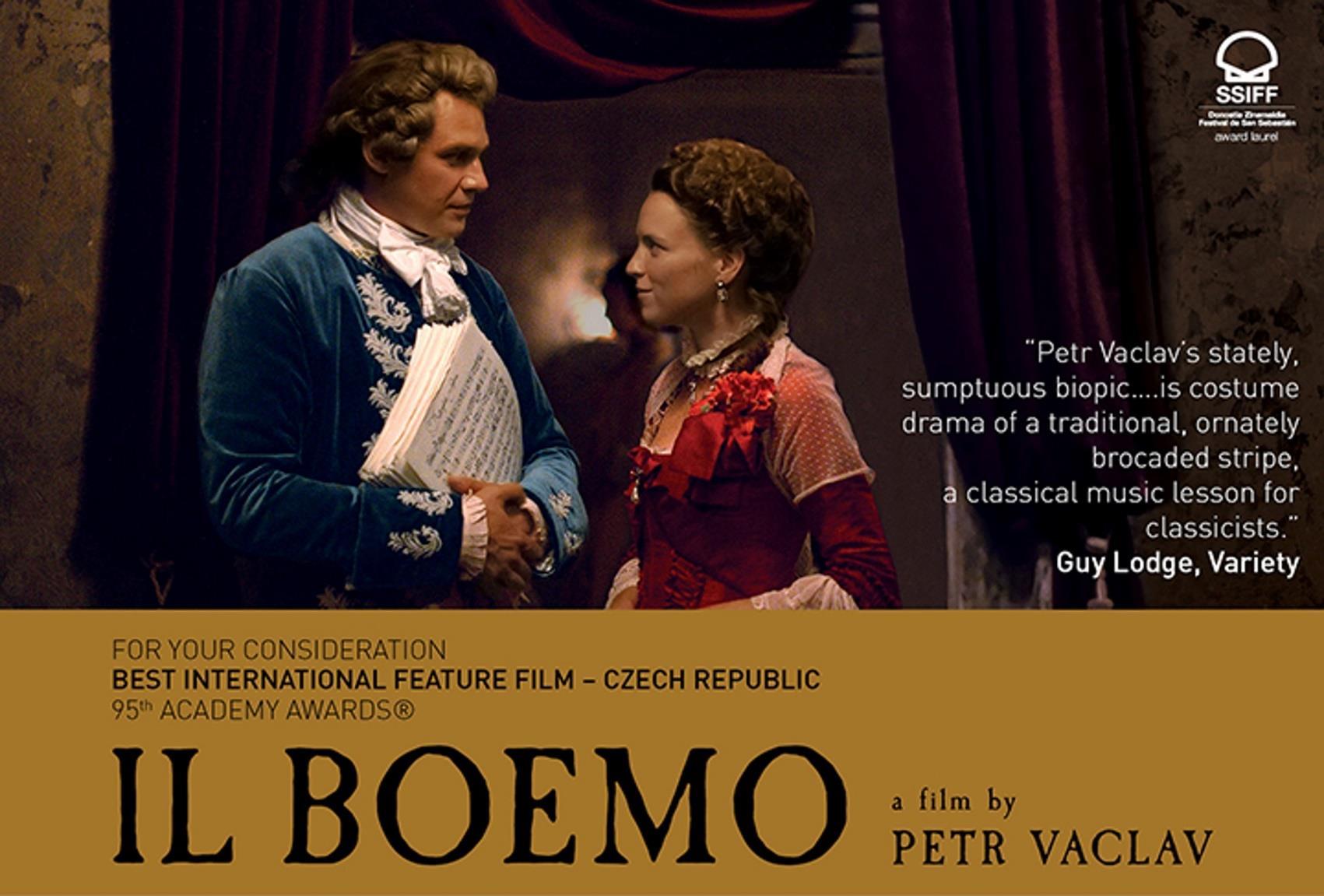
OM: Honestly, I have no idea. Obviously, I hope they enjoy it, but the truth is, when we started working on the project, we didn’t think about international audiences because it’s such a local story. I don’t know how many people abroad really care about our politics. To this day, when I say I’m from Estonia, there are some who think it’s part of Russia.
Full Interview
– Interview conducted by Max Borg
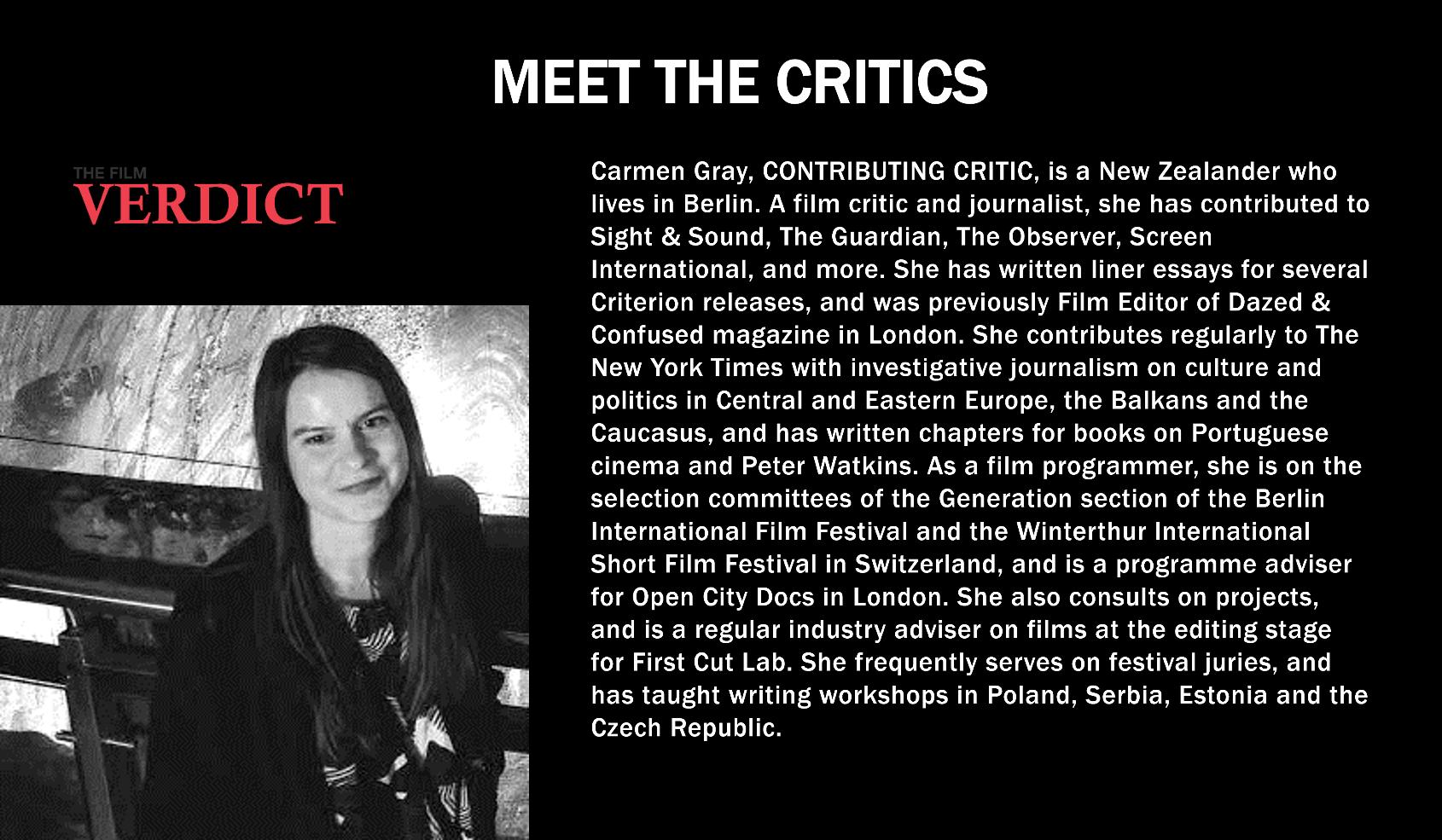

Con lentos movimientos de cámara y narraciones monotonales, Paz Encina dirige una oda desgarradora a una cultura en vías de desaparición, la de los Ayoreo-Totobiegosode. Esta tribu paraguaya sigue luchando por salvar sus tierras de los despiadados promotores que arrasan la selva para hacer sitio a explotaciones ganaderas. Ahora, veinte coproductores de seis países se han unido a la causa y han prestado su apoyo a Eami: Alemania, Argentina, Estados Unidos, Francia, Países Bajos y Paraguay. A medida que la película se proyecte en festivales de todo el mundo, ojalá ponga a los indígenas paraguayos en primera línea y dé visibilidad a su apremiante situación.
El anterior drama de Encina Hamaca paraguaya (2006), que ganó un premio FIPRESCI en Cannes, también abordaba la pérdida y el duelo en su historia de una pareja de ancianos paraguayos que esperan noticias de su hijo, que abandonó su hogar para luchar en la sangrienta Guerra del Chaco en la década de 1930 (80,000 soldados muertos entre las tropas bolivianas y paraguayas).
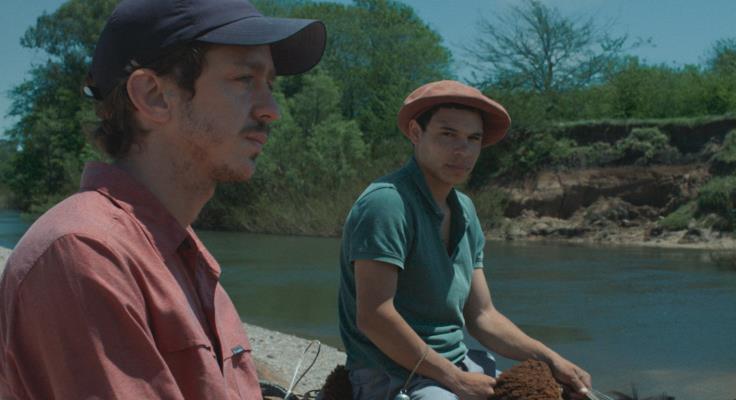

En Eami, la directora lleva la historia del despojo un paso más allá. Revision Completa
: Un sutil estudio de personajes que explora con éxito el sentimiento de culpa, el deber filial, y las relaciones laborales entre un joven peón y su patrón, ambientado en las vastas plantaciones de soja a lo largo de la frontera entre Uruguay y Brasil.
La agroindustria es un tema árido, pero es sólo un telón de fondo en la trama en que la fragilidad humana juega su trágico destino en El empleado y el patrón. La realización misma de la película es un ejemplo de las dificultades a las que se enfrentan los cineastas latinoamericanos a la hora de buscar financiación. Sin embargo, la coproducción Uruguay-Argentina-Brasil-Francia, realizada con fondos públicos y privados y actores de cada país, funciona bien como una obra de conjunto firmemente arraigada en la cultura gaucha y en la tierra uruguaya.


Este es el tercer largometraje escrito y dirigido por el cineasta uruguayo Manolo Nieto Zas, y se estrenó en la Quincena de Realizadores de Cannes en mayo, antes de cerrar la sección Horizontes Latinos en San Sebastián. Nieto (que anteriormente dirigió La perrera
y El militante) sigue explorando aquí las relaciones entre padre e hijo en un entorno hostil que, sin embargo, Simón, Verano 1993, donde encuentra un agradable deslumbra por su belleza, captada en las largas tomas panorámicas del director de fotografía Arauco Hernández Holz, y contrastada con locaciones íntimas en interiores. Ese vasto paisaje hace pequeños a los peones que montan gigantescas cosechadoras mecánicas, reducidos a meros engranajes, como insectos que luchan por sobrevivir en la sombría economía de escala. El guion trabaja en dos líneas que a veces son paralelas y otras se entrecruzan, y la cámara sigue esa dicotomía maravillosamente, como en el plano de un caballo que cabalga por la orilla del río, cuyo reflejo en el agua sigue al jinete como un fantasma.
Revision Completa
VERDICT: A subtle character study that successfully explores guilt and filial duty as well as labor relations between a young farmhand and his boss, set among the vast soybean plantations along the Uruguay-Brazil border.

Patricia Boero, September 24, 2021 Agrobusiness is a dry and forbidding subject, but it is only a backdrop against which human frailty plays out its tragic destiny in The Employer and the Employee
(El empleado y el patrón). The making of the film itself is a textbook example of the difficulties facing Latin American filmmakers searching for funds. Yet the Uruguay-Argentina-Brazil-France coproduction, produced with public and private funds and actors from each country, works well as an ensemble piece firmly rooted in Gaucho culture and Uruguayan soil. The third feature written and directed by Uruguayan filmmaker Manolo Nieto Zas, it premiered in Cannes Directors Fortnight in July before closing the Latin Horizons section in San Sebastian. Nieto (who previously directed The Dog Pound and The Militant) here continues to explore father-son relationships in a hostile environment that nevertheless dazzles in its beauty, captured in the long-held panoramic shots of cinematographer Arauco Hernandez Holz, and contrasted with intimate indoor locations. That vast landscape dwarfs the work of the farmhands riding gigantic mechanical harvesters that reduce them to mere cogs, like insects toiling to survive in the grim economies of scale. Full Review
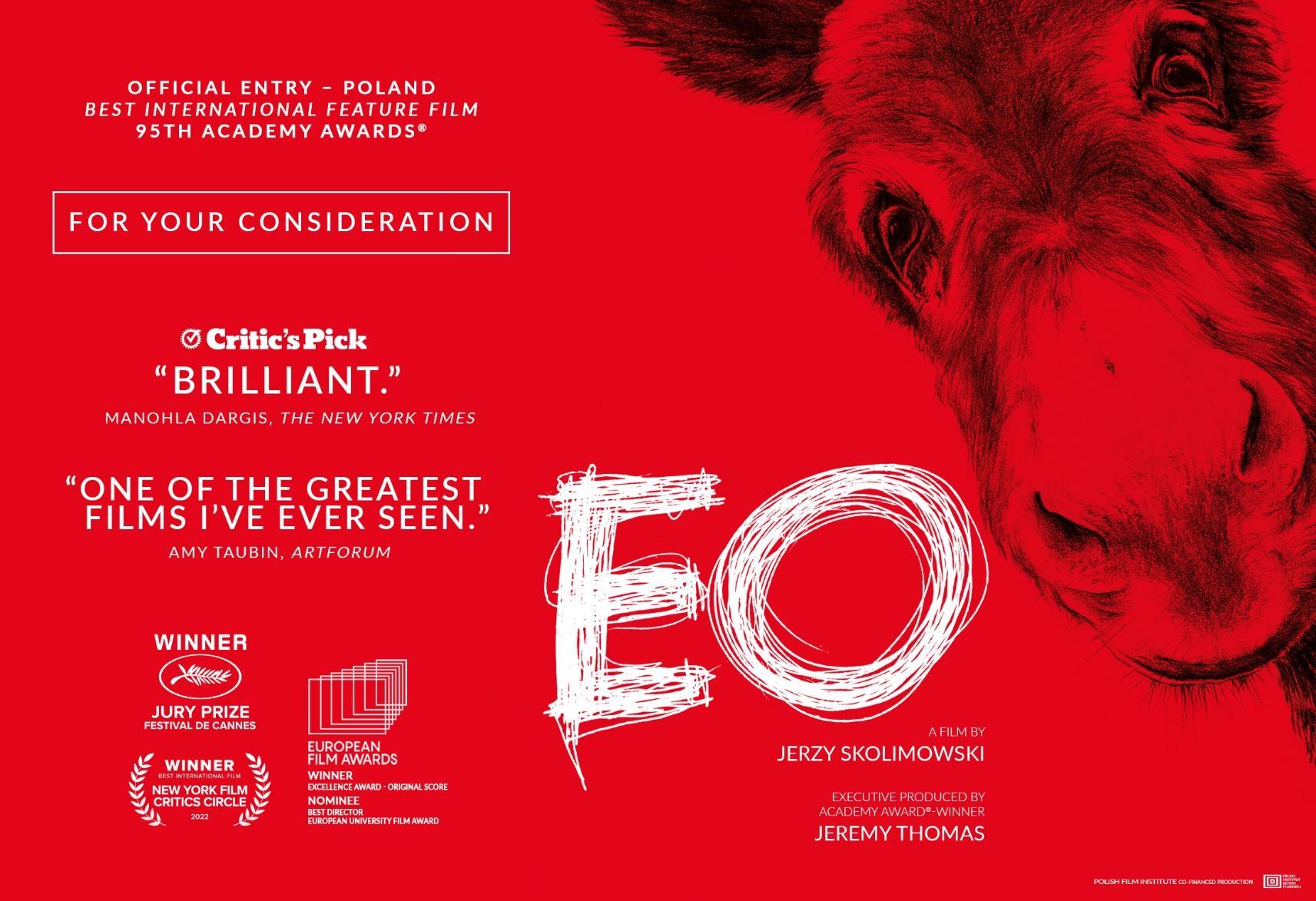

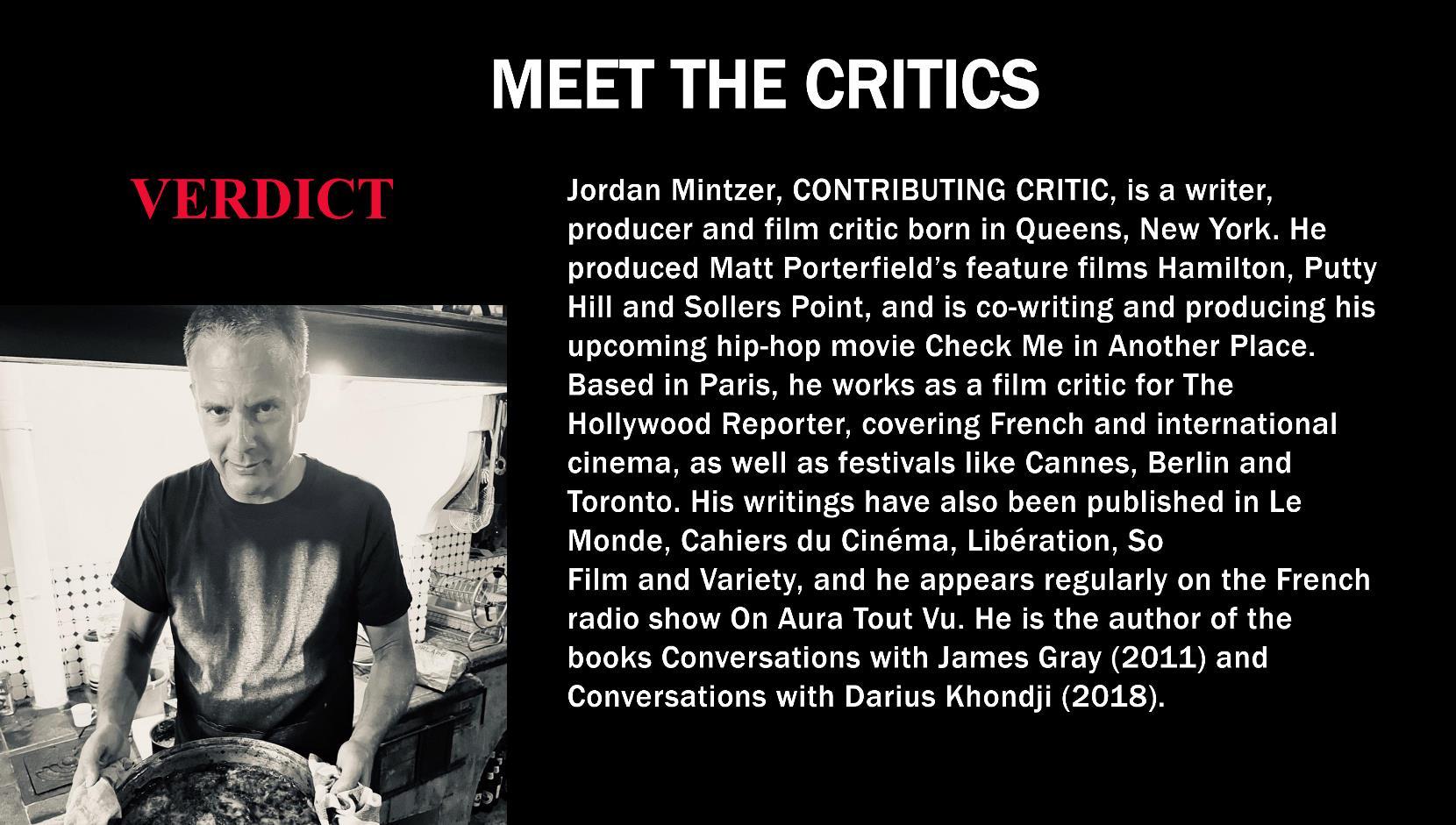

VERDICT: The celebrated Belgian director is once again representing his country in the Oscar race.


Max Borg, December 9, 2022
The Cannes Film Festival has a long history of fruitful connections with Belgian directors (most notably the Dardenne brothers), to the extent that in 2017, as part of the 70th anniversary of the event, the Cannes Classics sidebar hosted a documentary on that very topic. A year later, a young filmmaker named Lukas Dhont, then in his late 20s, made waves in the Un


Certain Regard section with his feature debut Girl, loosely based on the experiences of transgender dancer Nora Monsecour. Dhont, who had befriended her a decade earlier, aimed to tell her story as truthfully as possible, avoiding the usual trappings of on-screen transgender depictions, and the Cannes juries were convinced by
(Continues page 13)

this approach: in addition to the Un Certain Regard (genderless) acting award for Victor Polster’s performance as Lara, the film also won the Caméra d’Or as the best feature debut, as well as the Queer Palm. And while the movie did attract its fair share of criticism from queer and trans writers for the use, however well-intentioned, of certain tropes (which Monsecour has defended as being true to her specific experience), it went on to be chosen as Belgium’s submission for the Academy Awards. Additionally, Dhont was included in the 2019 edition of Forbes’ 30 Under 30 list for European entertainment.
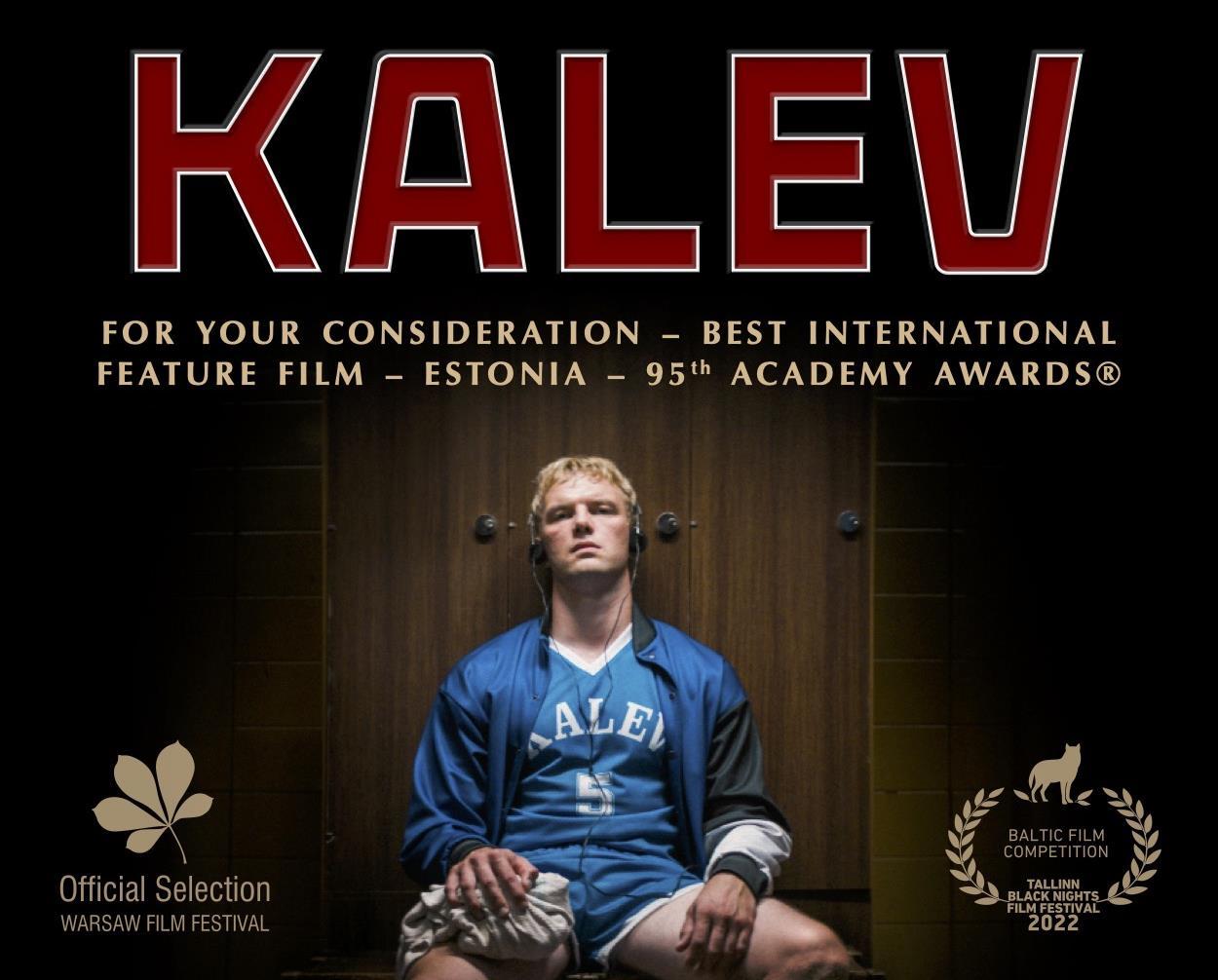
Four years later, history repeats itself with Close, Dhont’s second film, loosely rooted in his own boyhood experiences as well as a psychological study on intimacy between male teenagers. This
time, Cannes accepted it in the main competition, where it ended up sharing the Jury Prize with Claire Denis’ Stars at Noon. Additional prizes followed at festivals like Miskolc, Mill Valley, Chicago and Seville, cementing the Ghent-born filmmaker’s status as one to watch in the realm of Belgian cinema. Full Profile

Kerr is written and directed by Tayfun Pirselimoglu's, adapting his novel of the same name.

The film centers on a man who witnesses a murder and is bizarrely accused of an unknown crime in a surreal small town. The whole town turns into purgatory with no exit. It is an existential allegory reflective of our times.
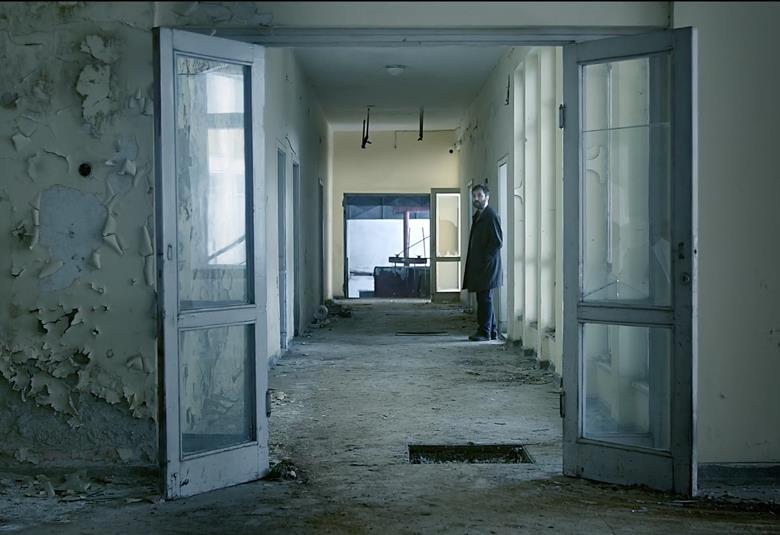
Pirselimoglu, known for his surrealist projects is also an accomplished wrtiter authoring 7 novels and 5 storybooks.
“I wrote a novel with the same title of Kerr. The script is based on that novel but not following the whole story. I made changes” says Pirselimoglu, when asked on adapting his own work.
Additionally, he is an accomplished painter. After graduating from the Middle East Technical University, he studied painting at the University of Applied Arts in Vienna. His work has been exhibited in various major cities.
Kerr has received numerous festival honors including Best Director winner at Antalya Golden Orange Film Festival 2021 and Istanbul International Film Festival 2002, and was nominated as. Best film at multiple festivals including BIFEST, Jakarta & Warsaw Film Festivals to name a few.
Read More
